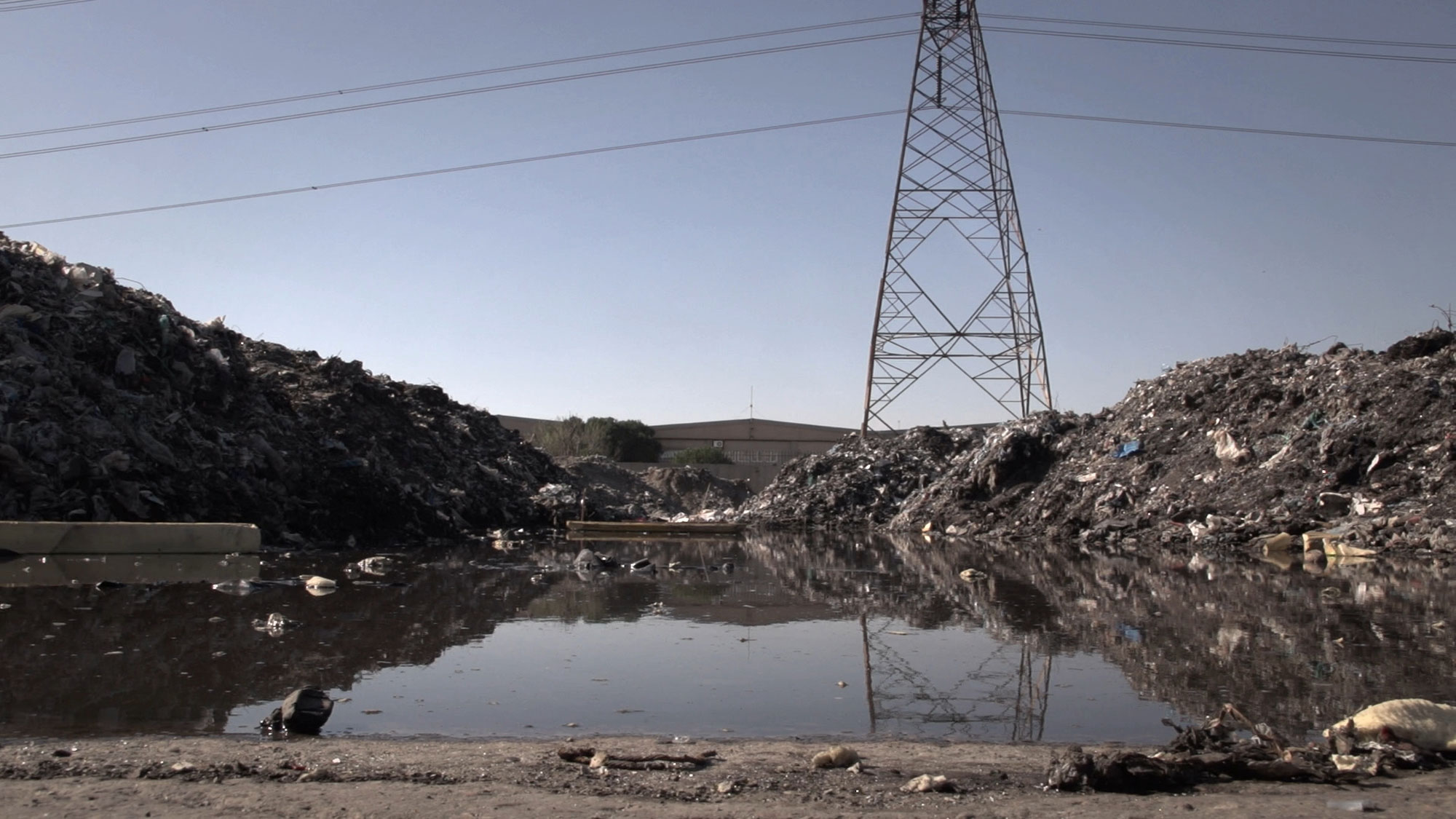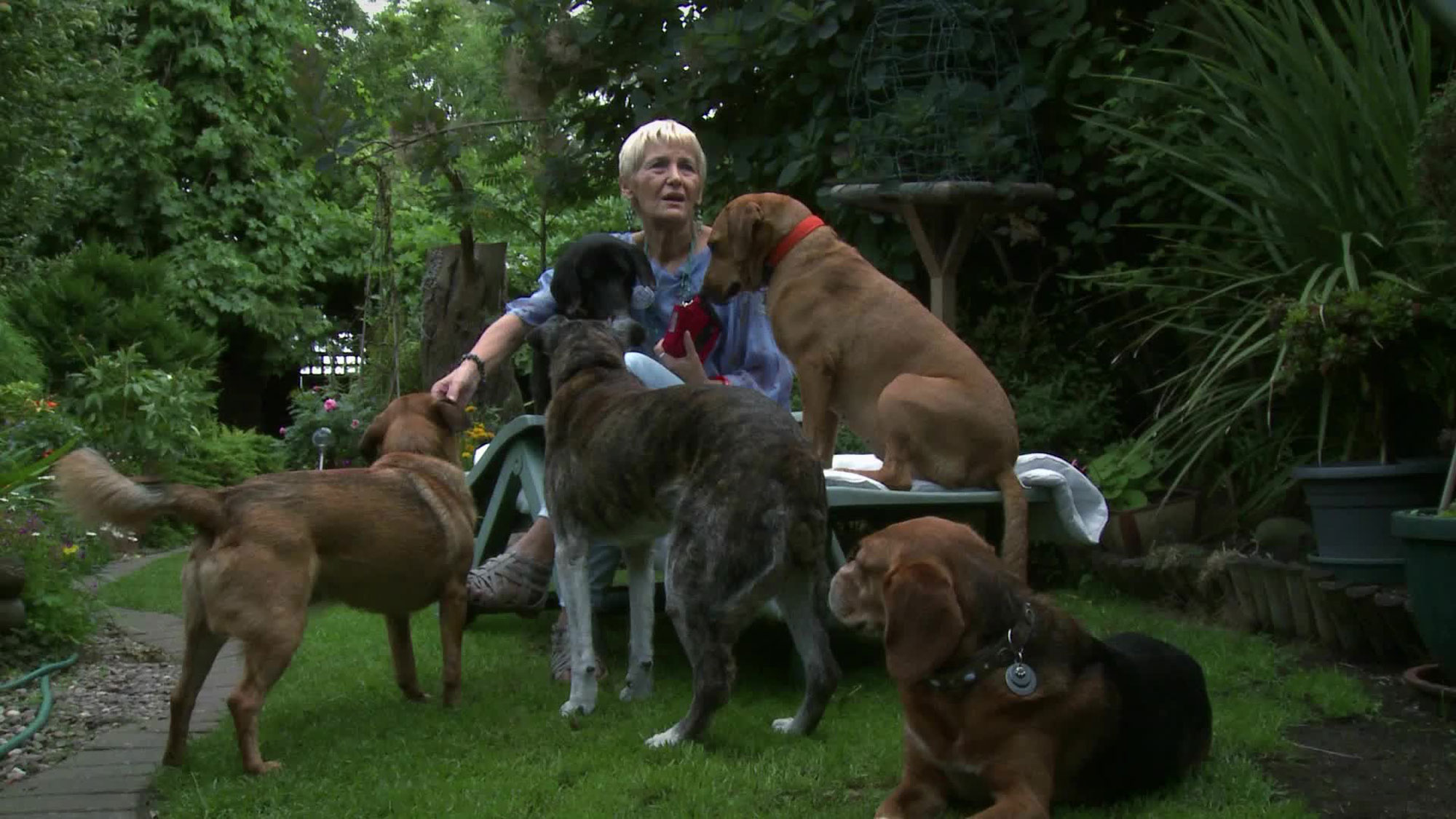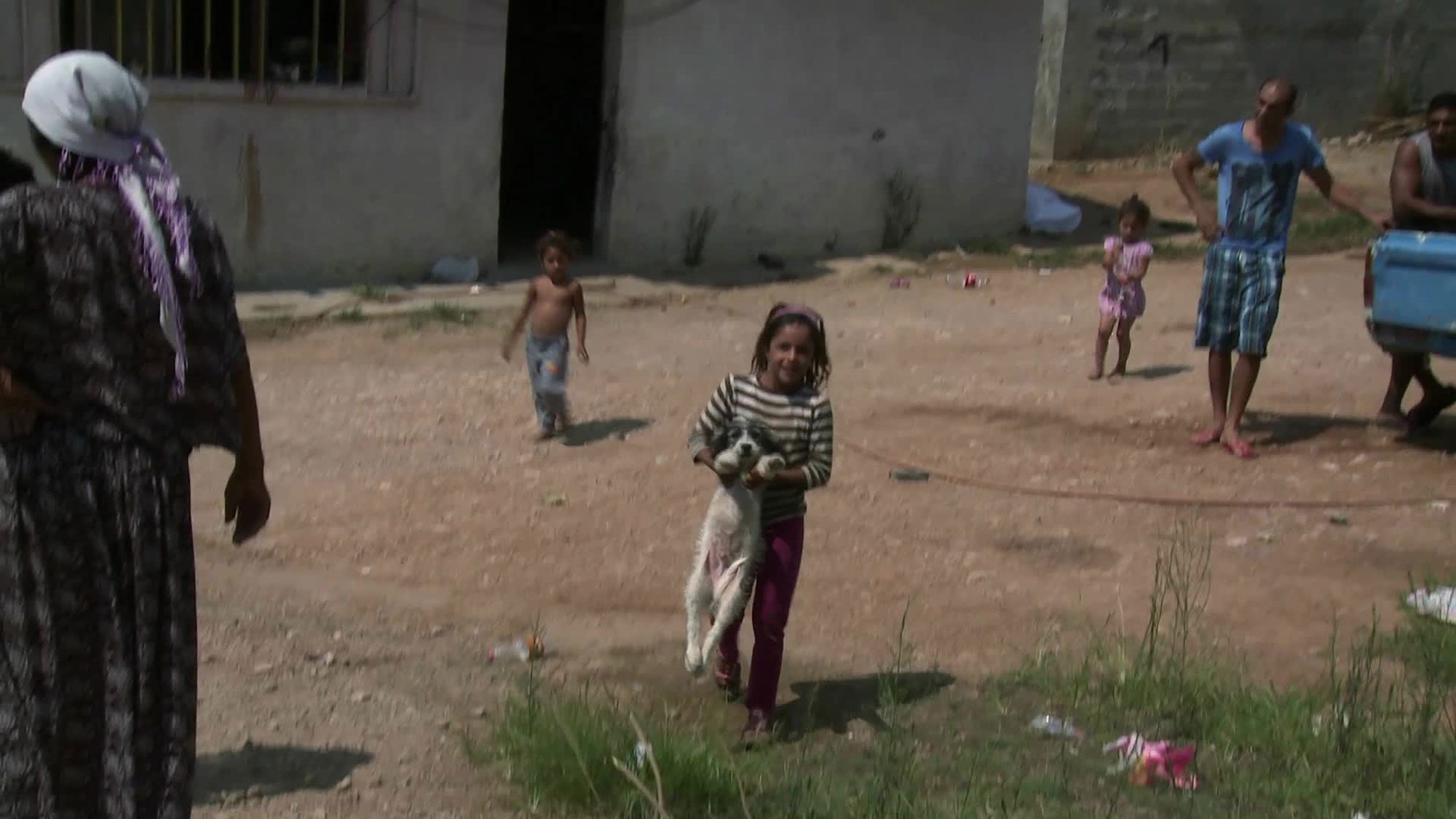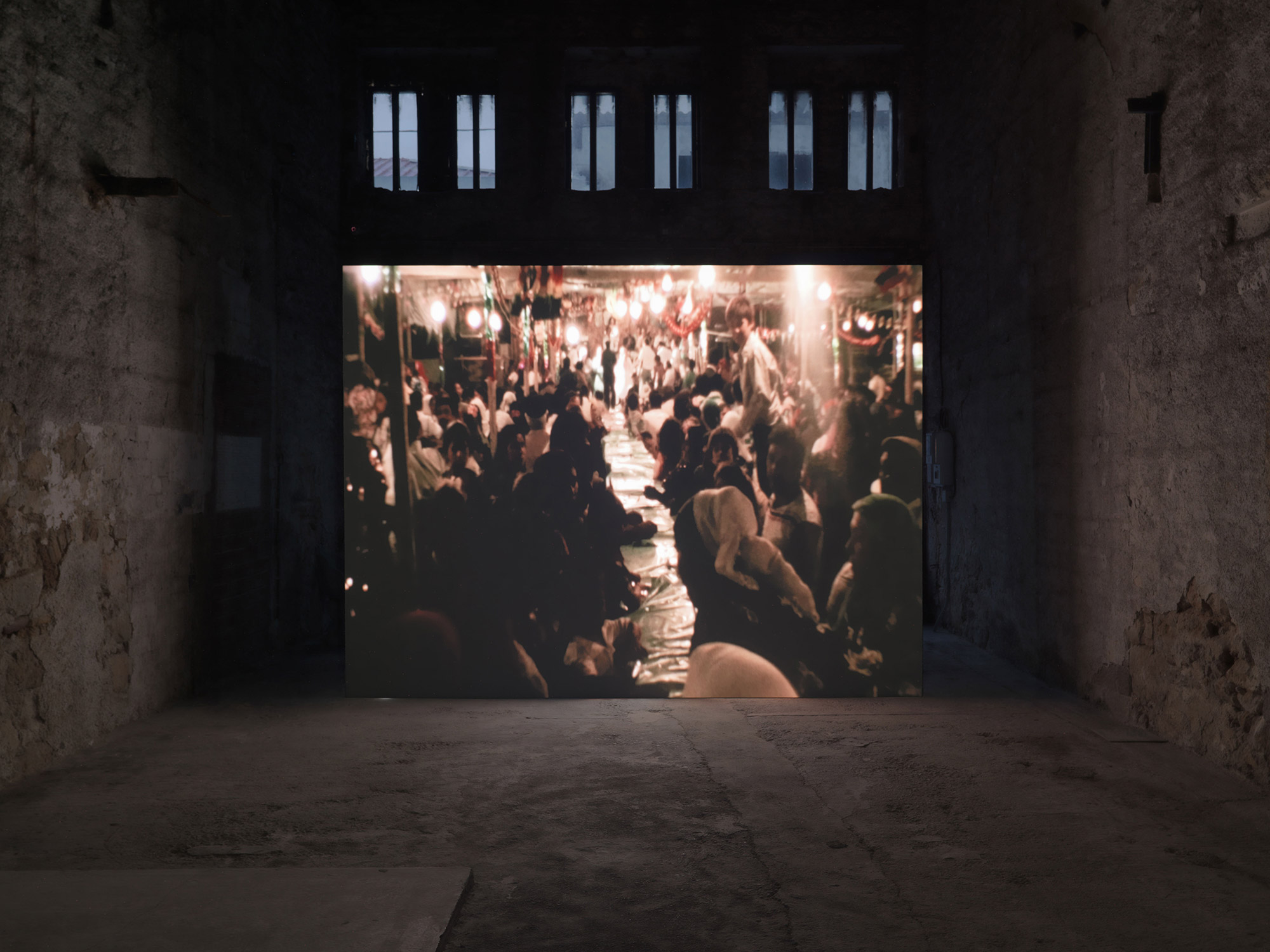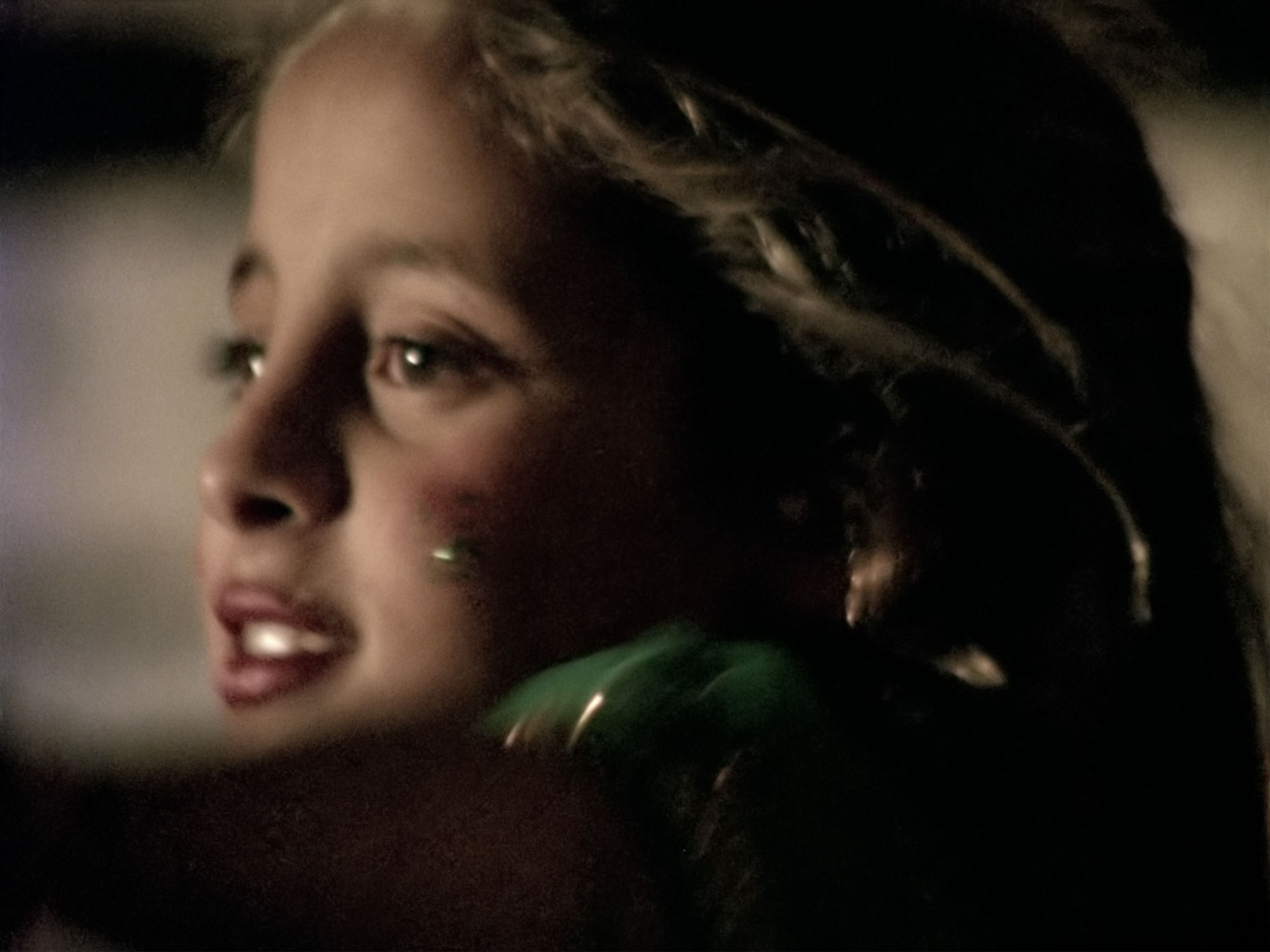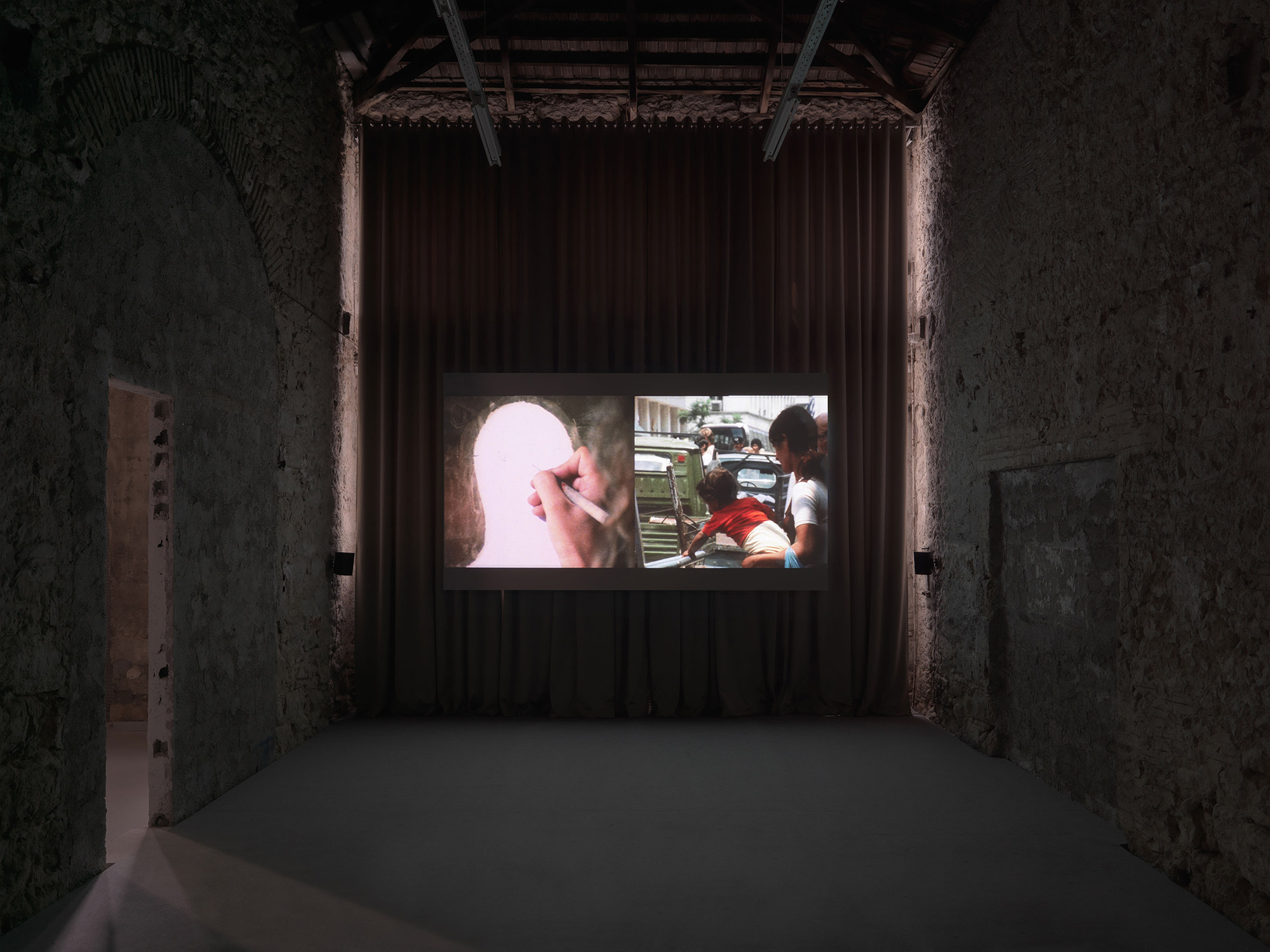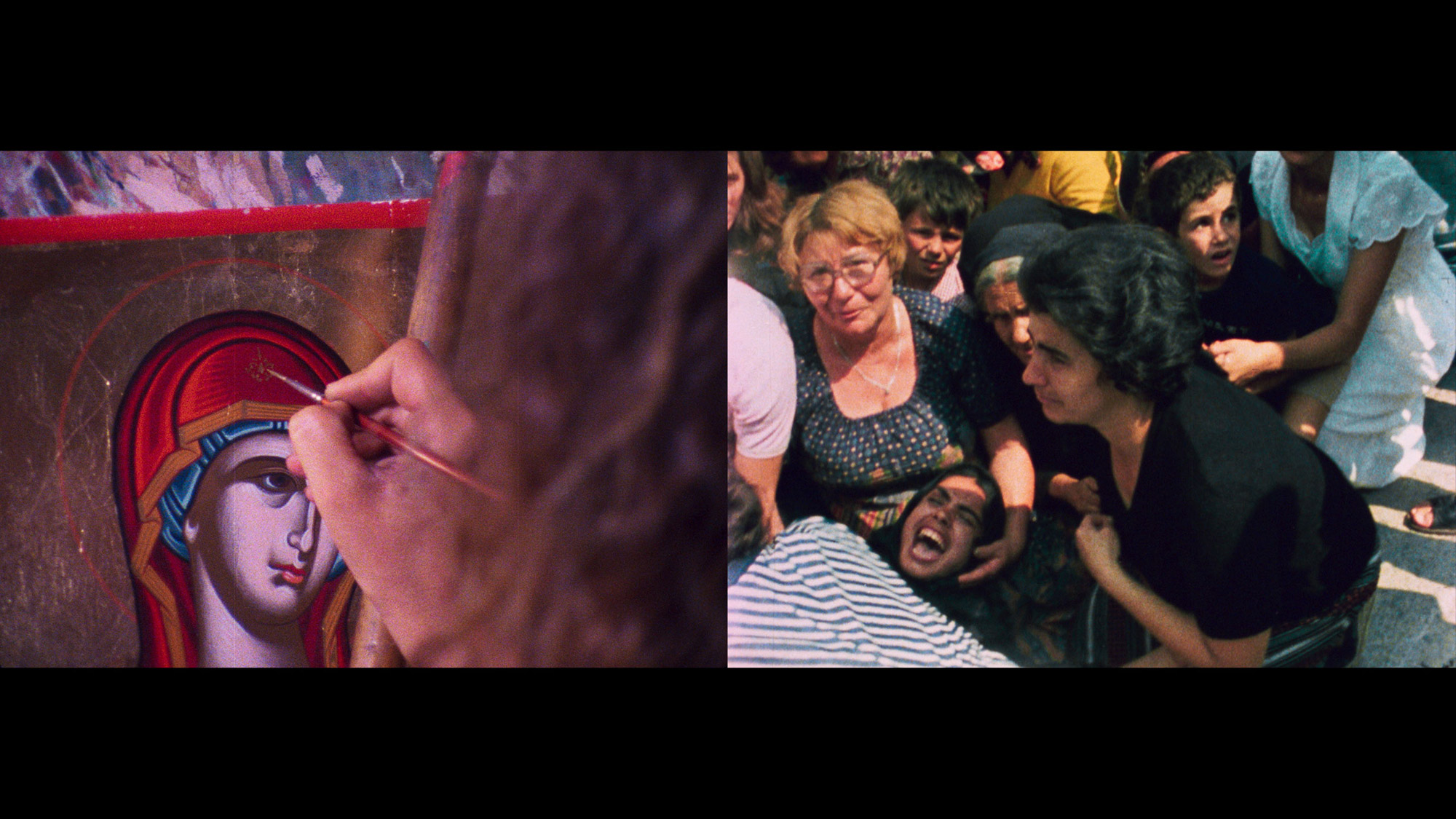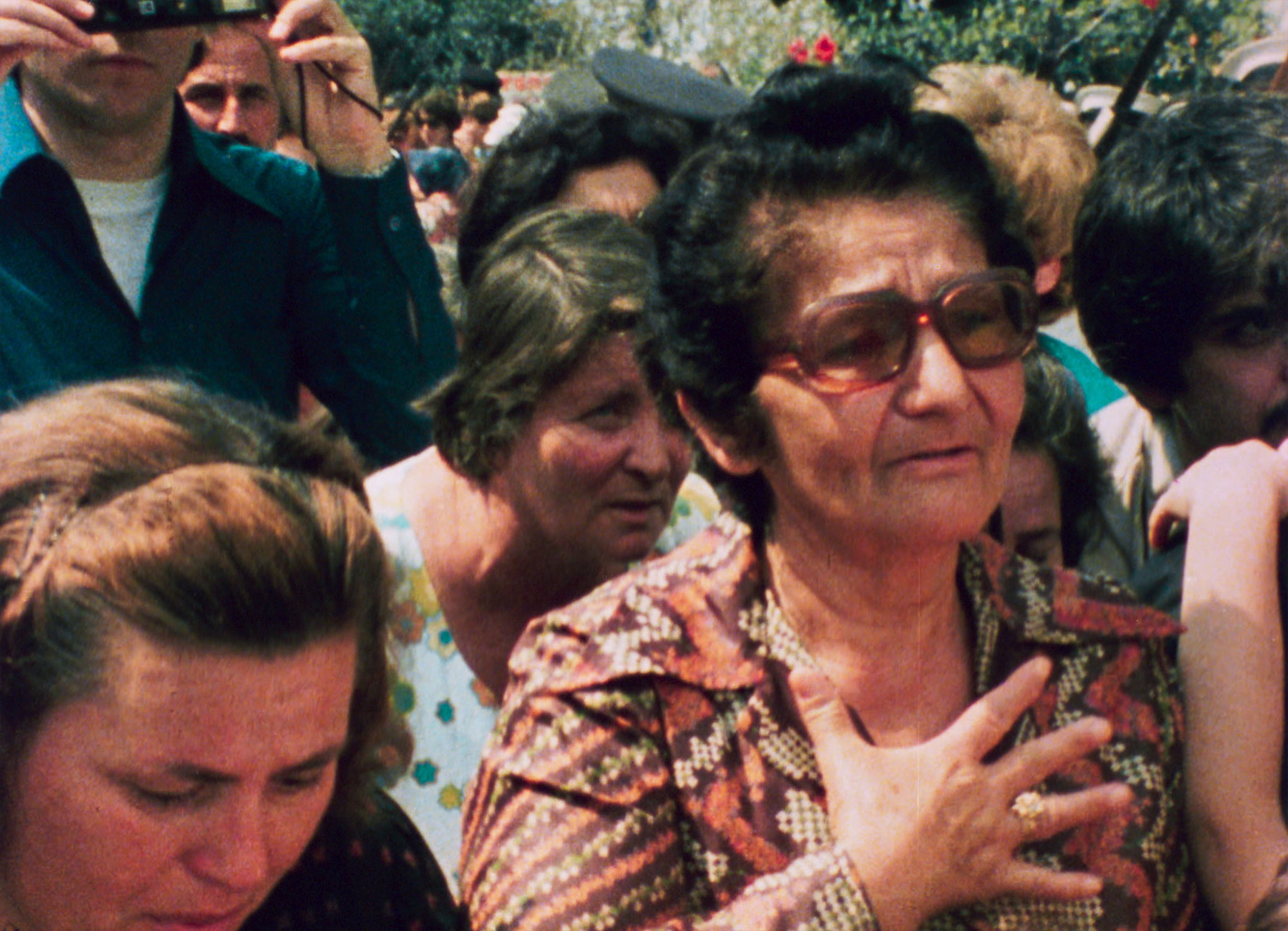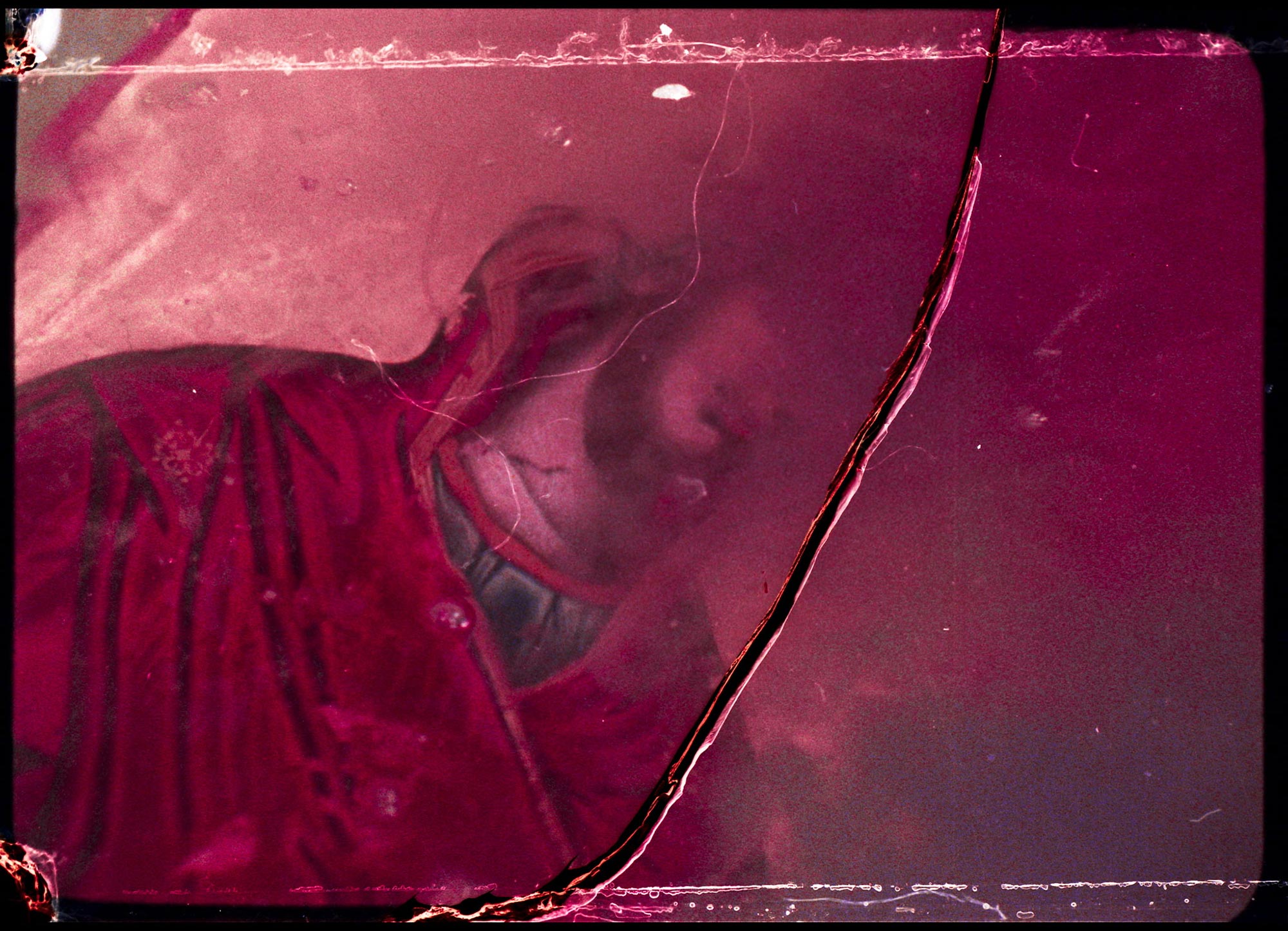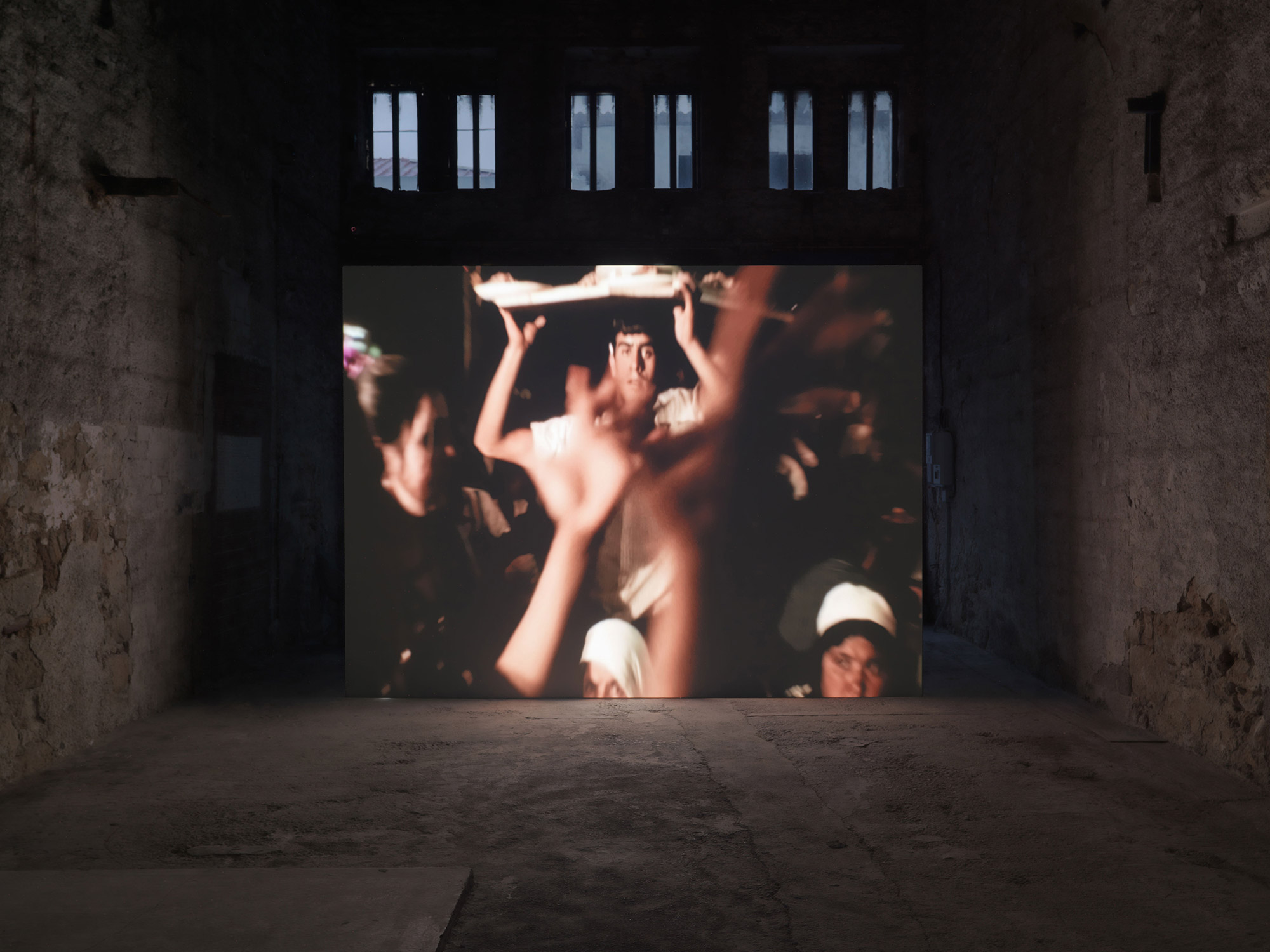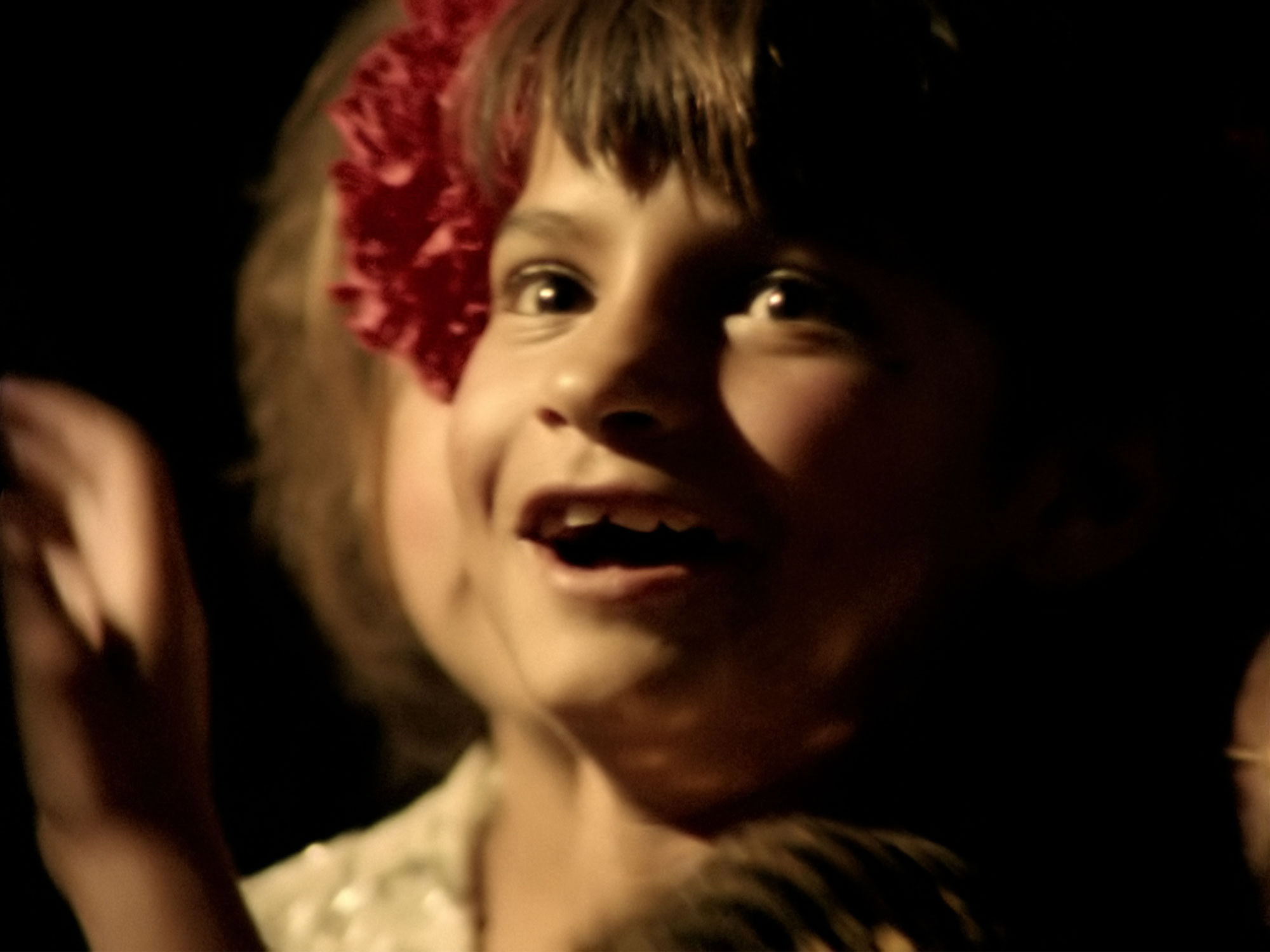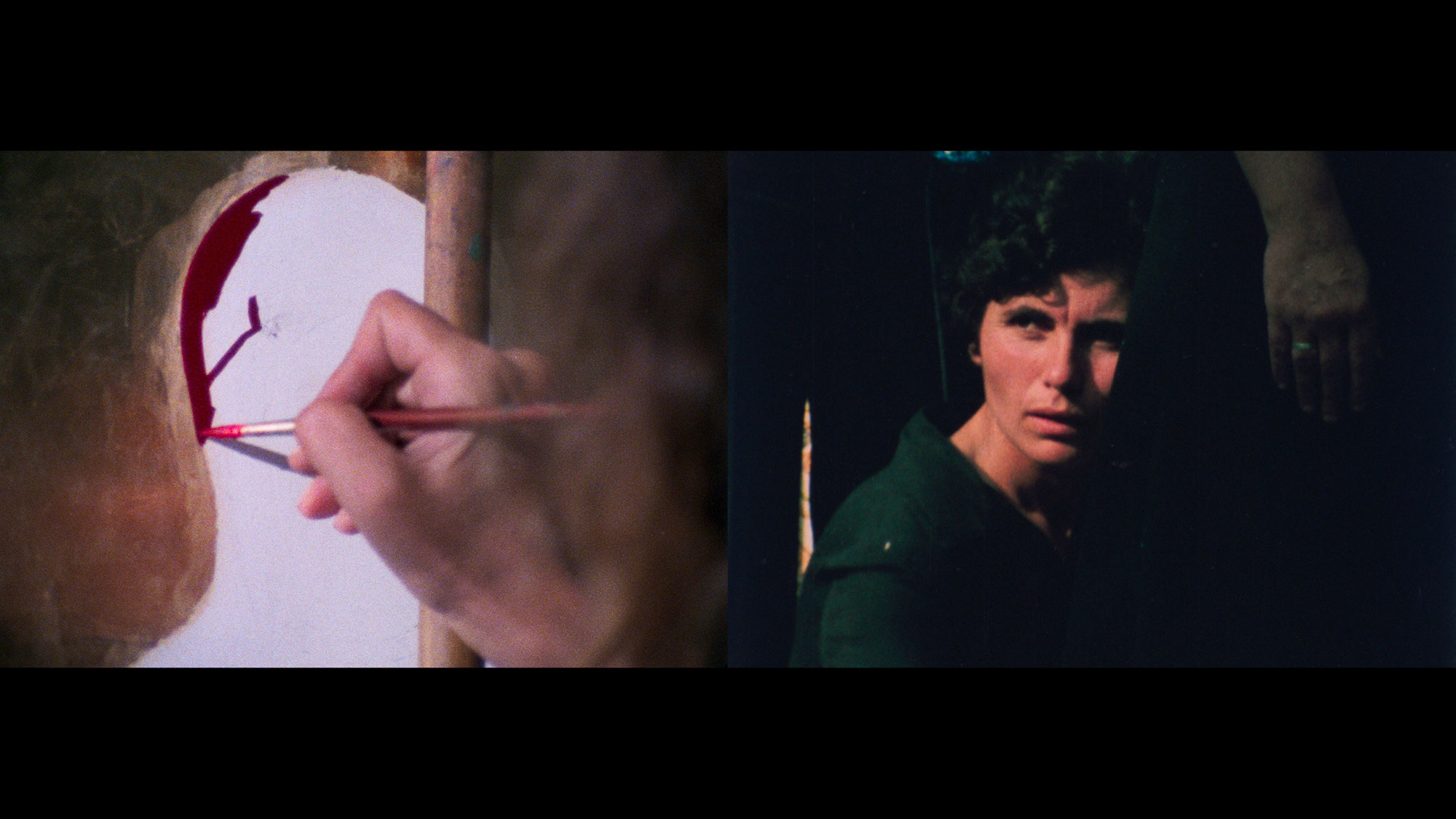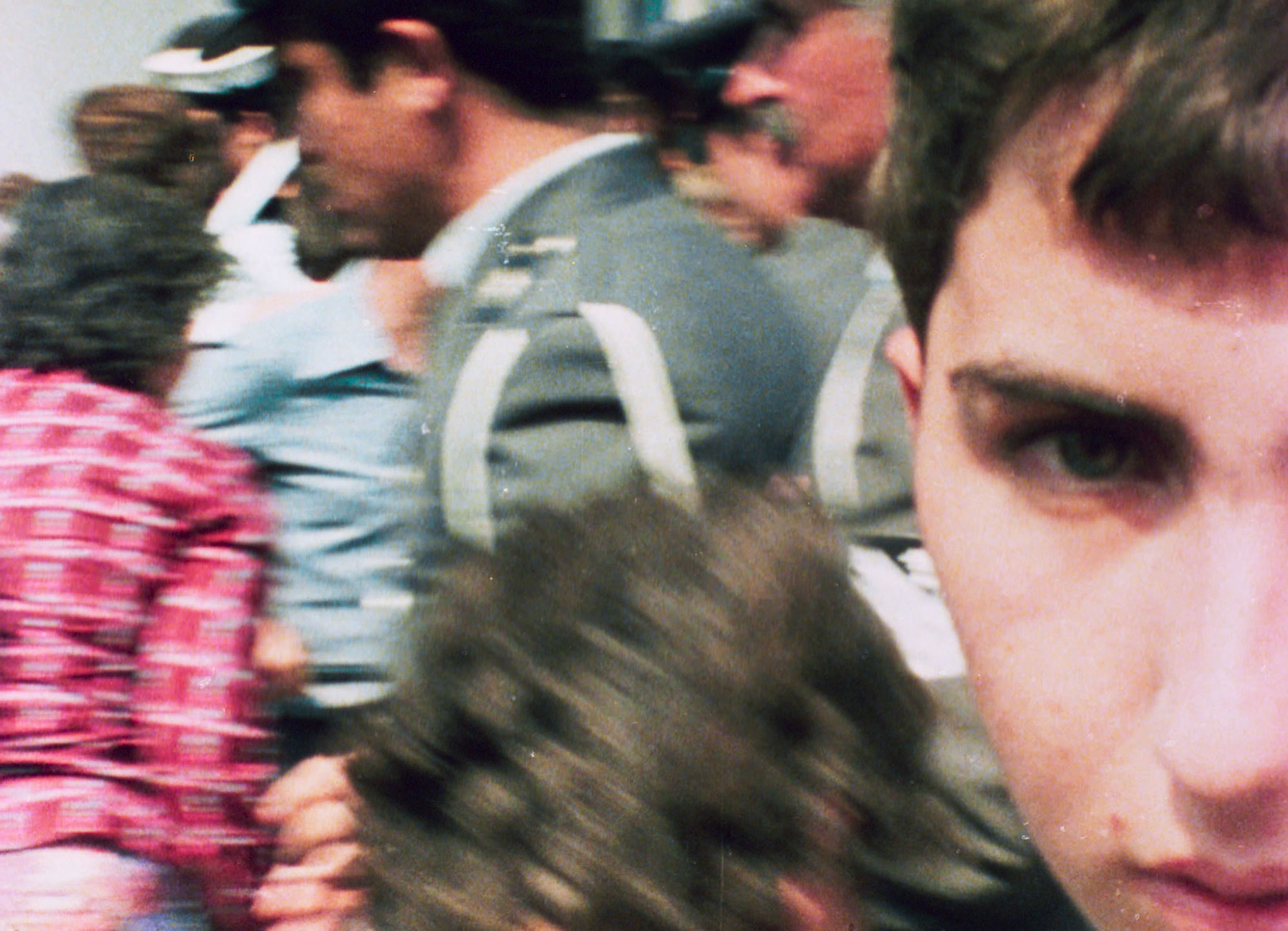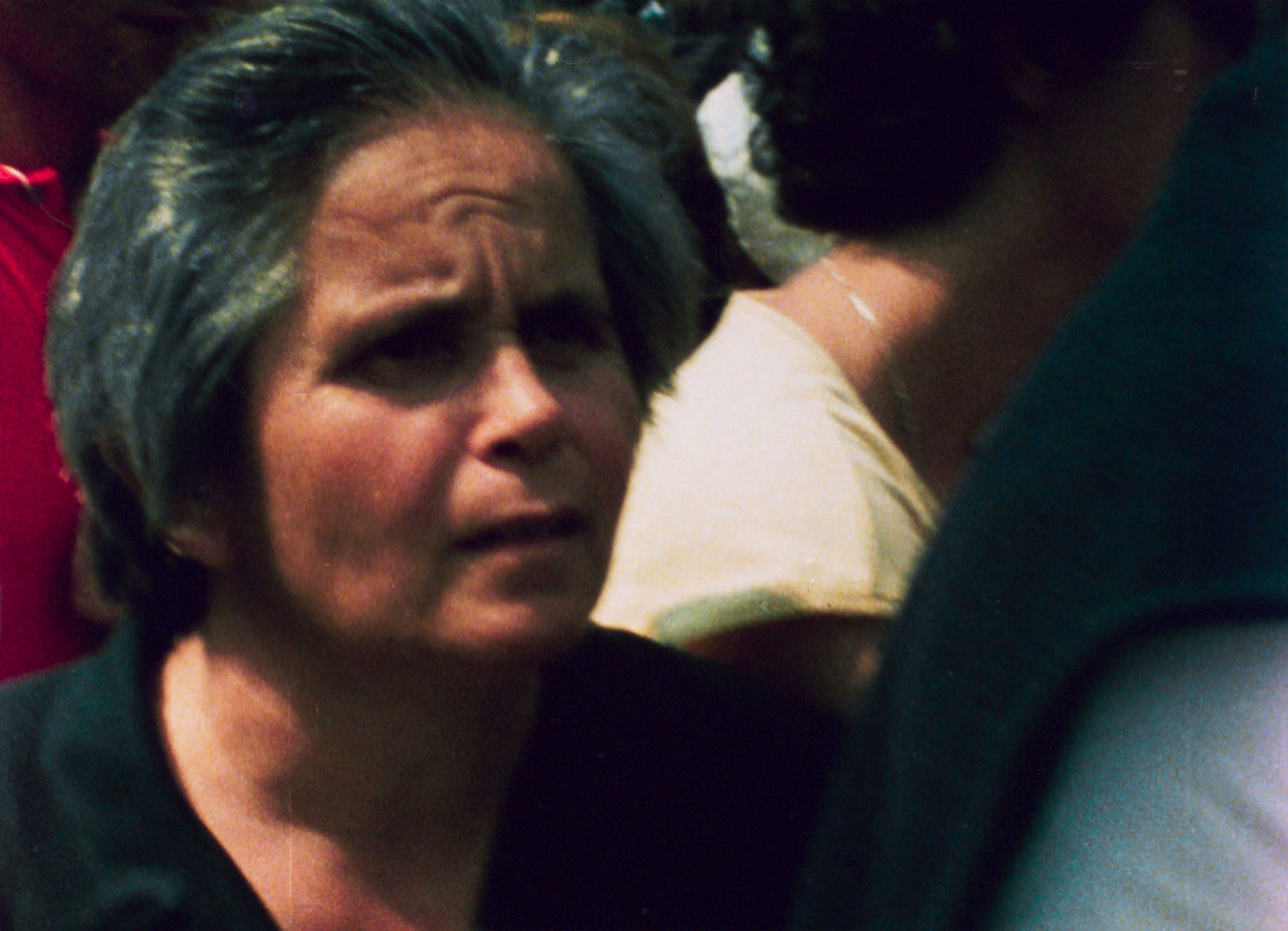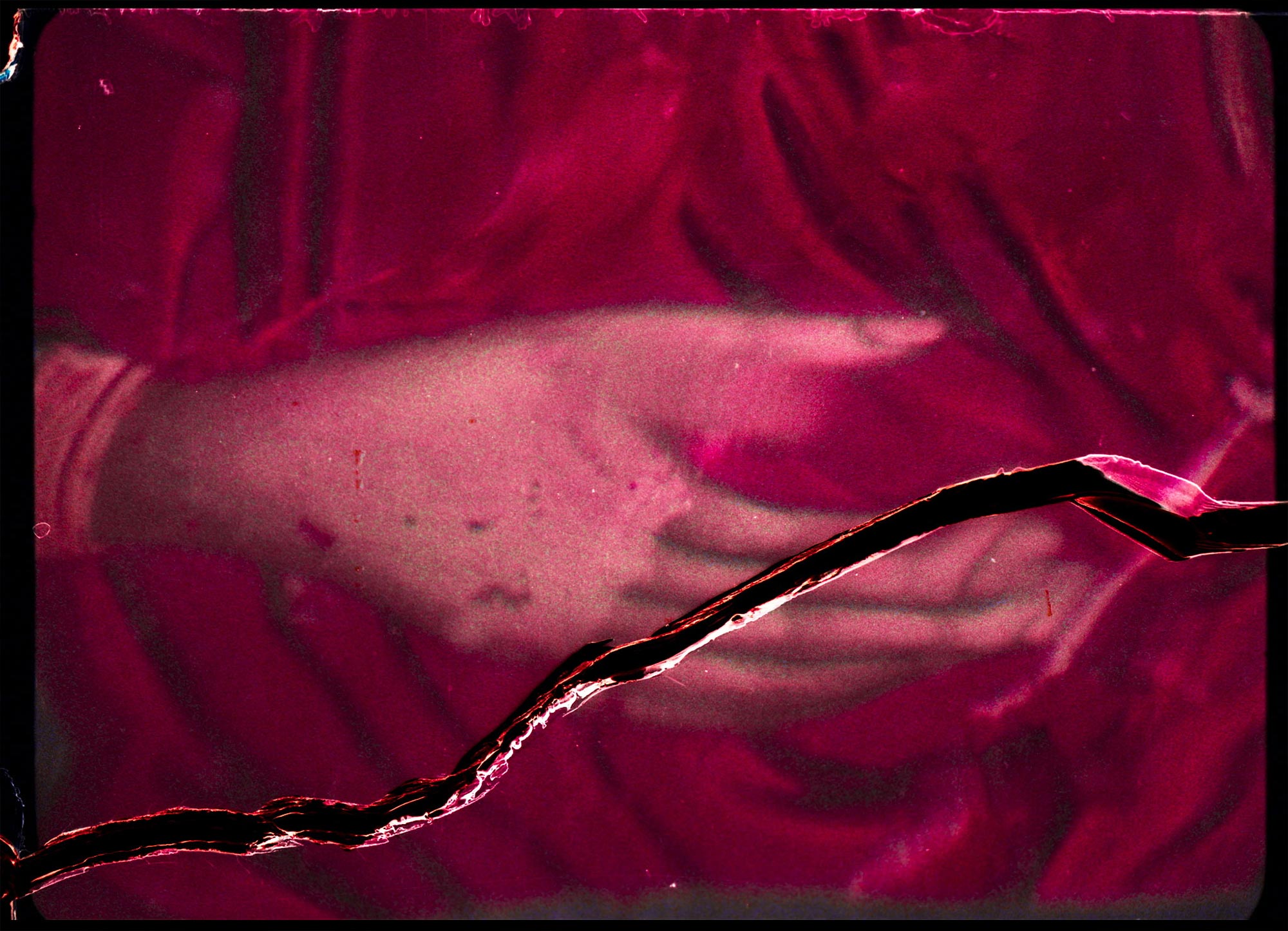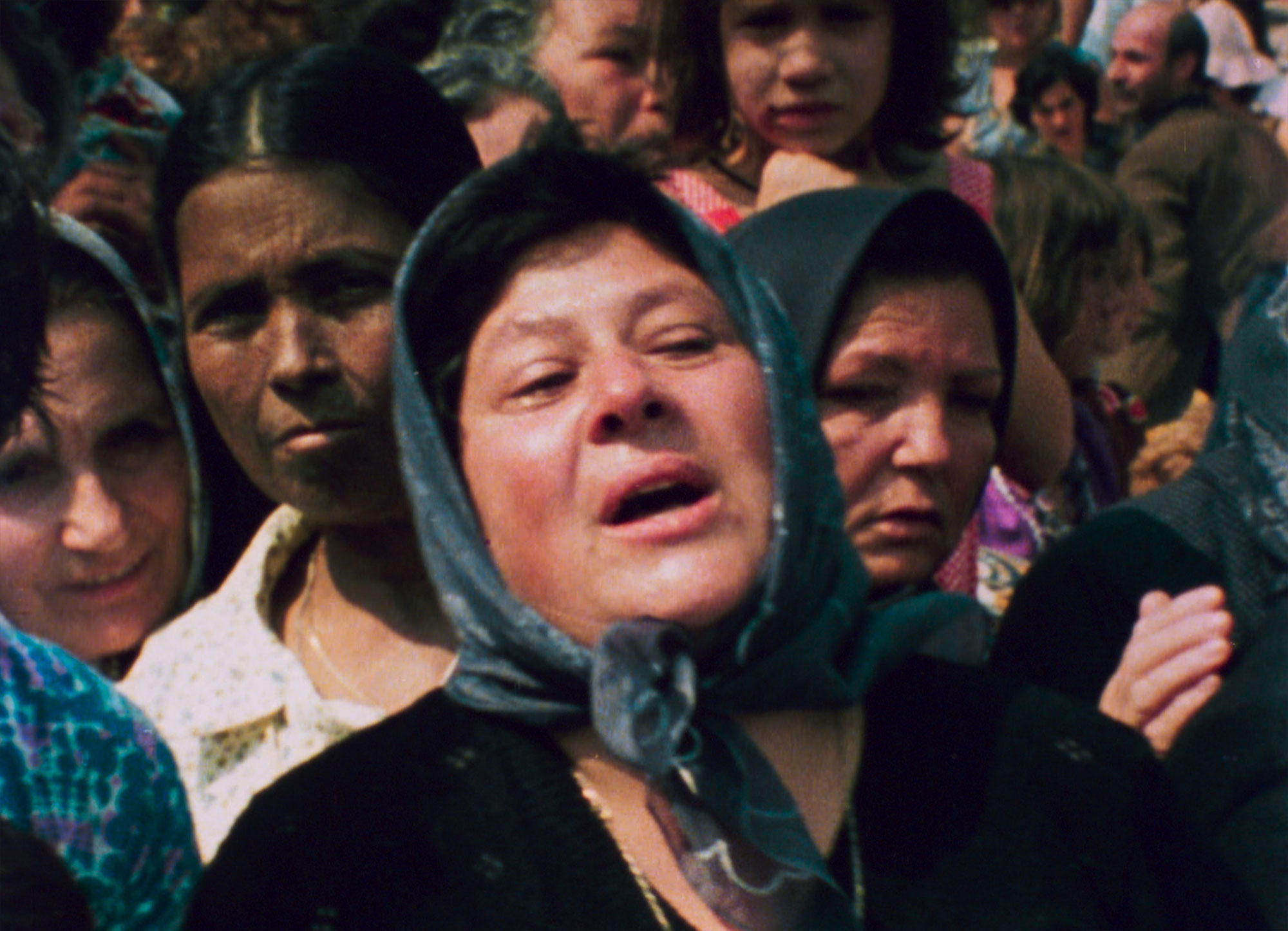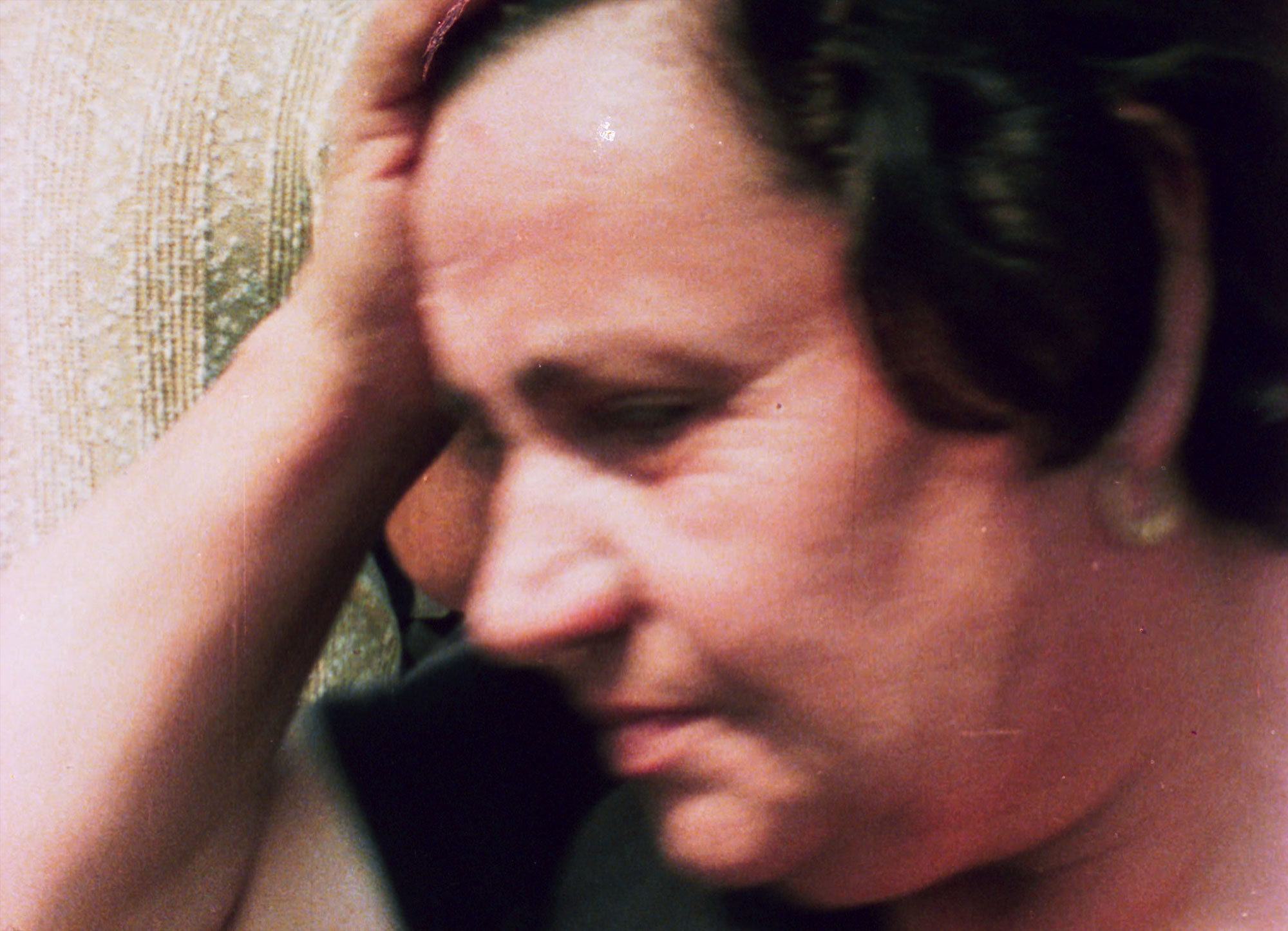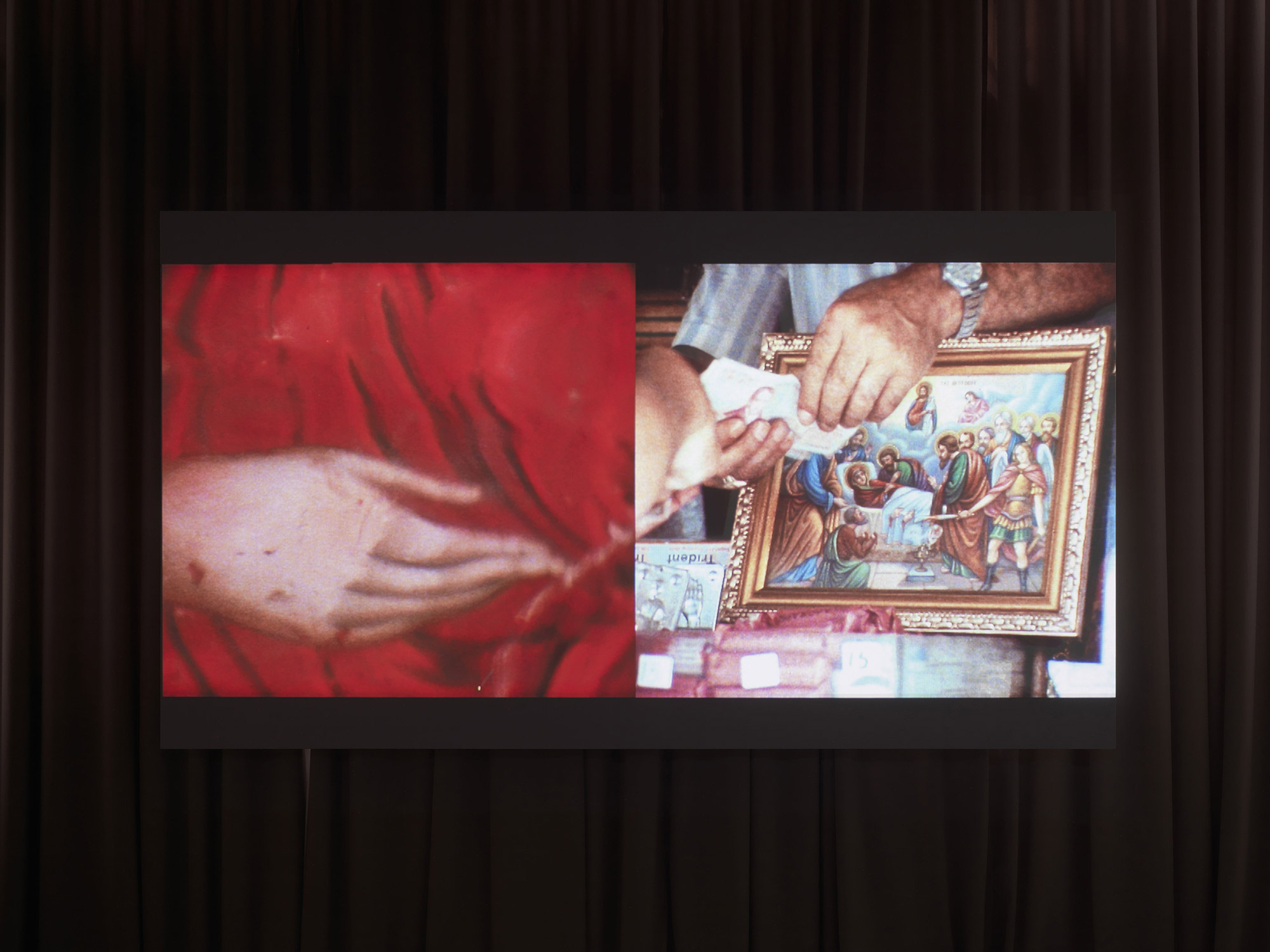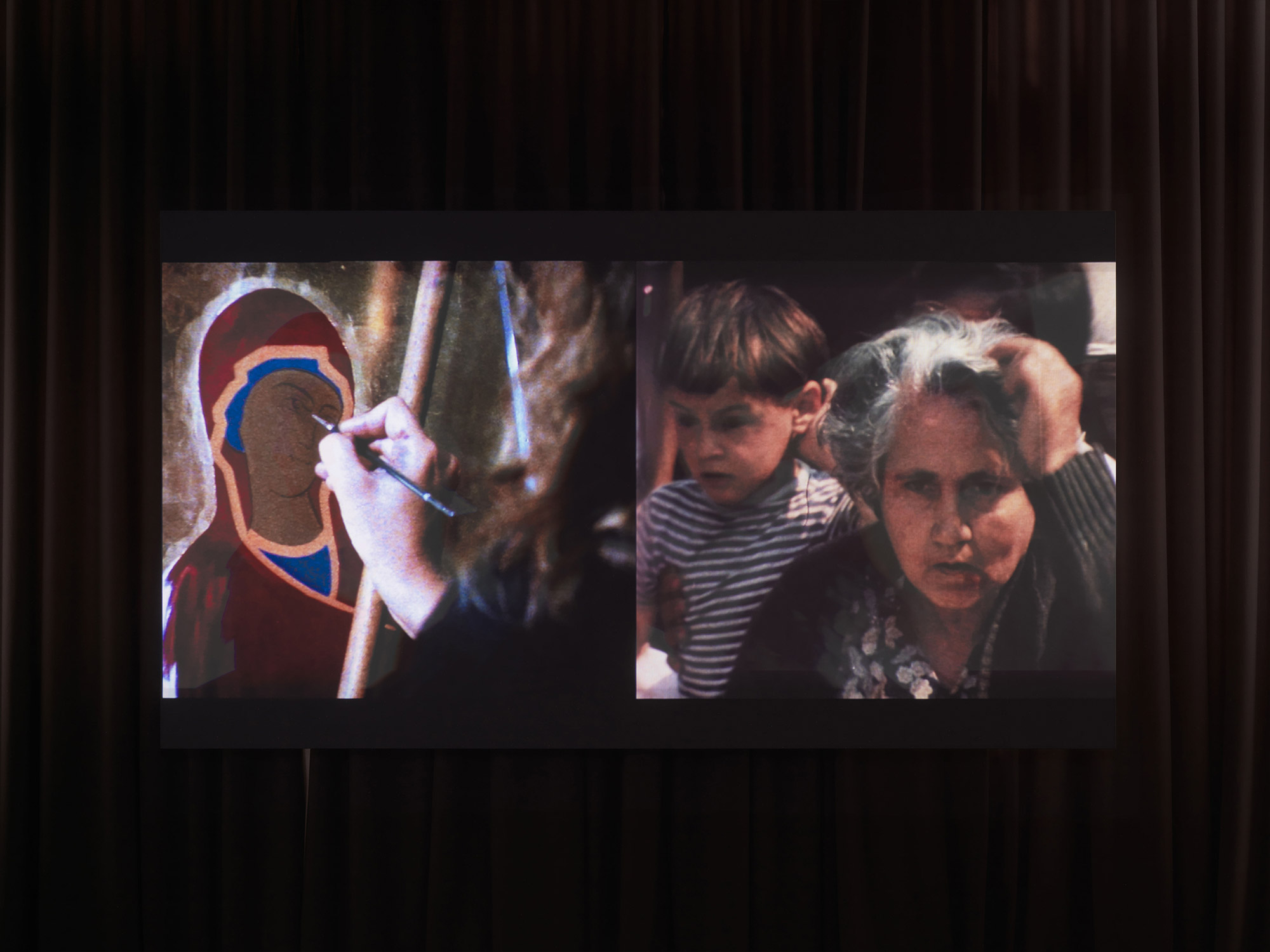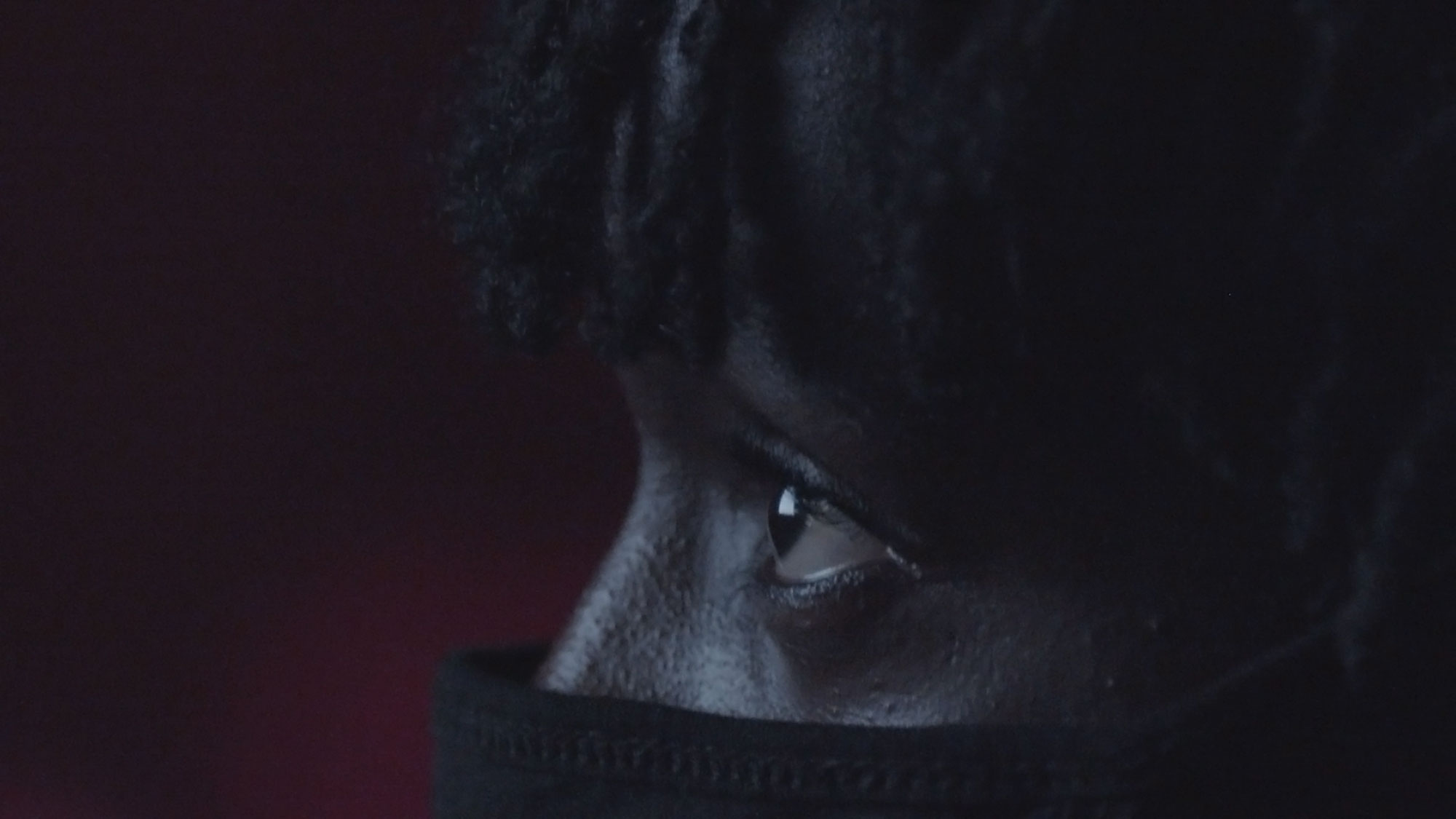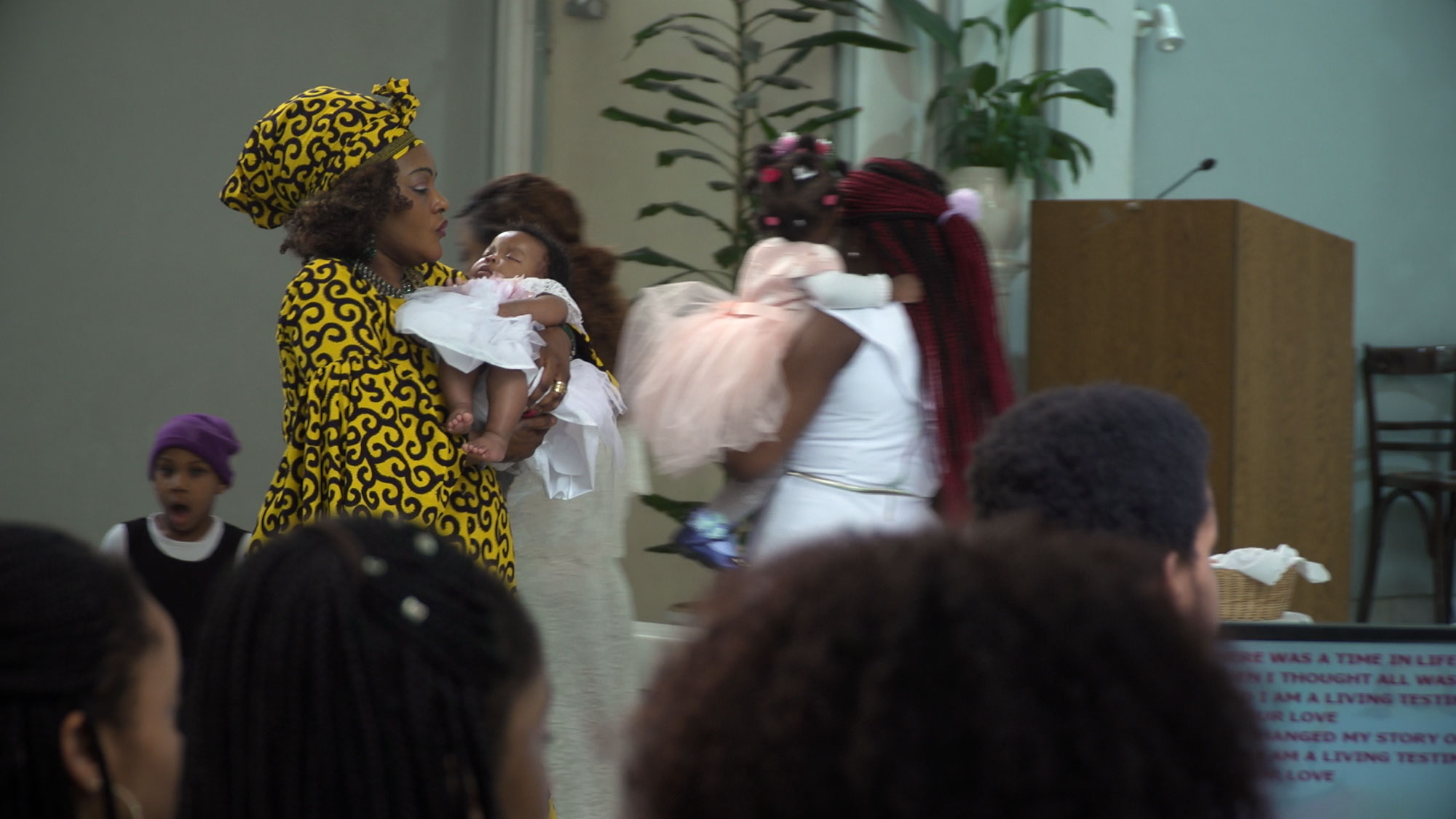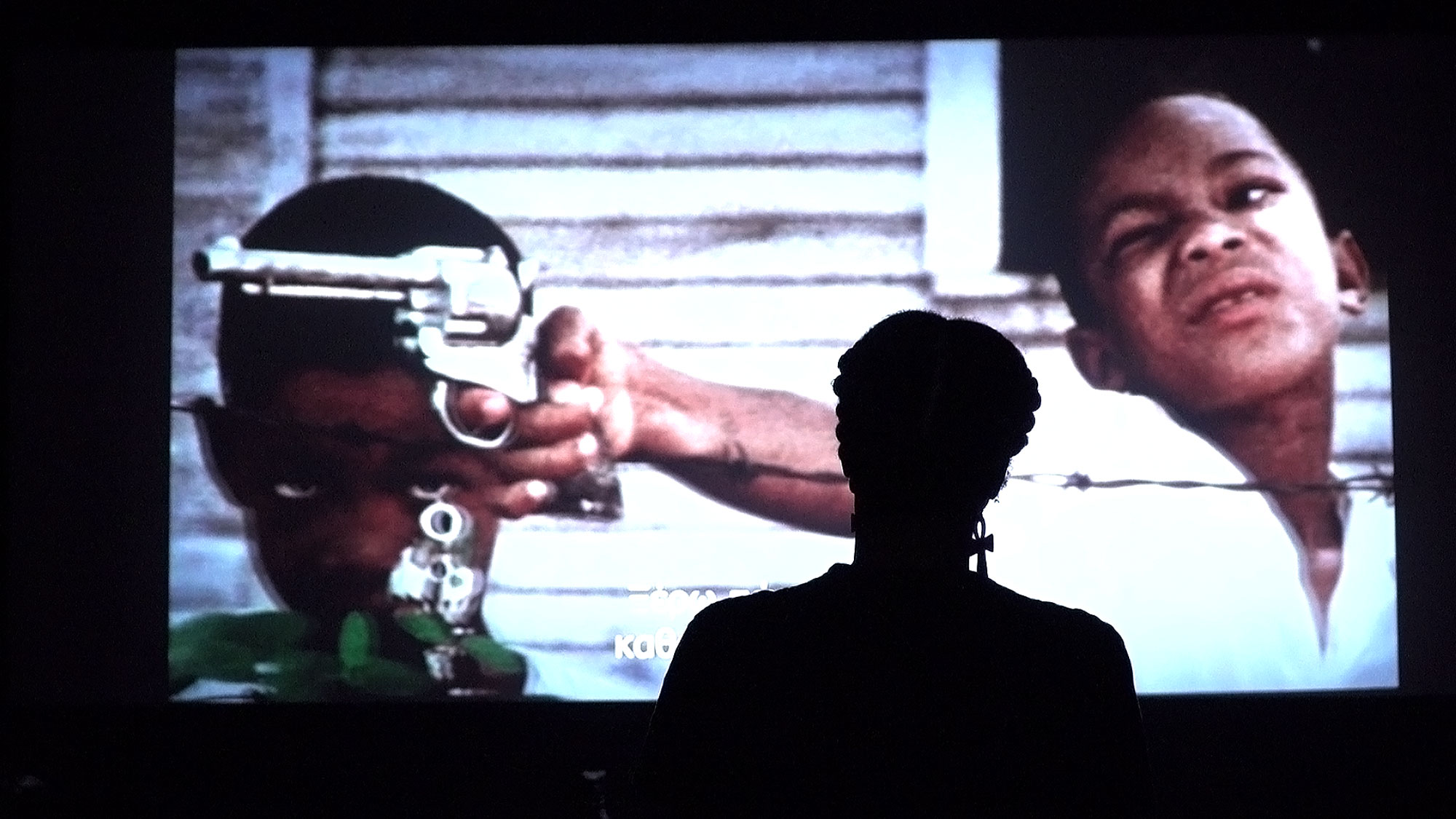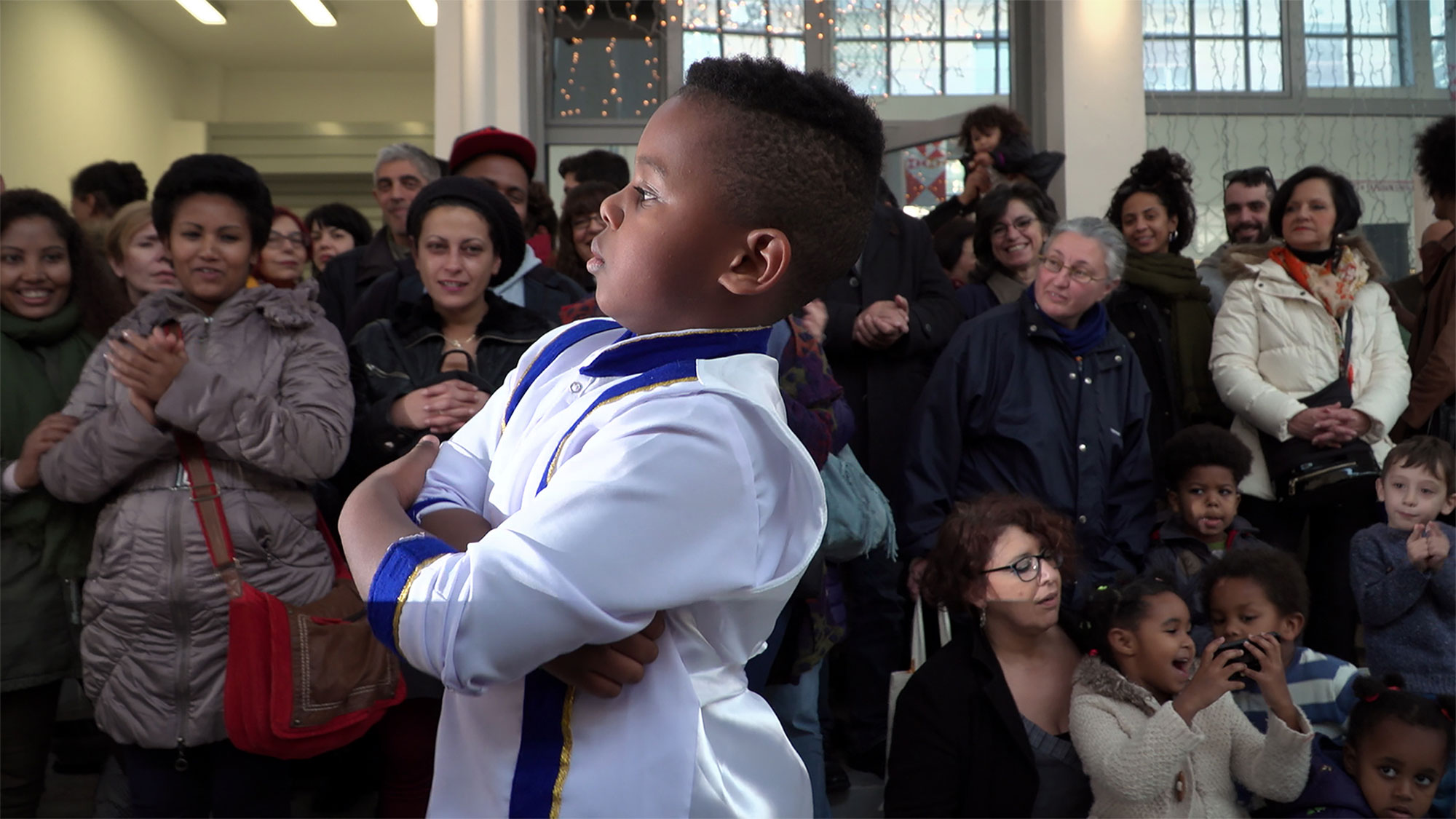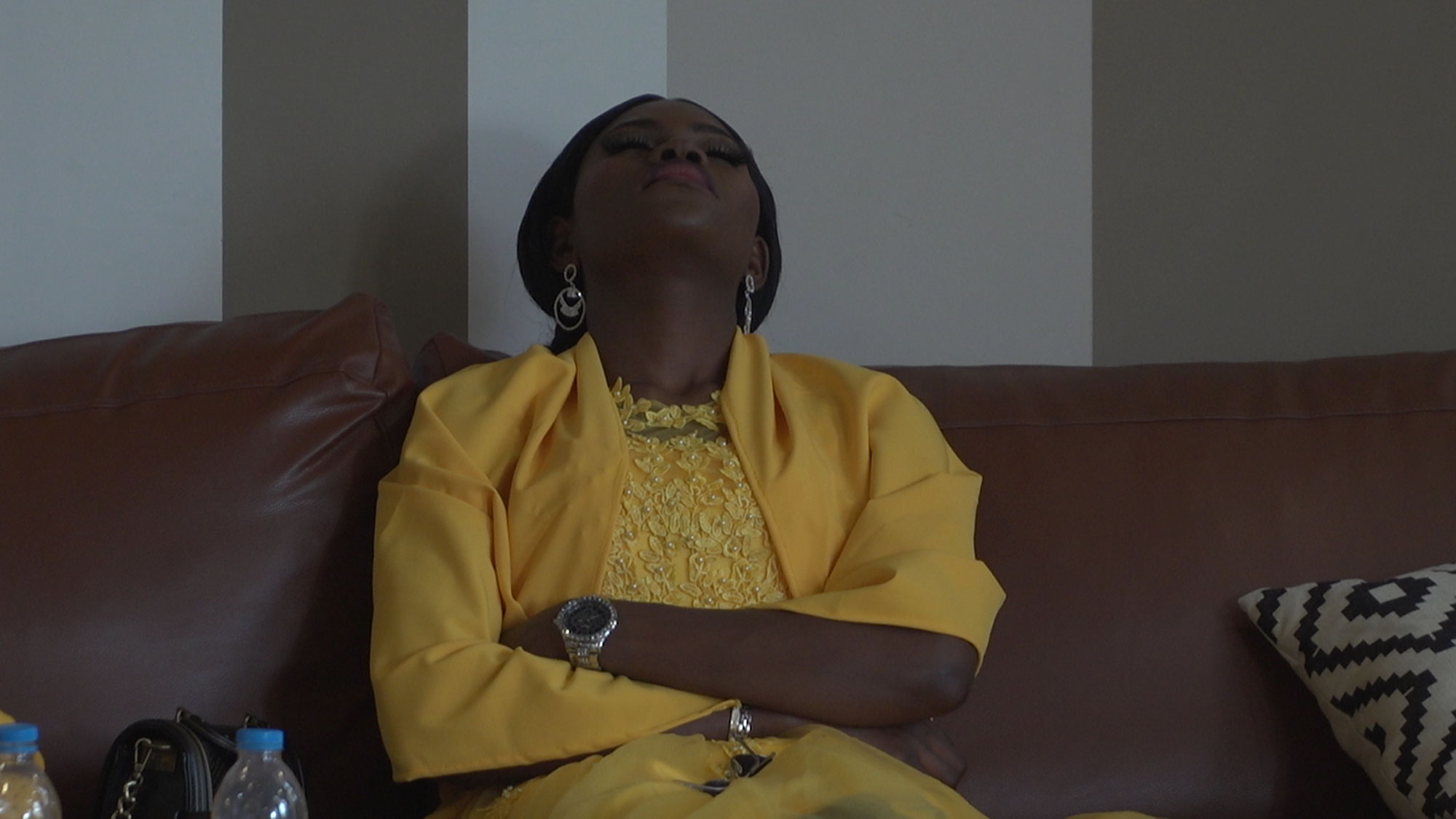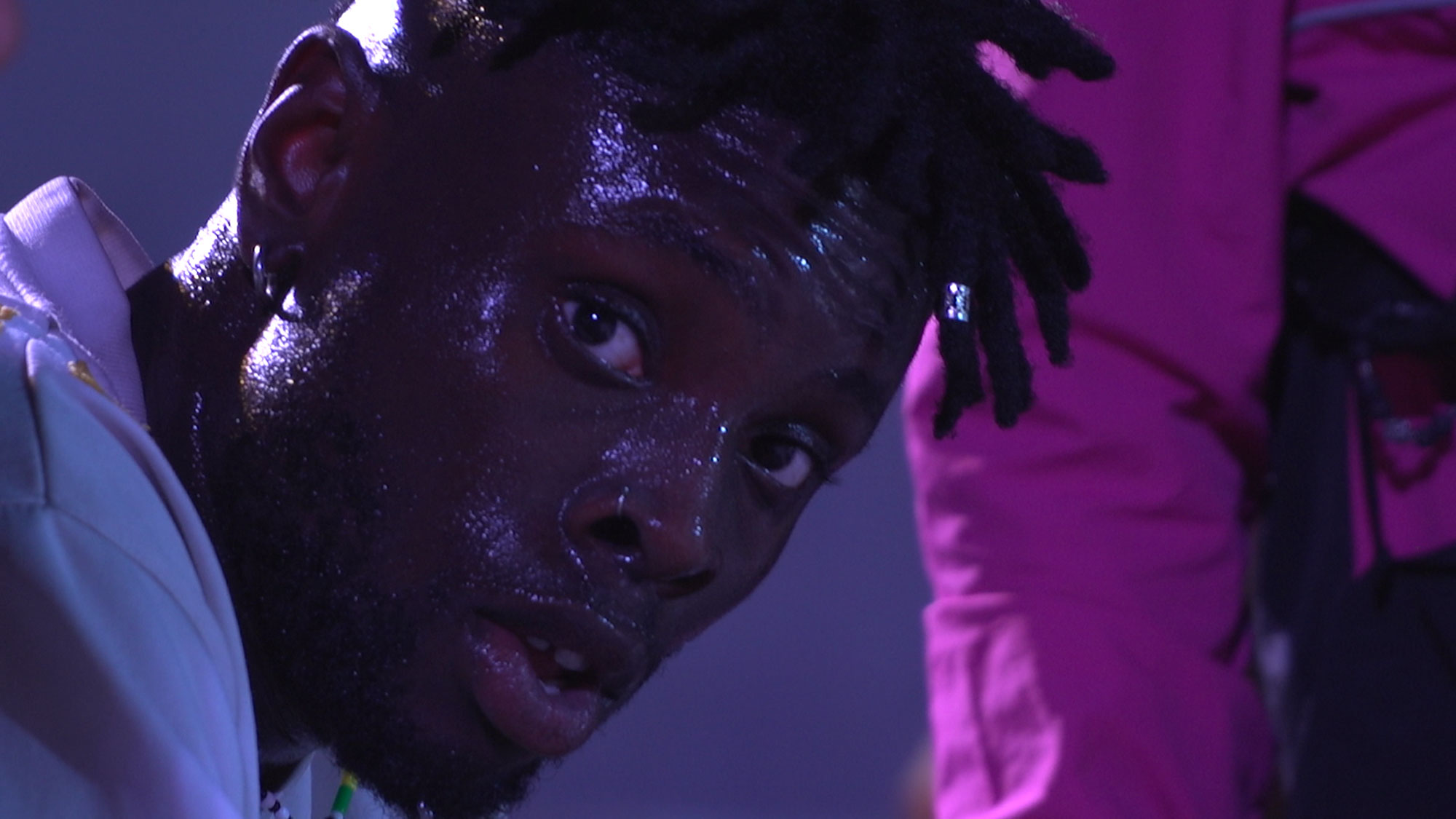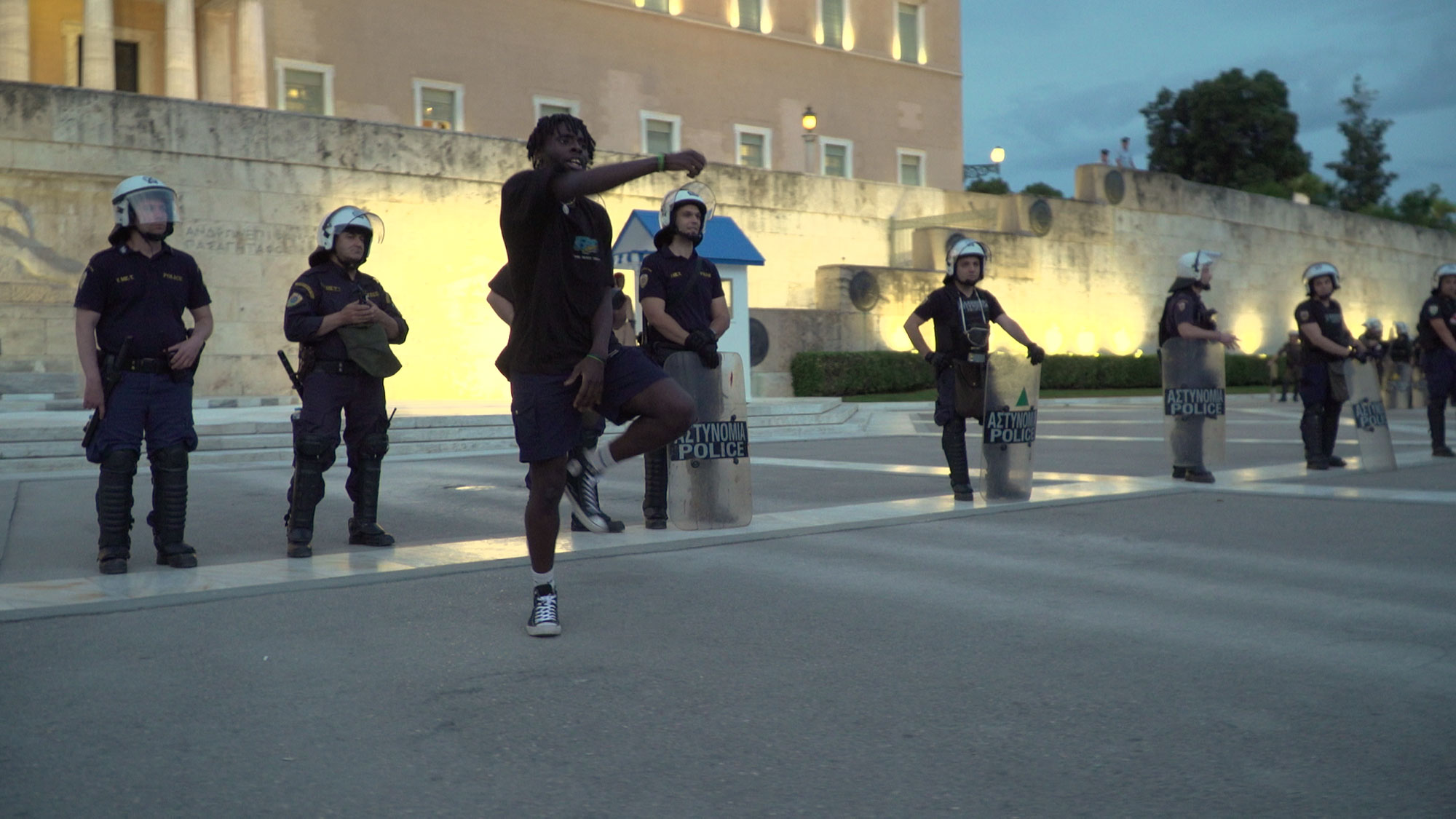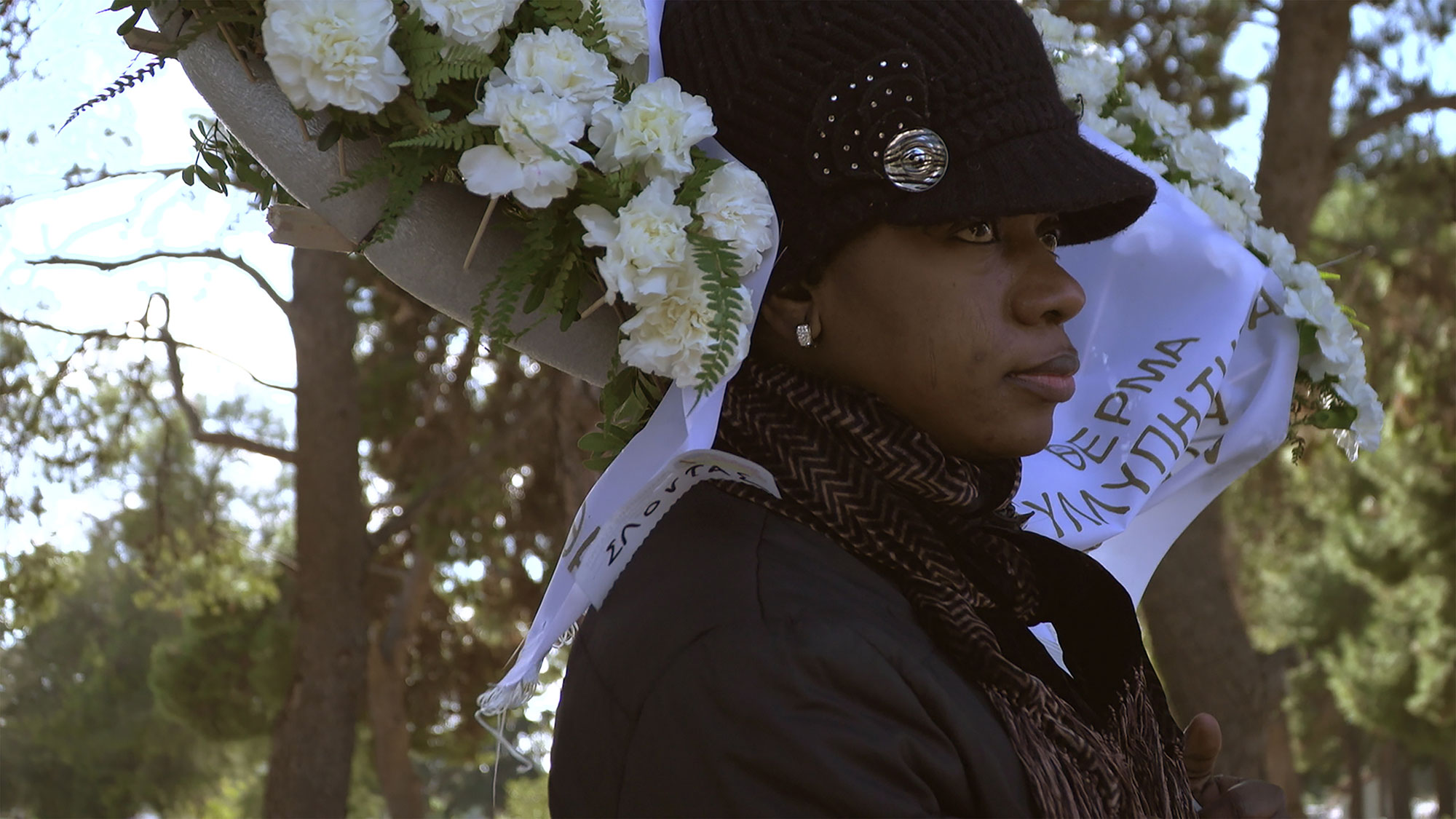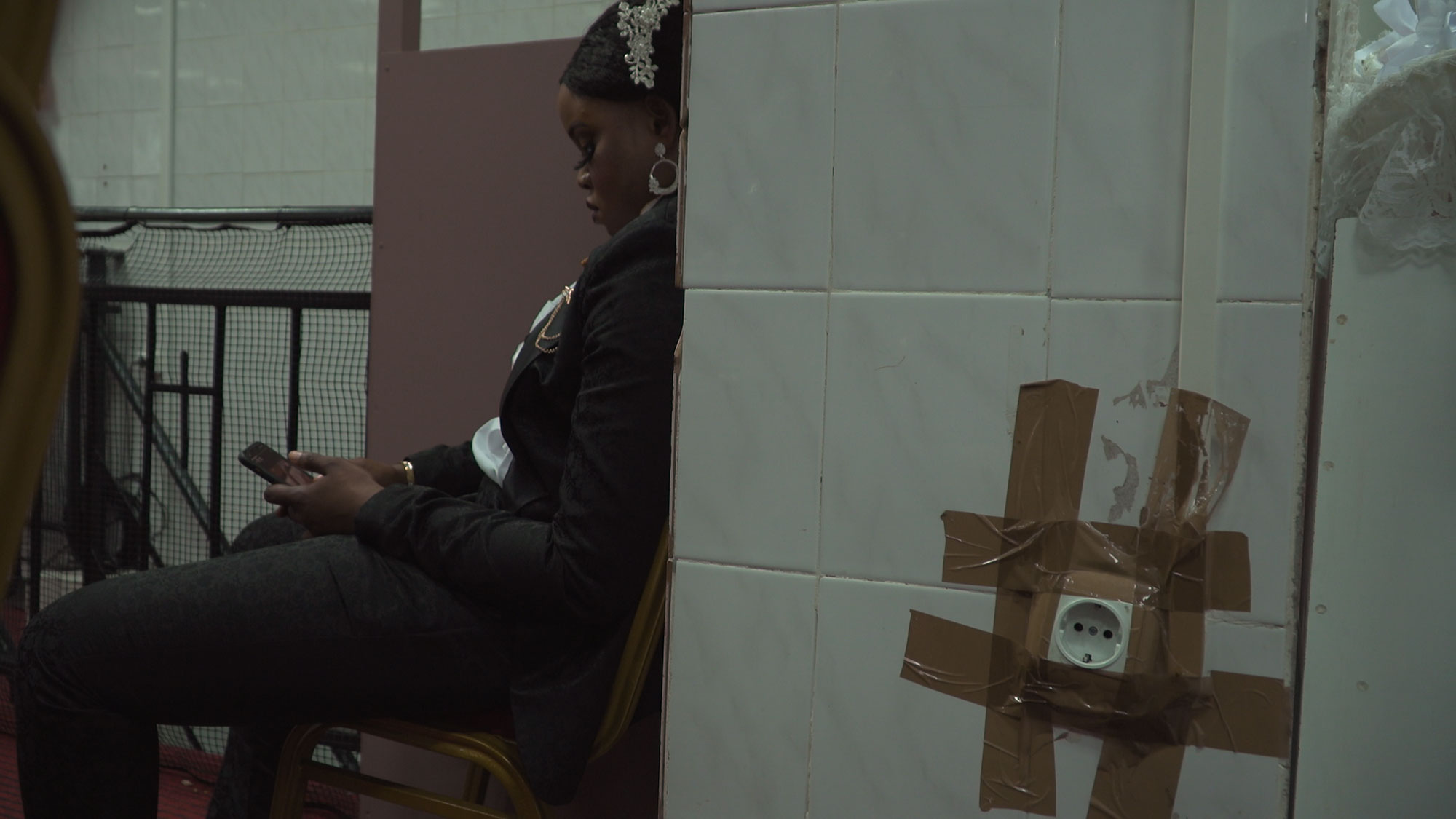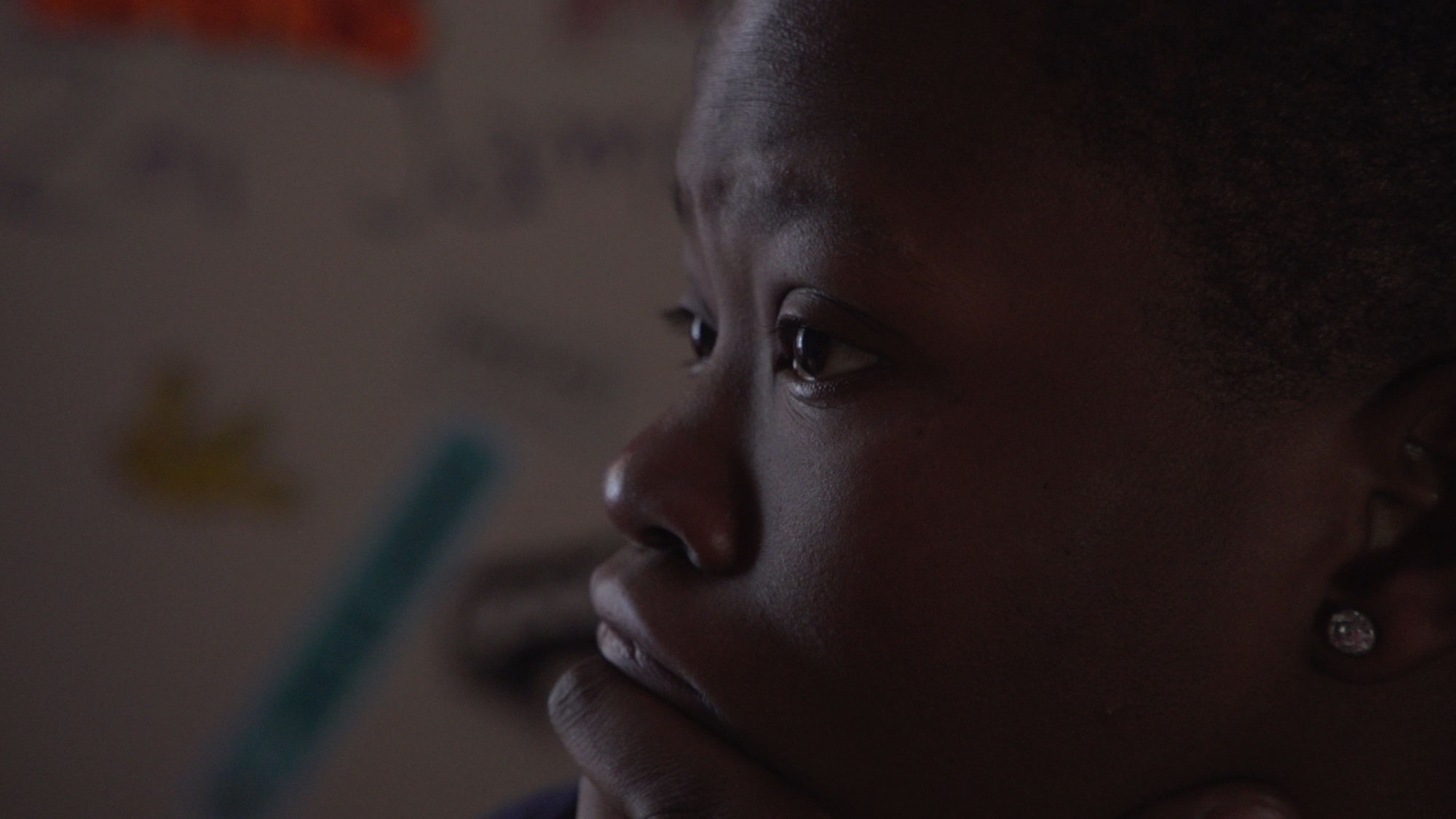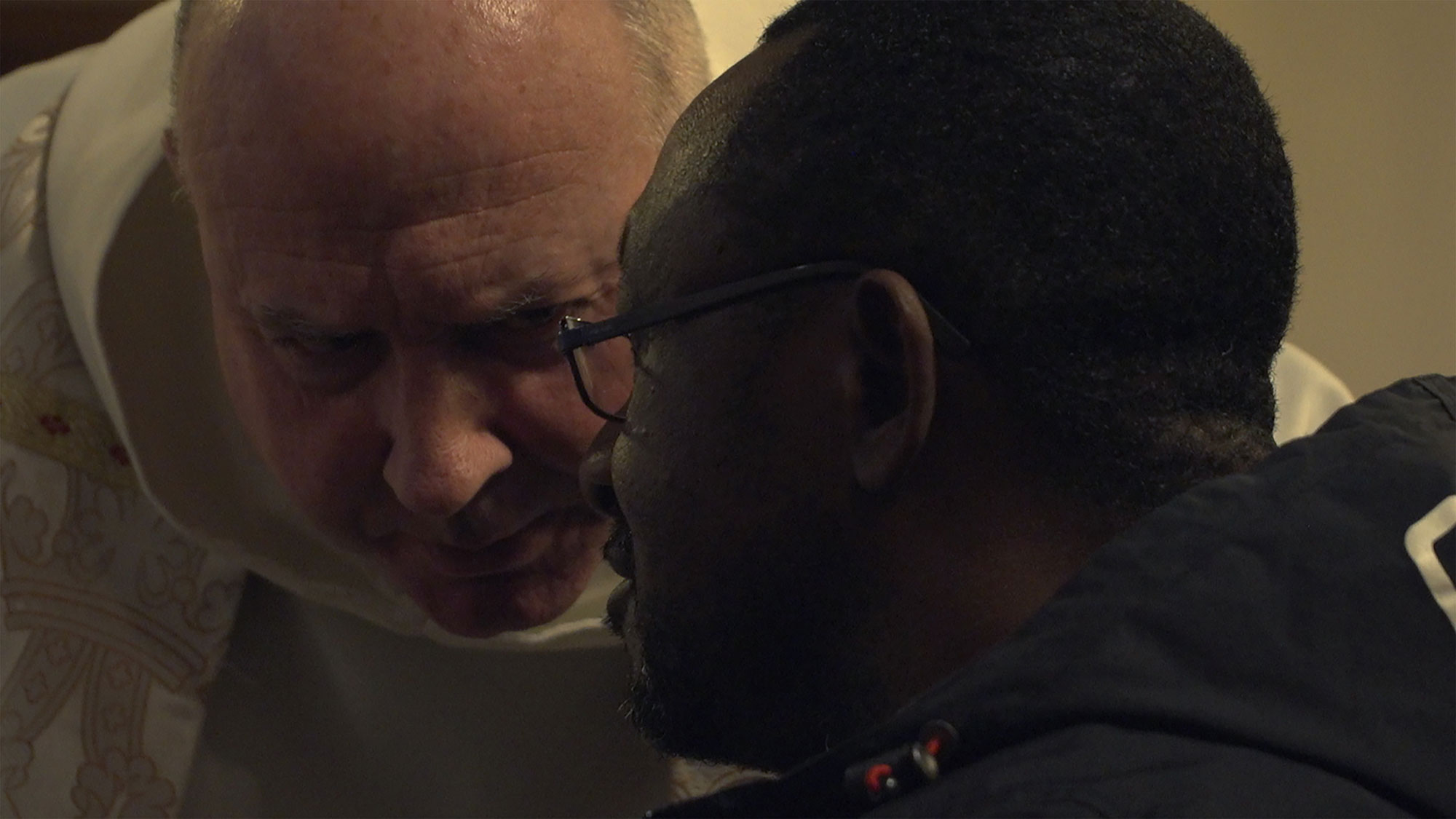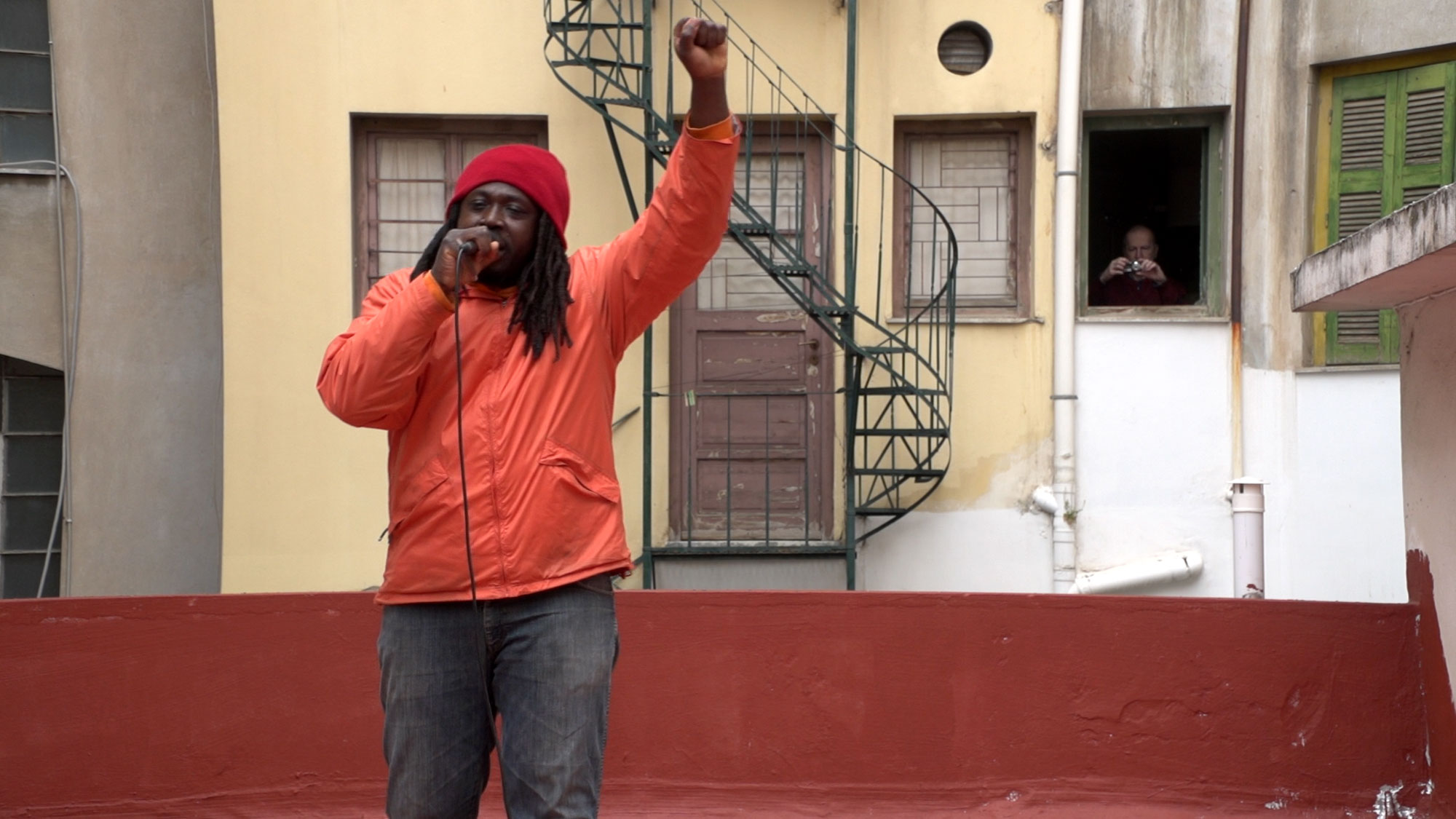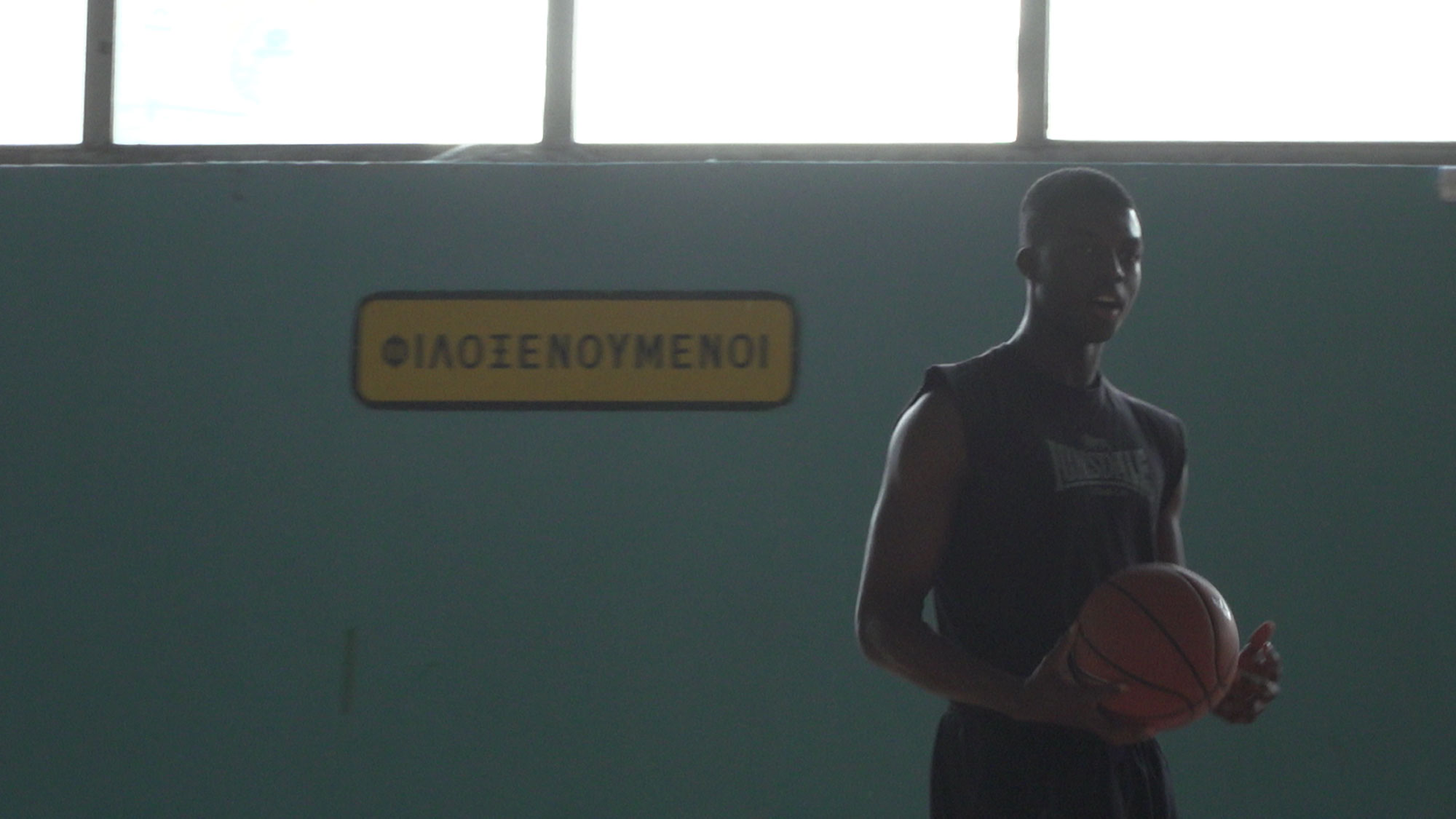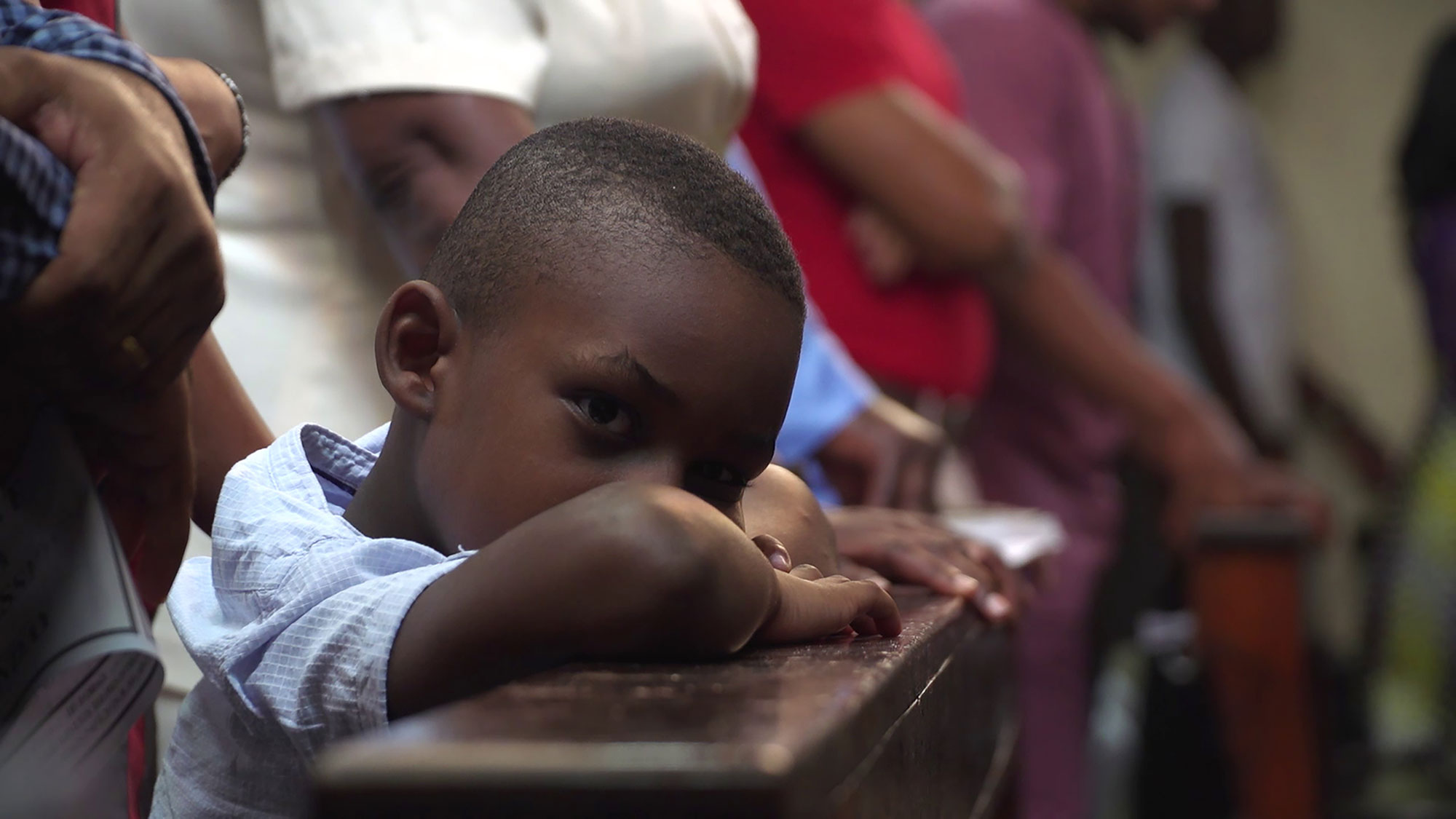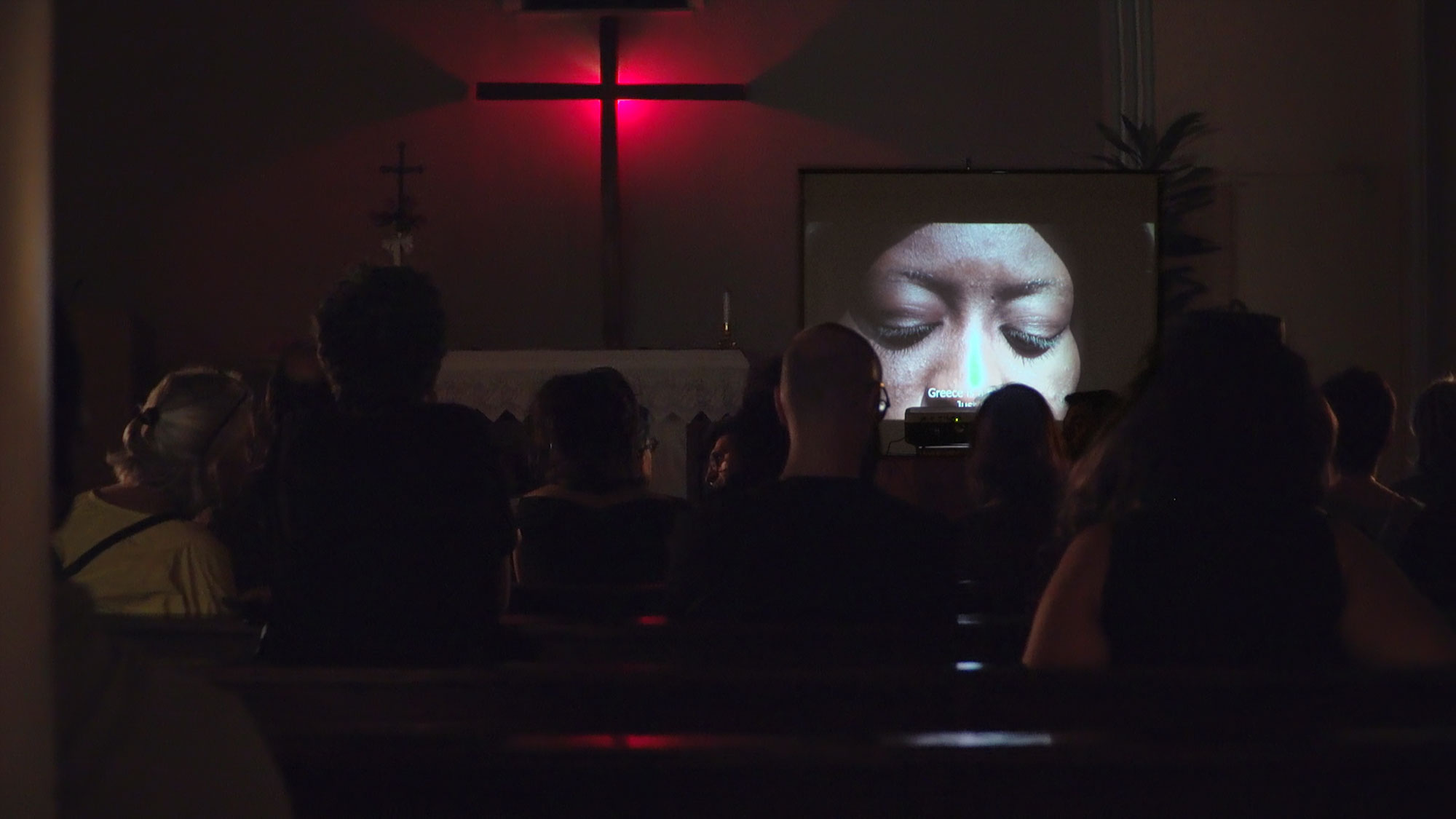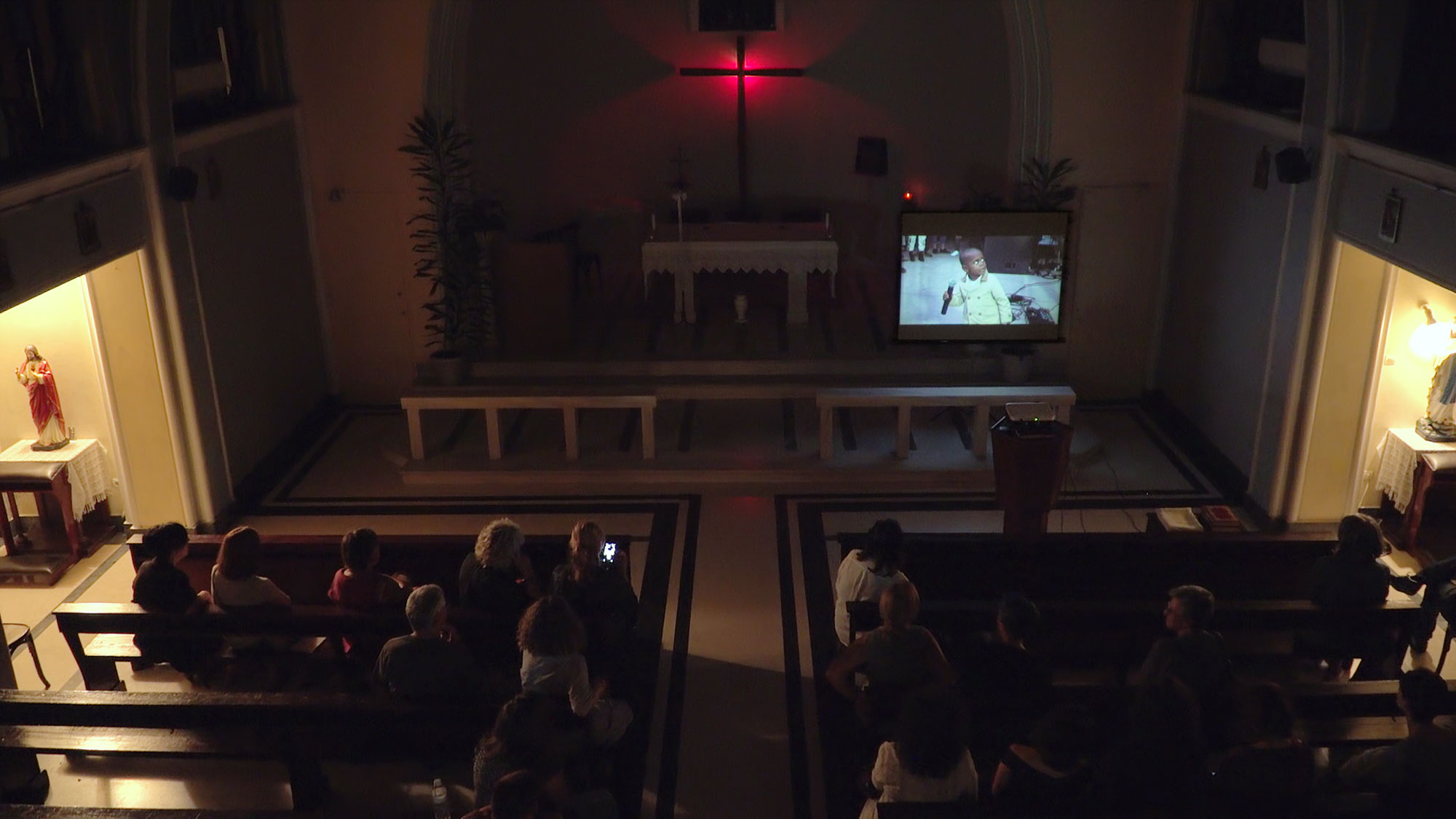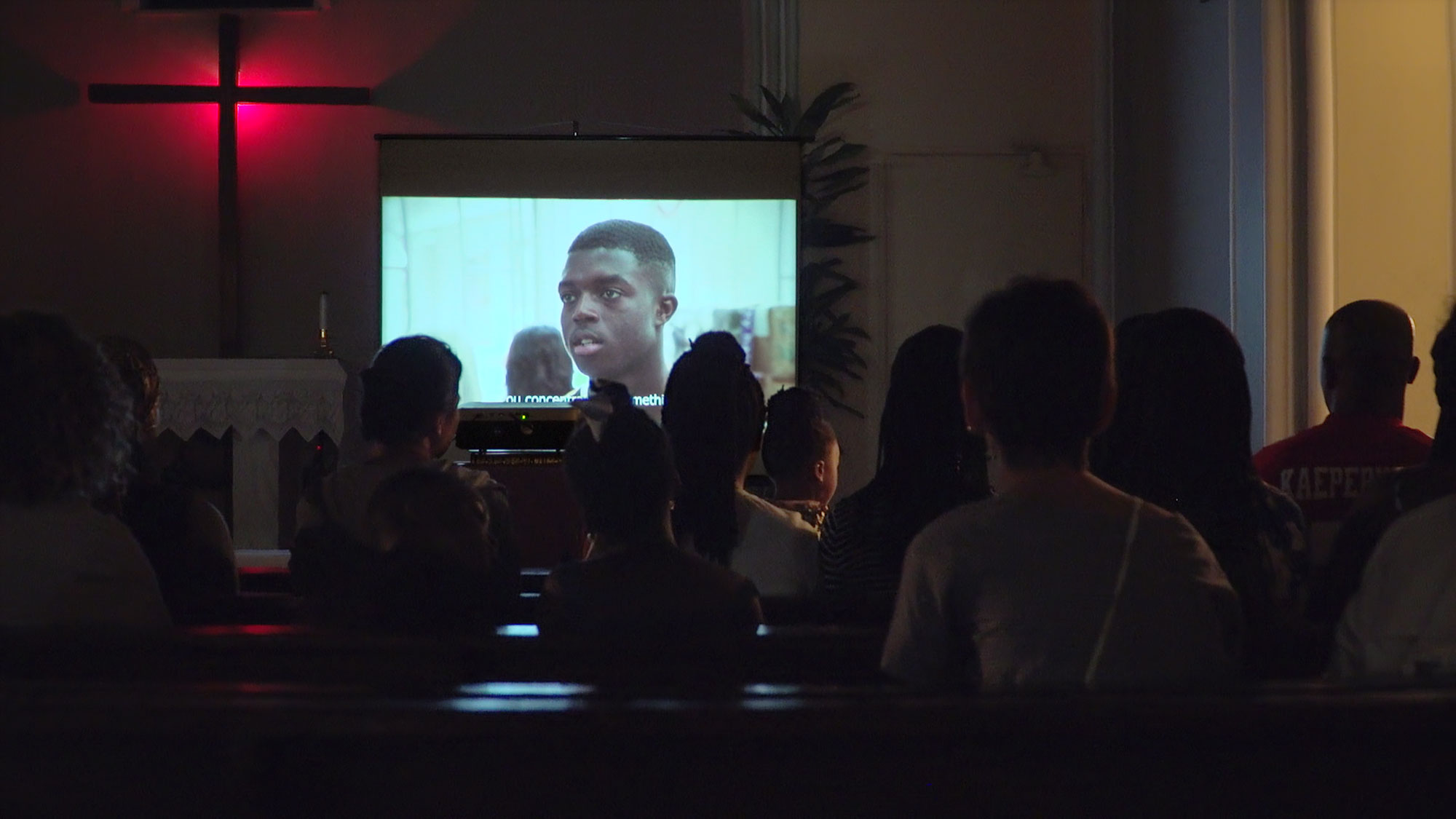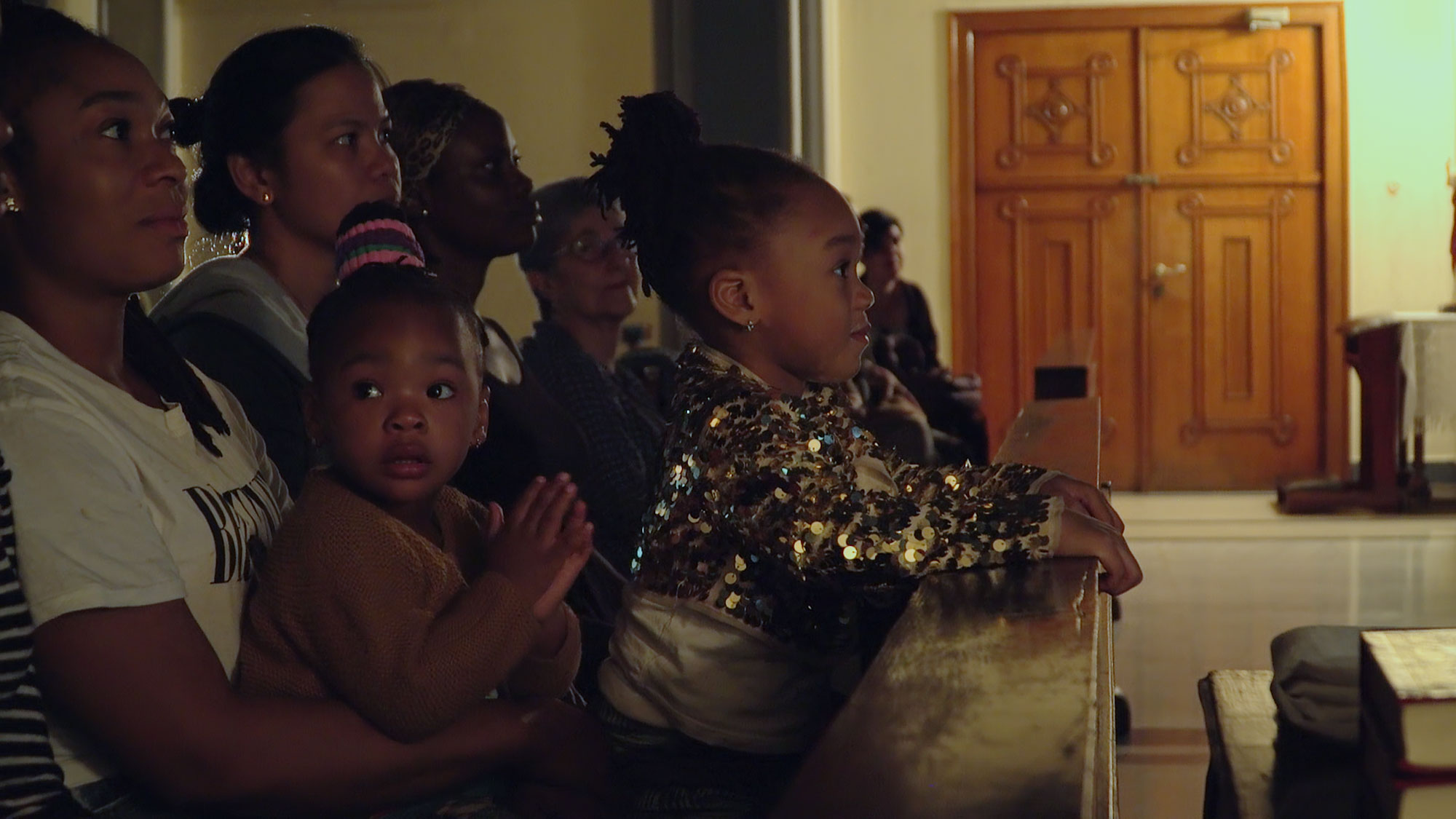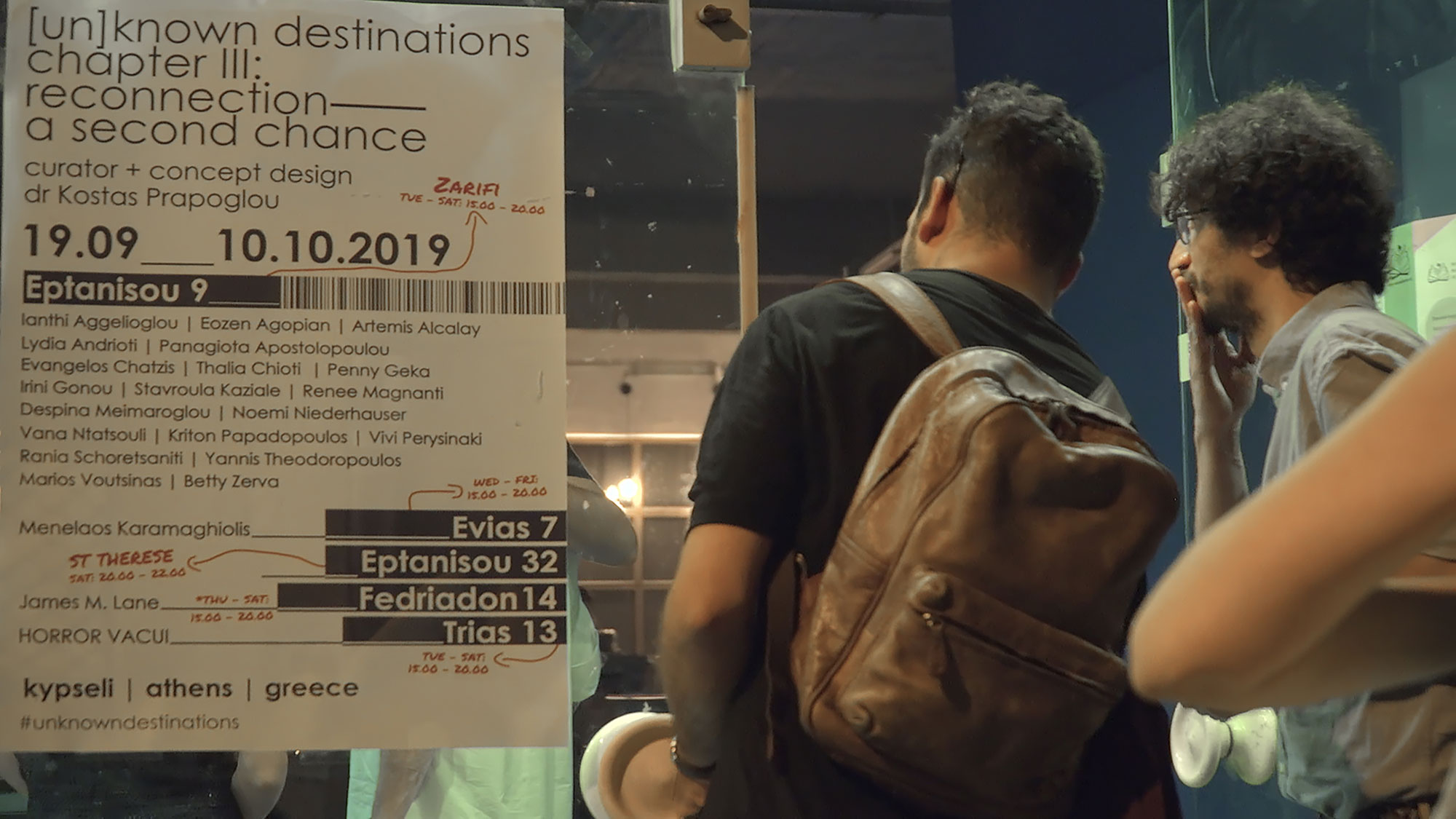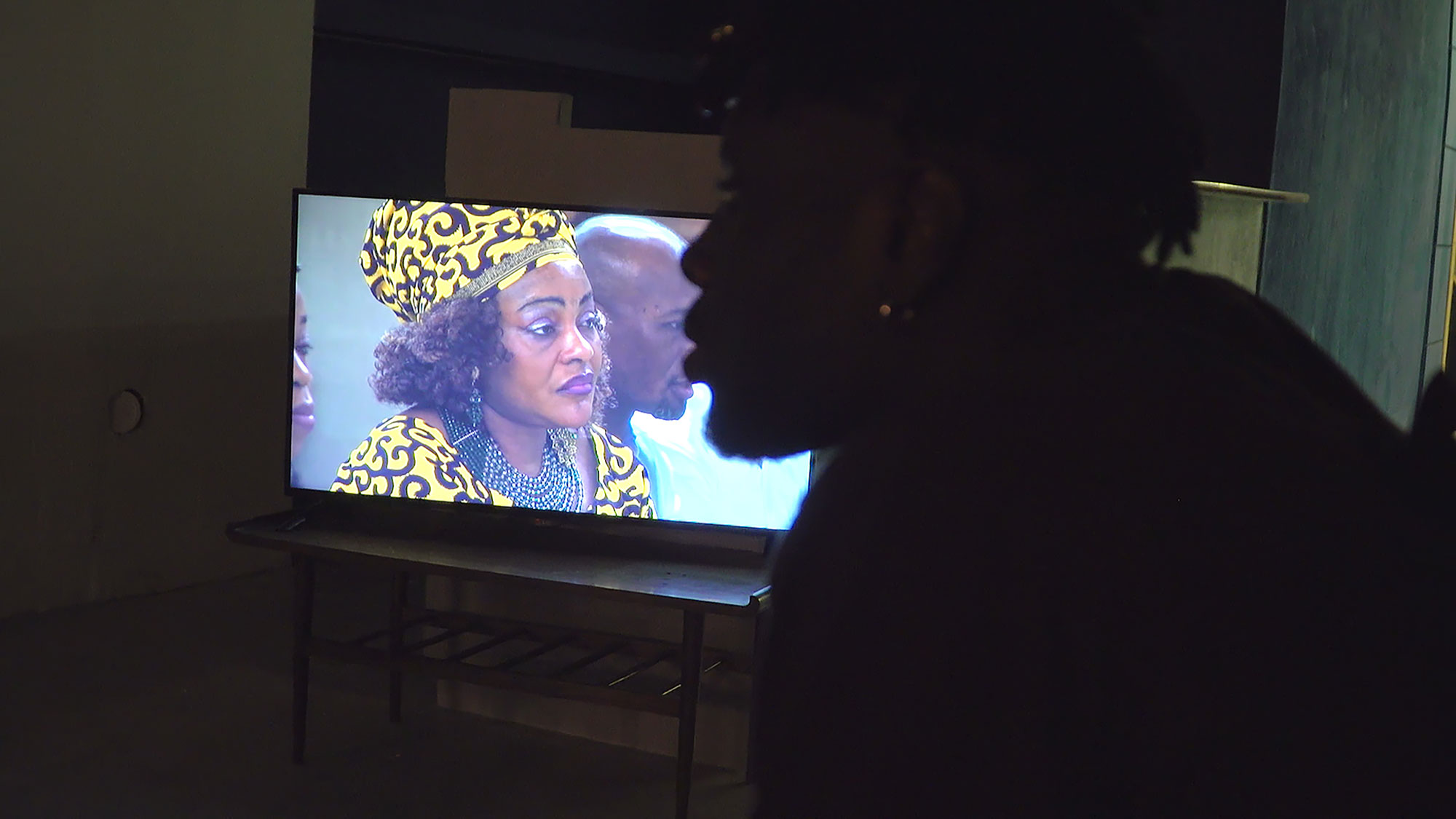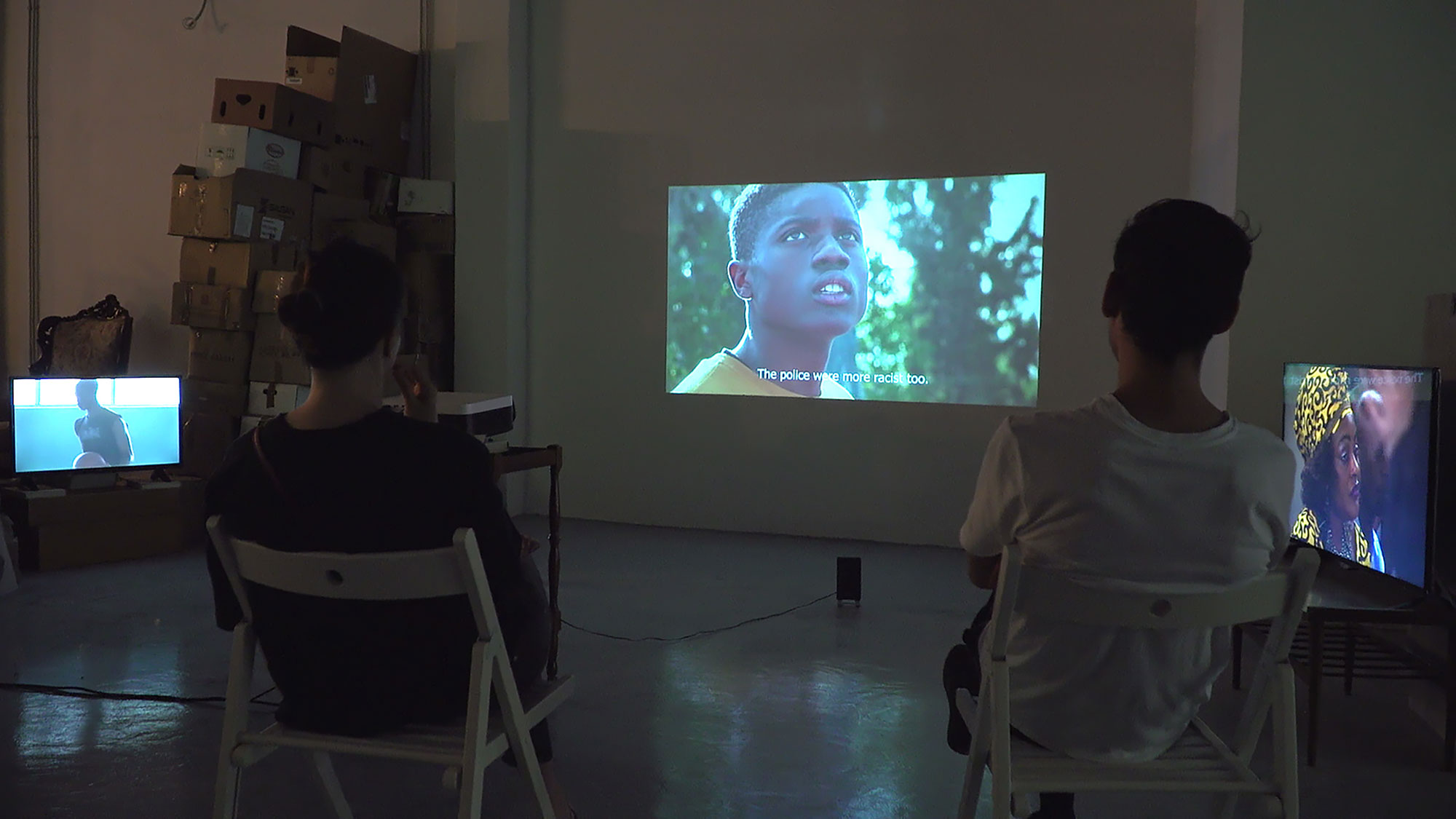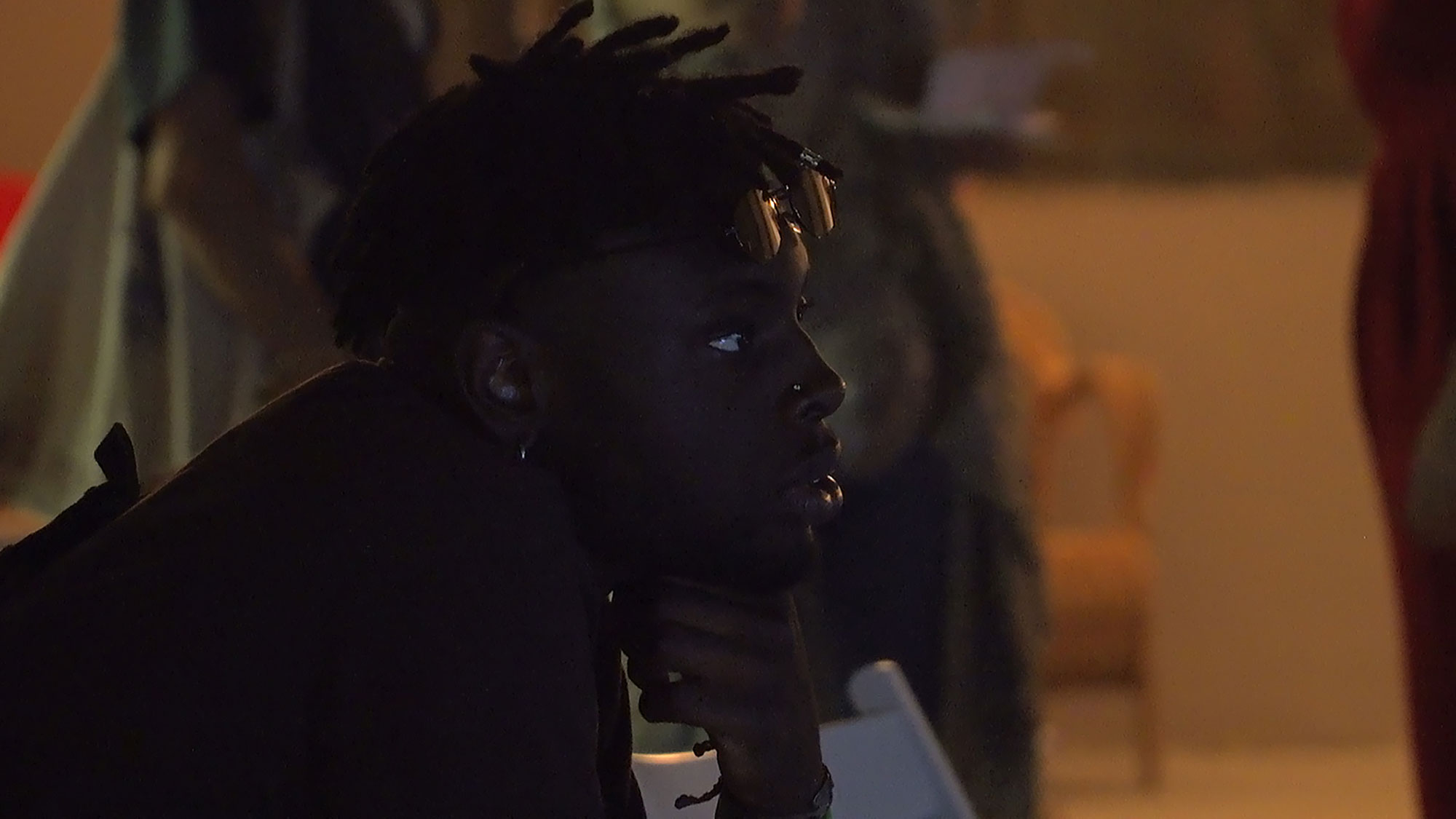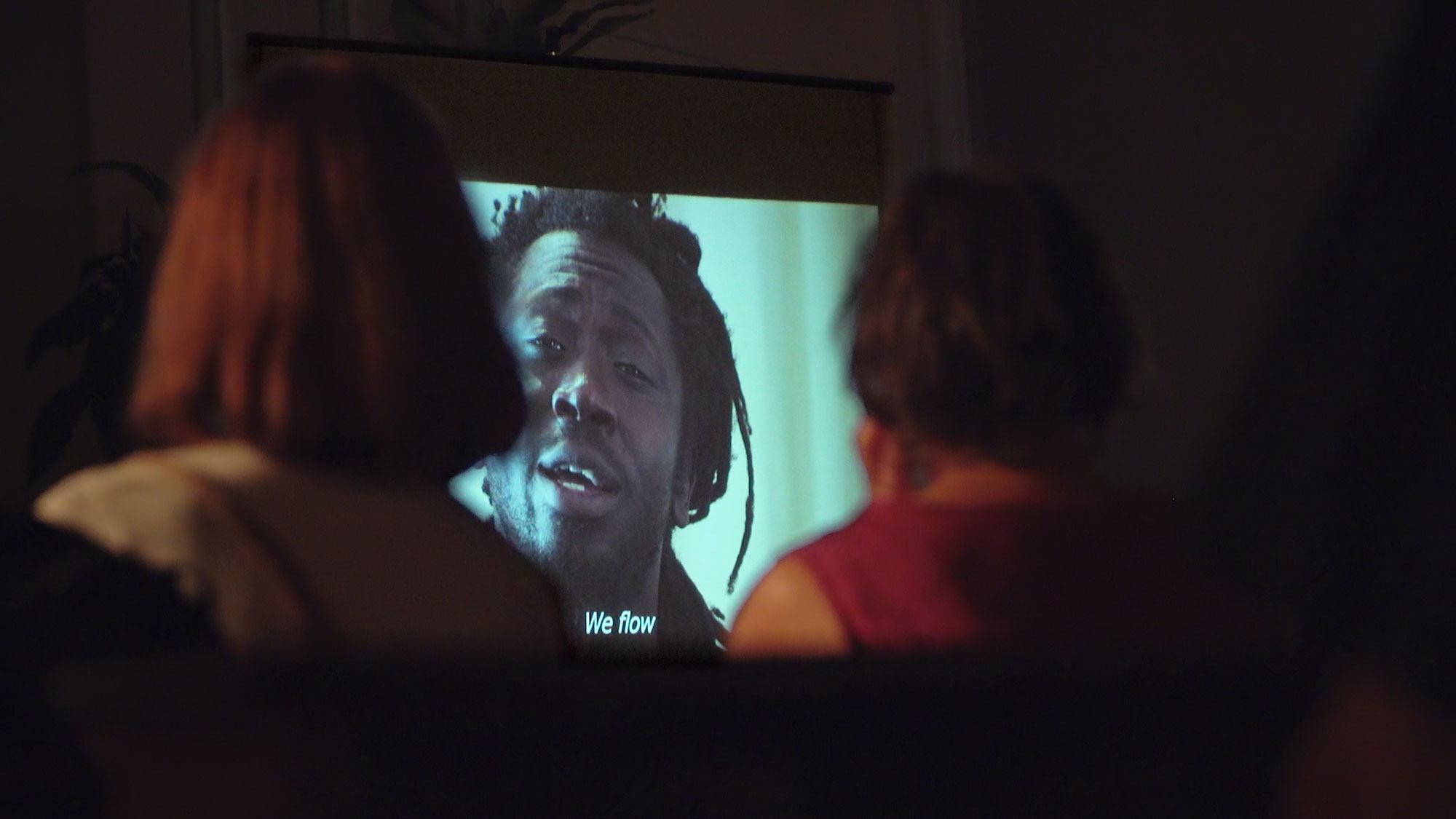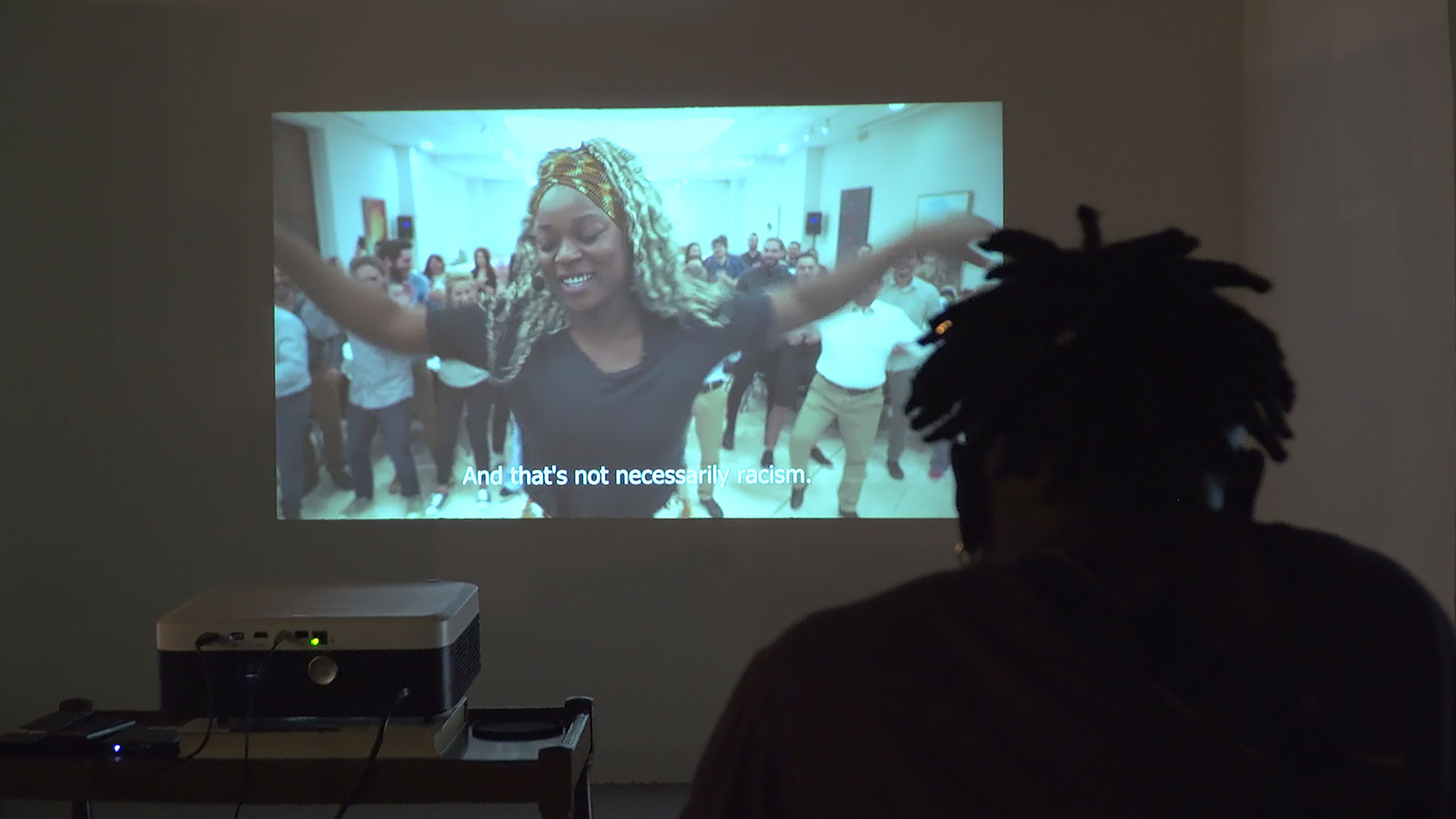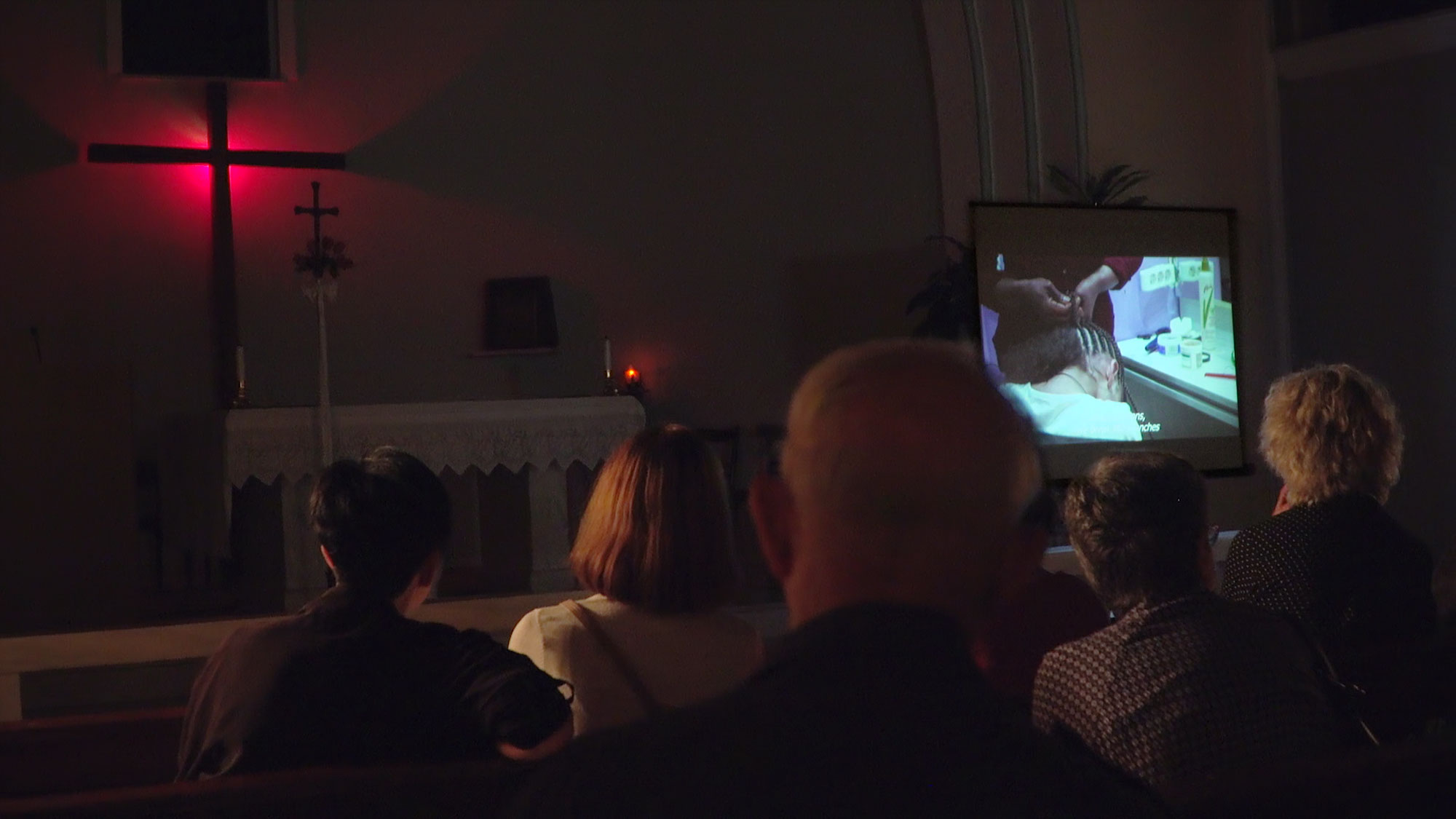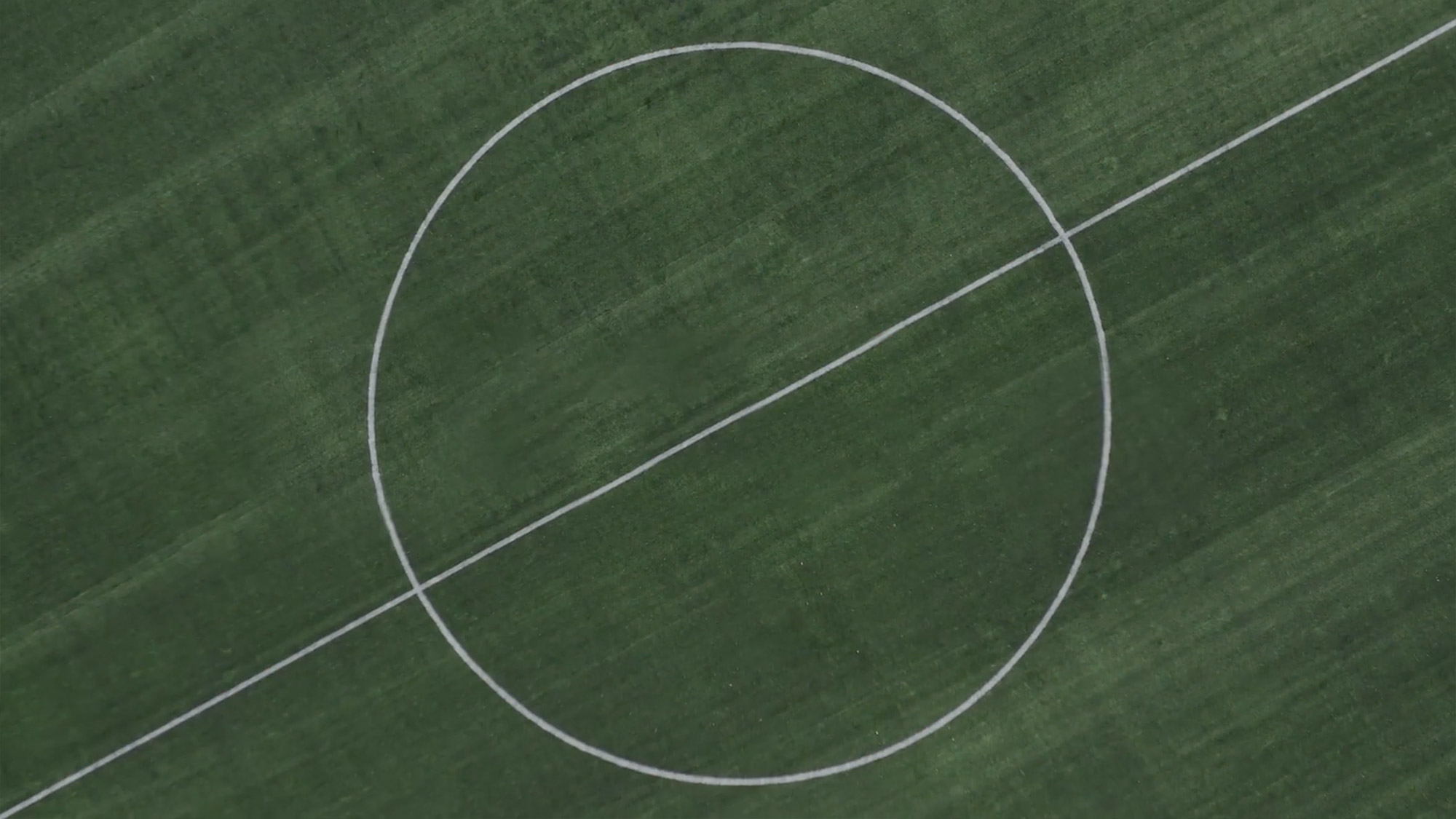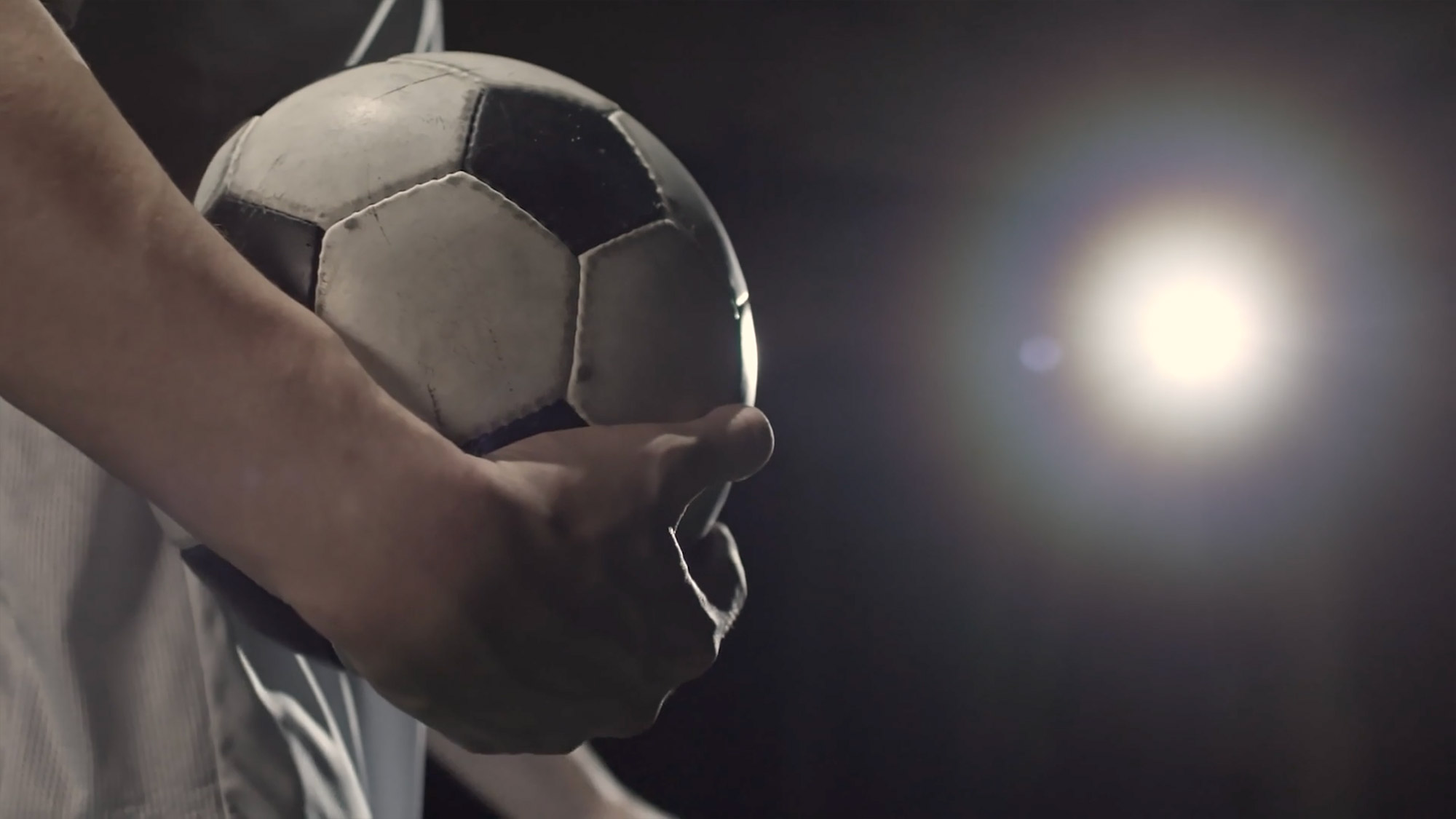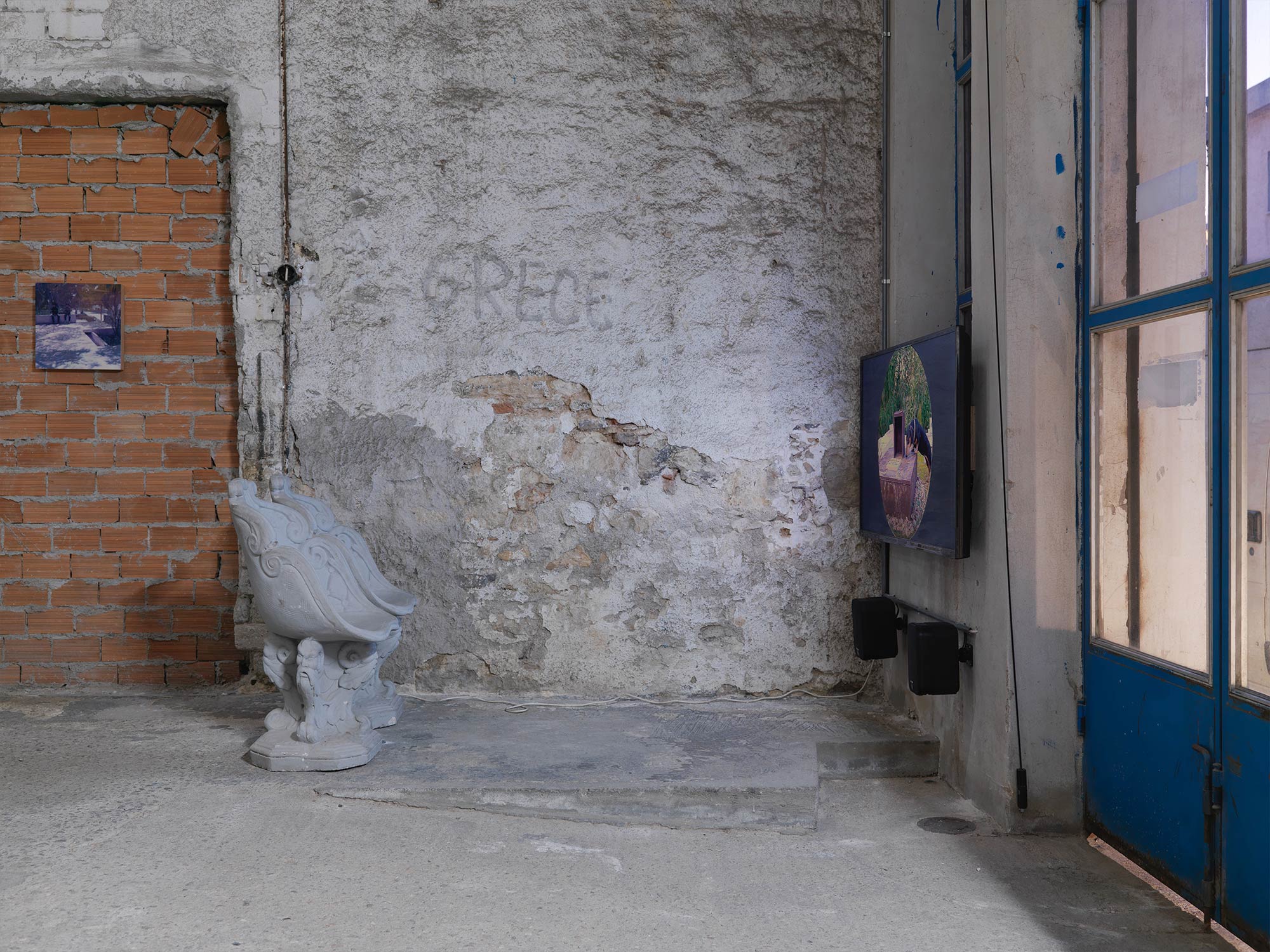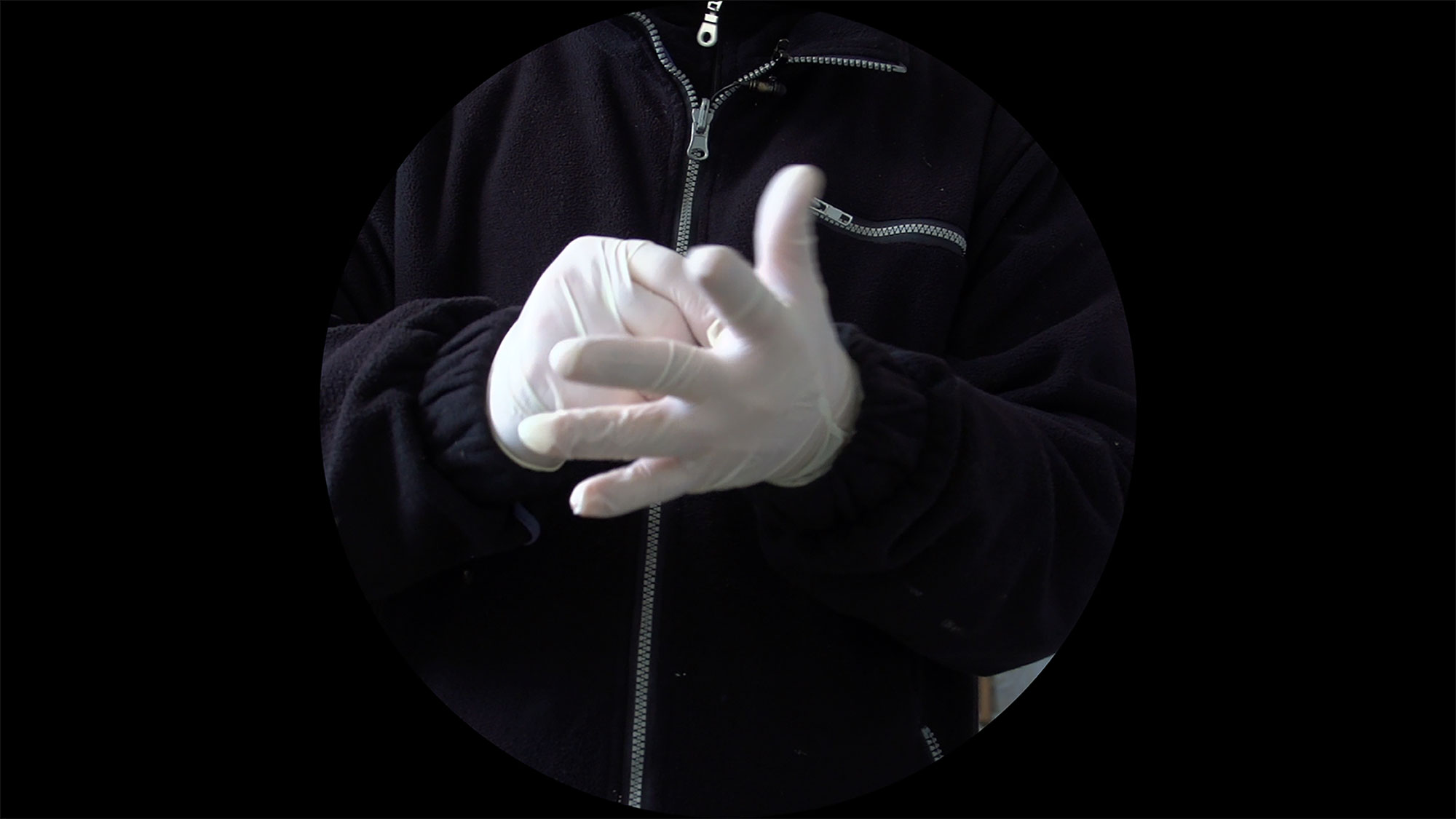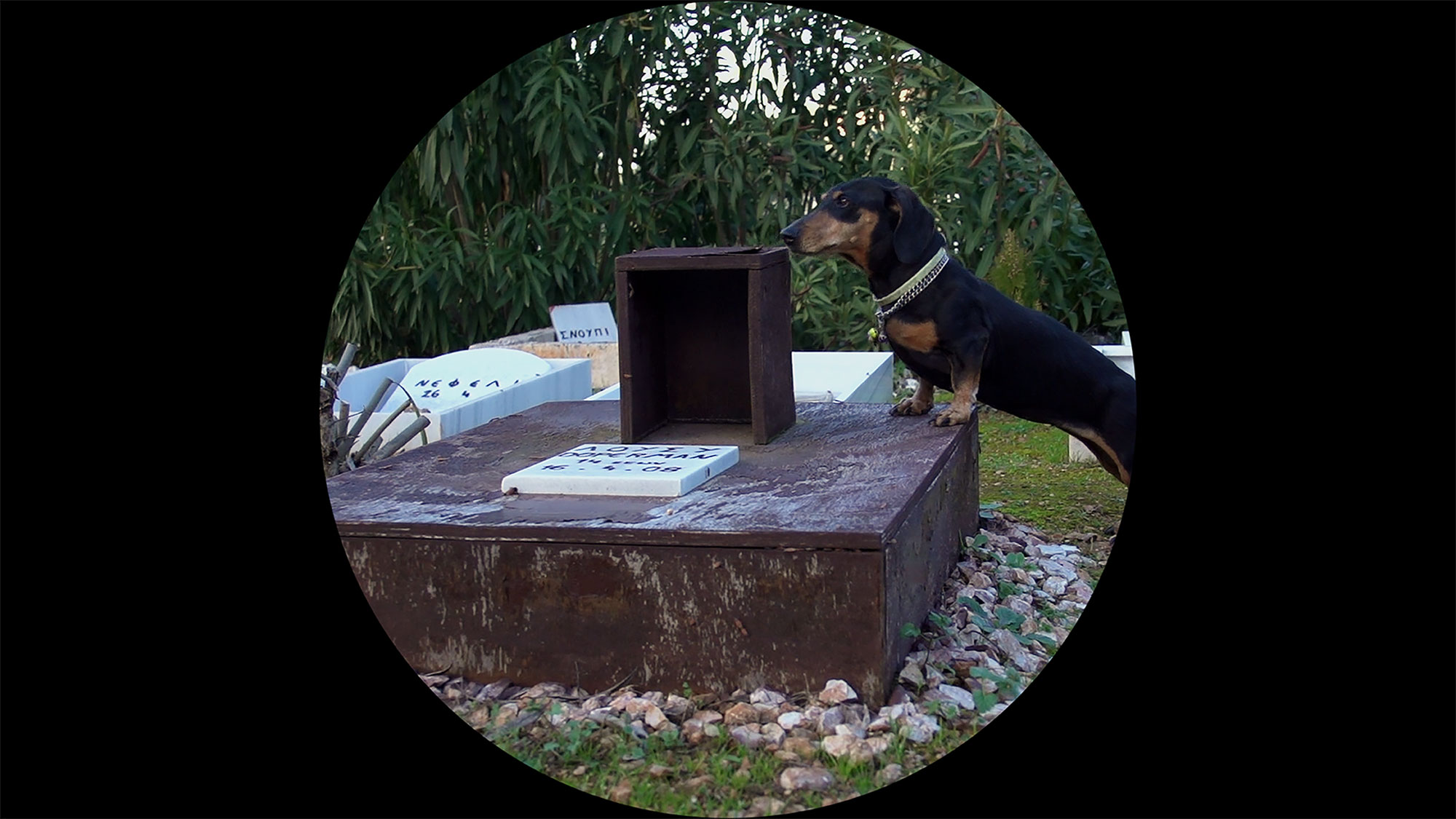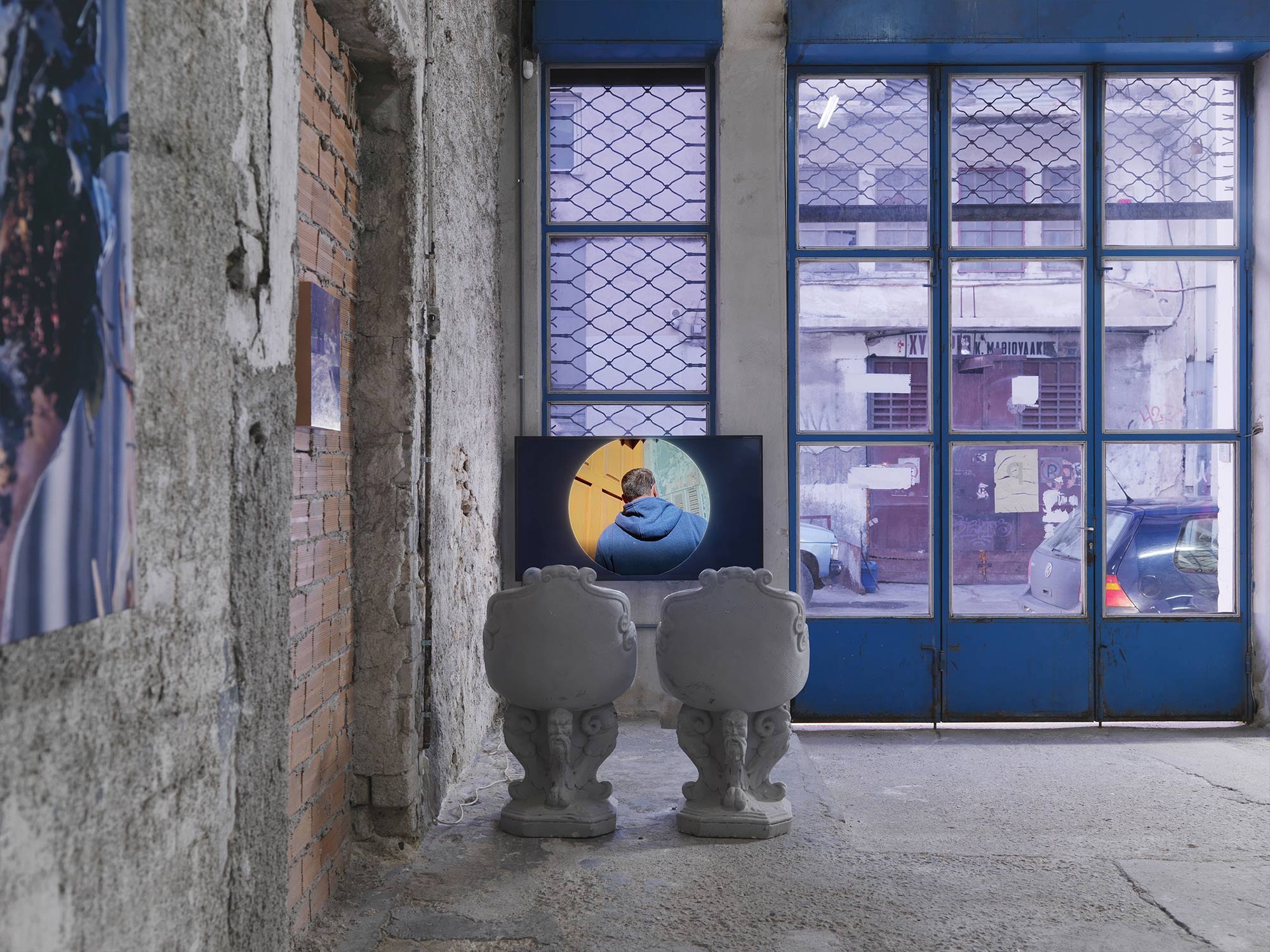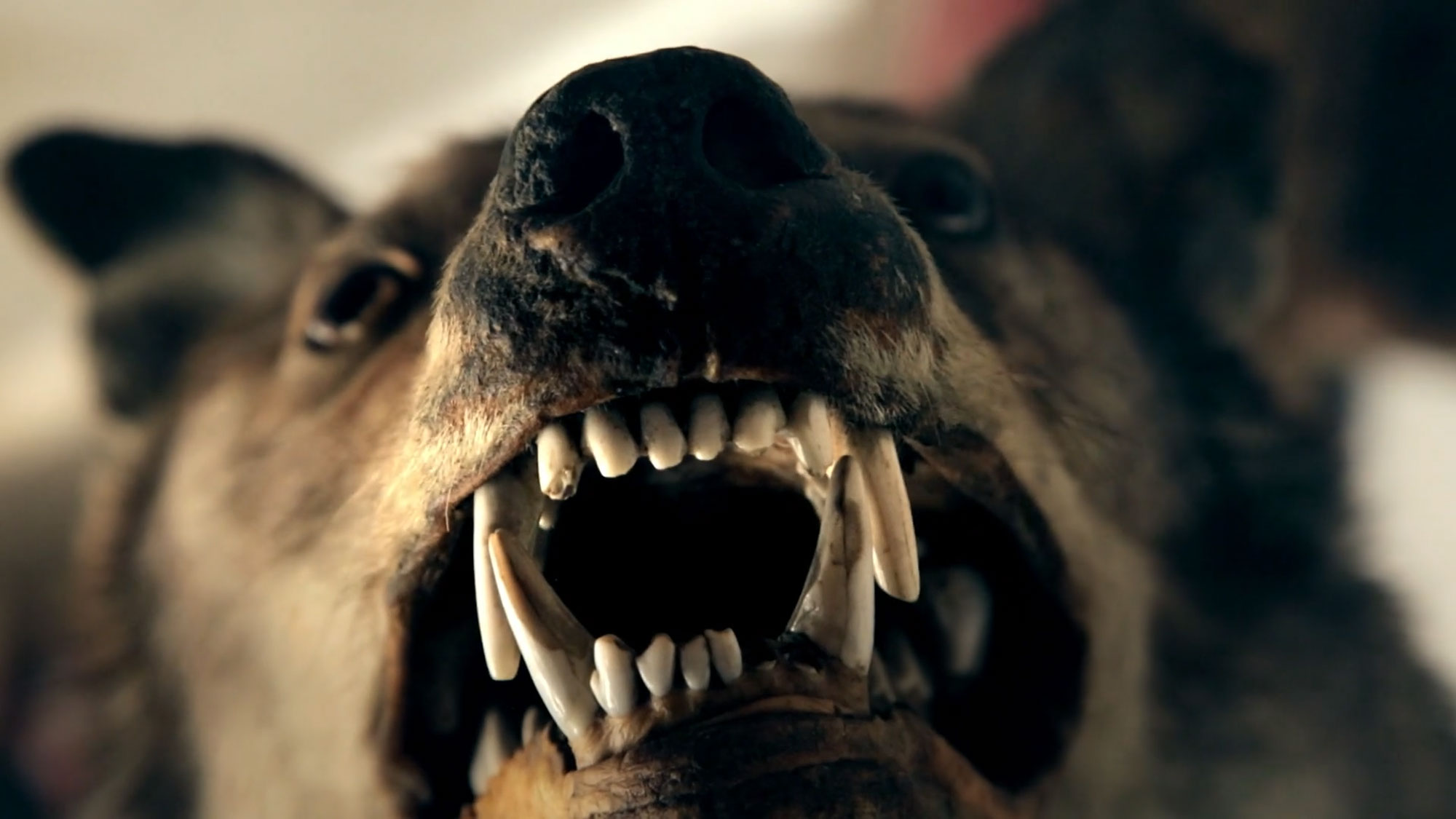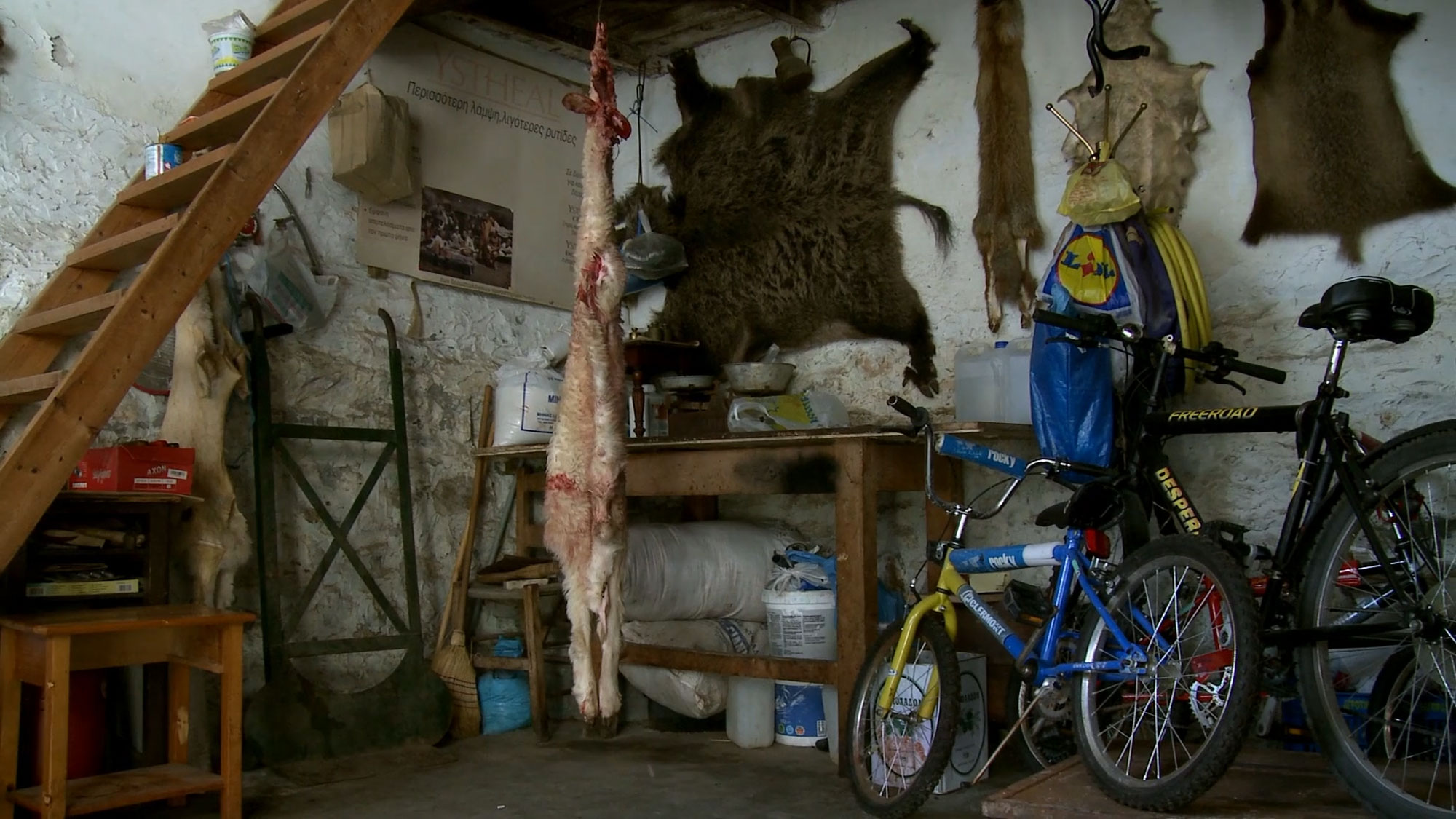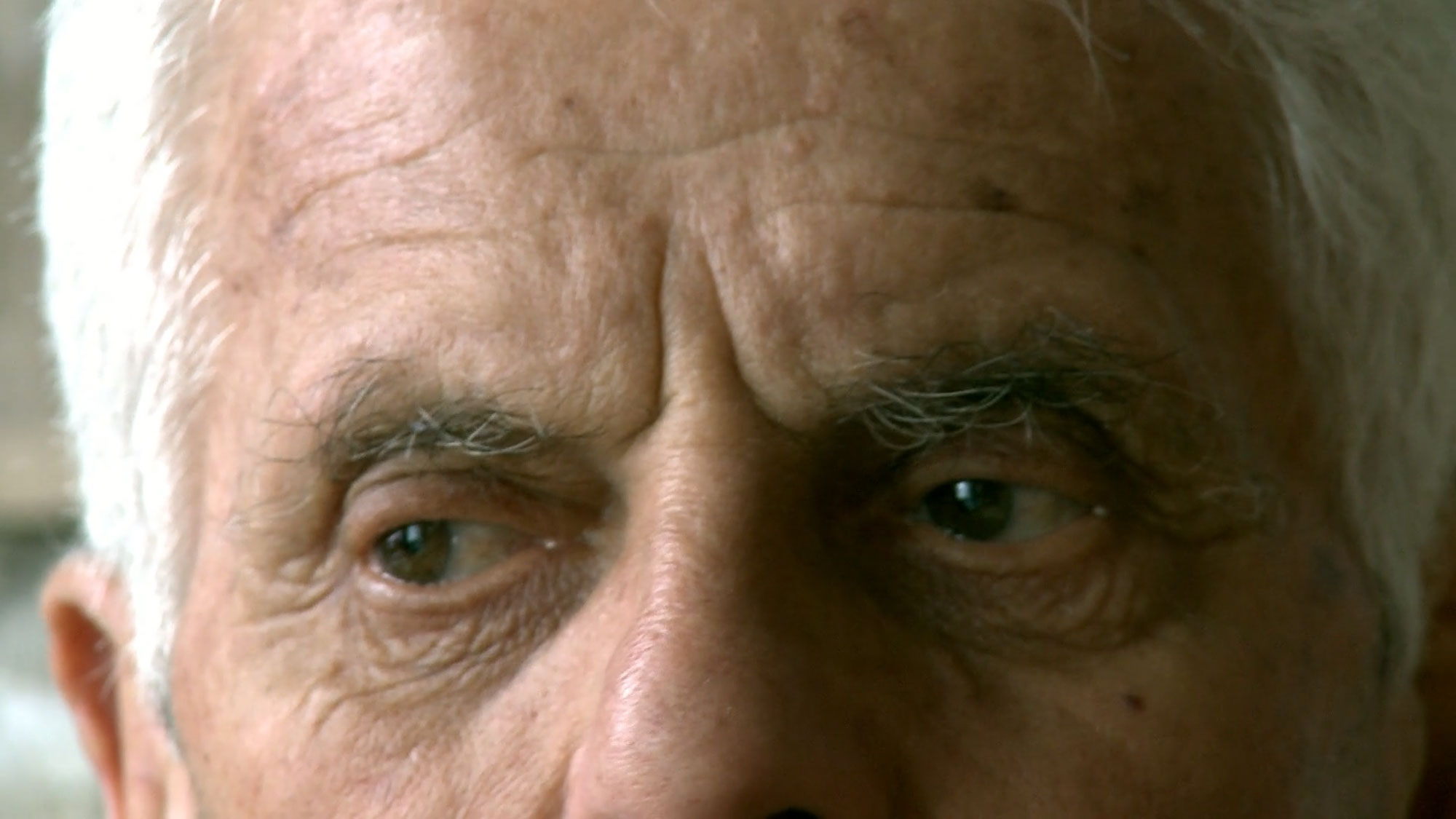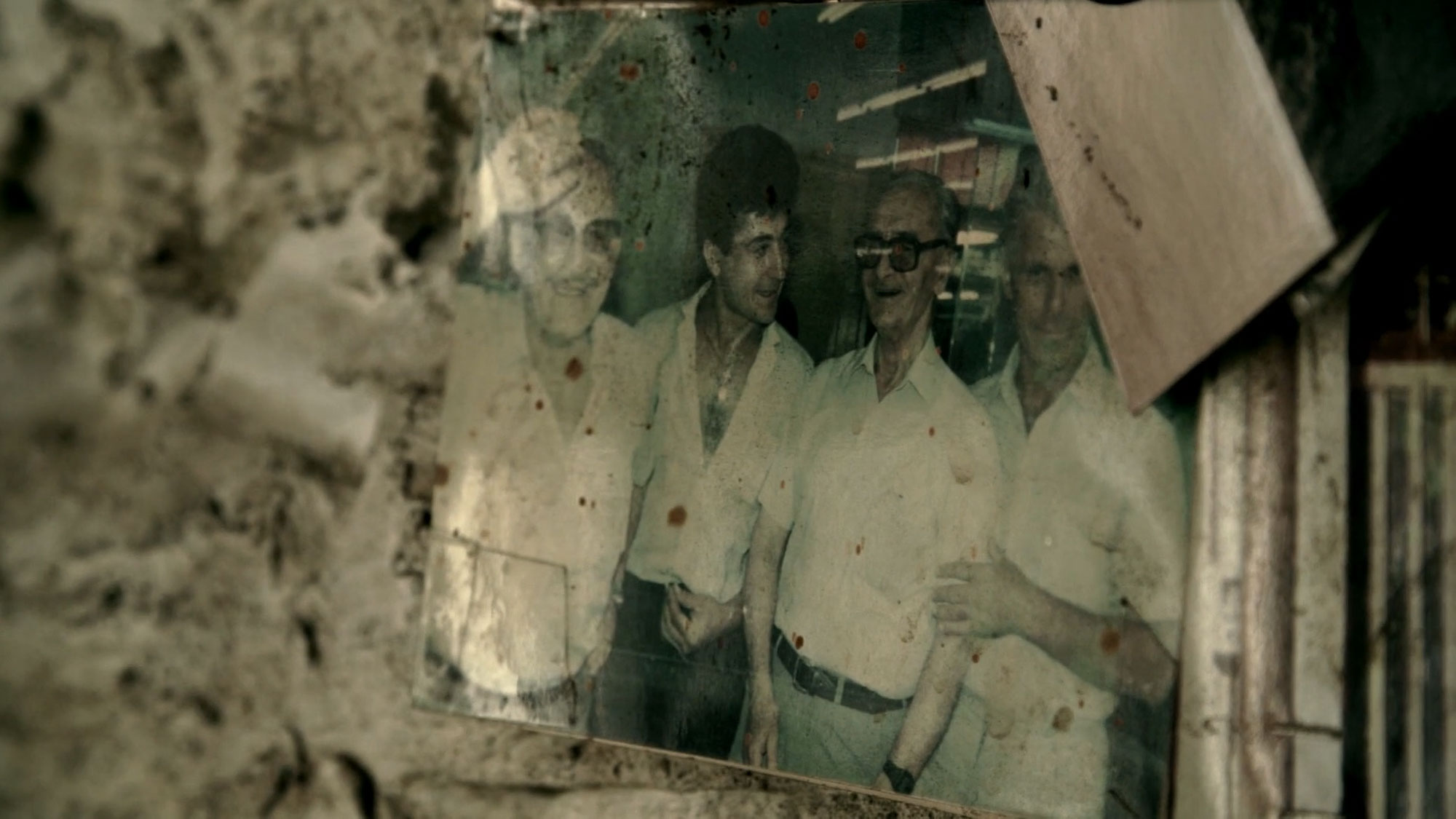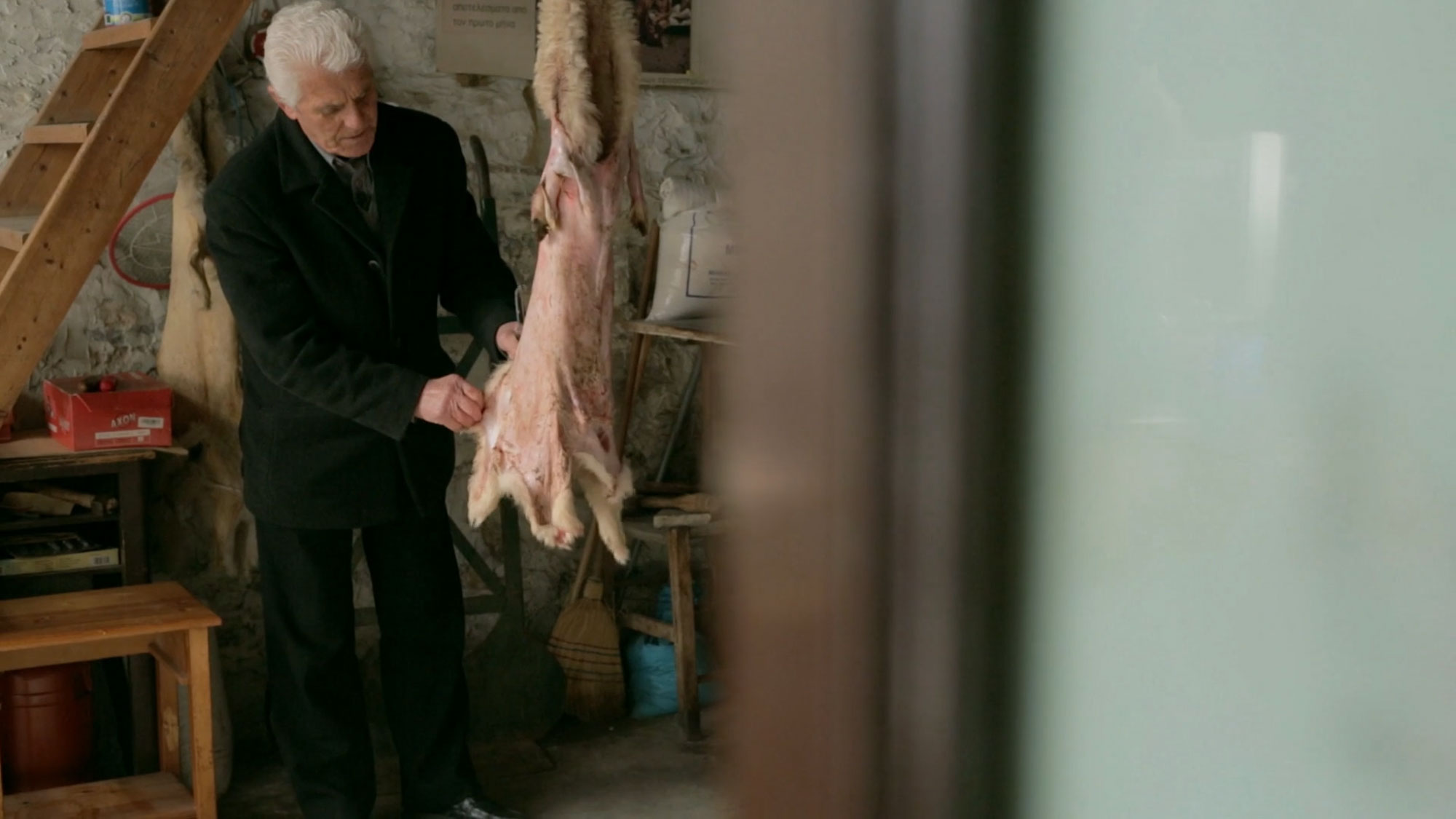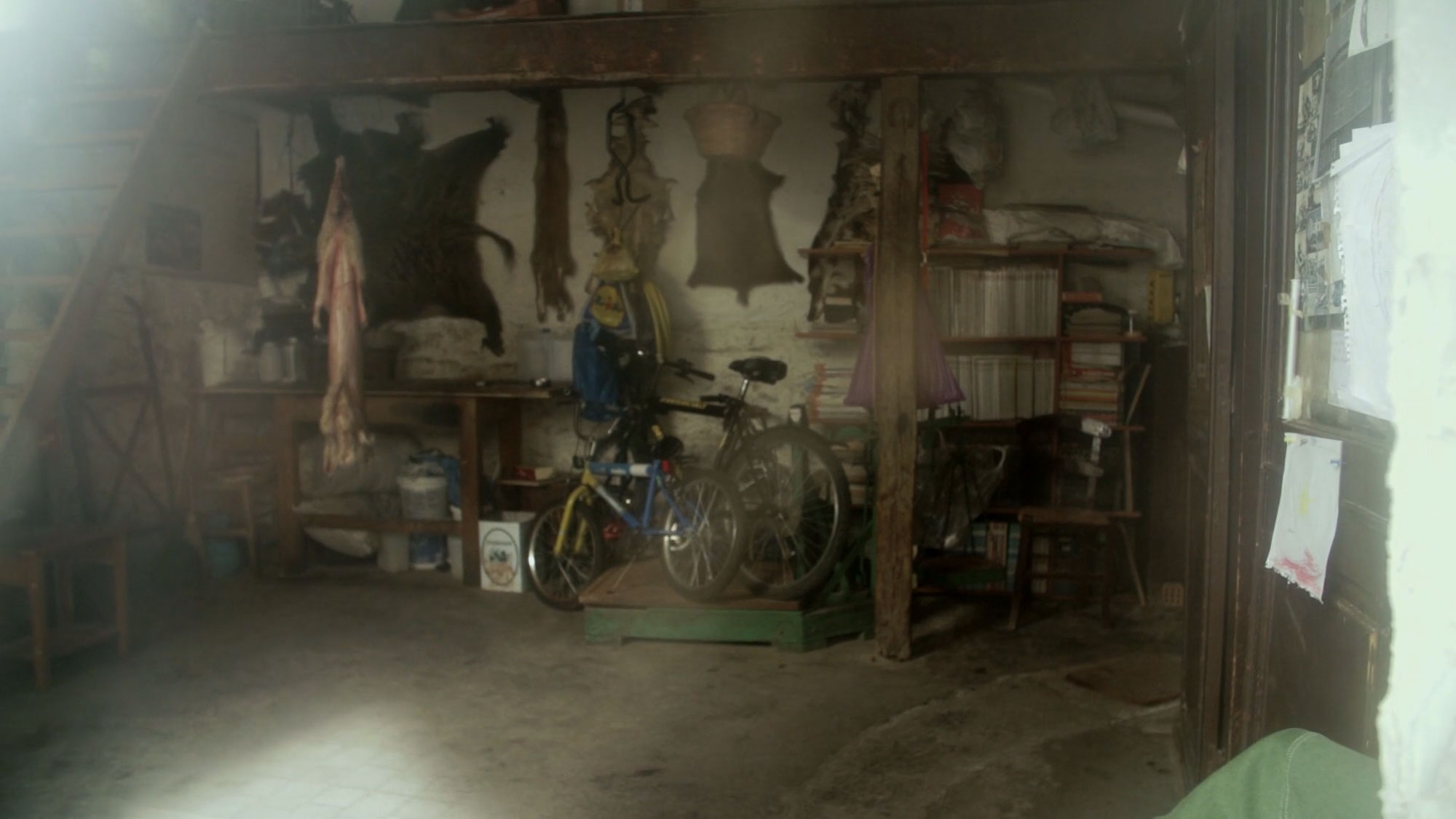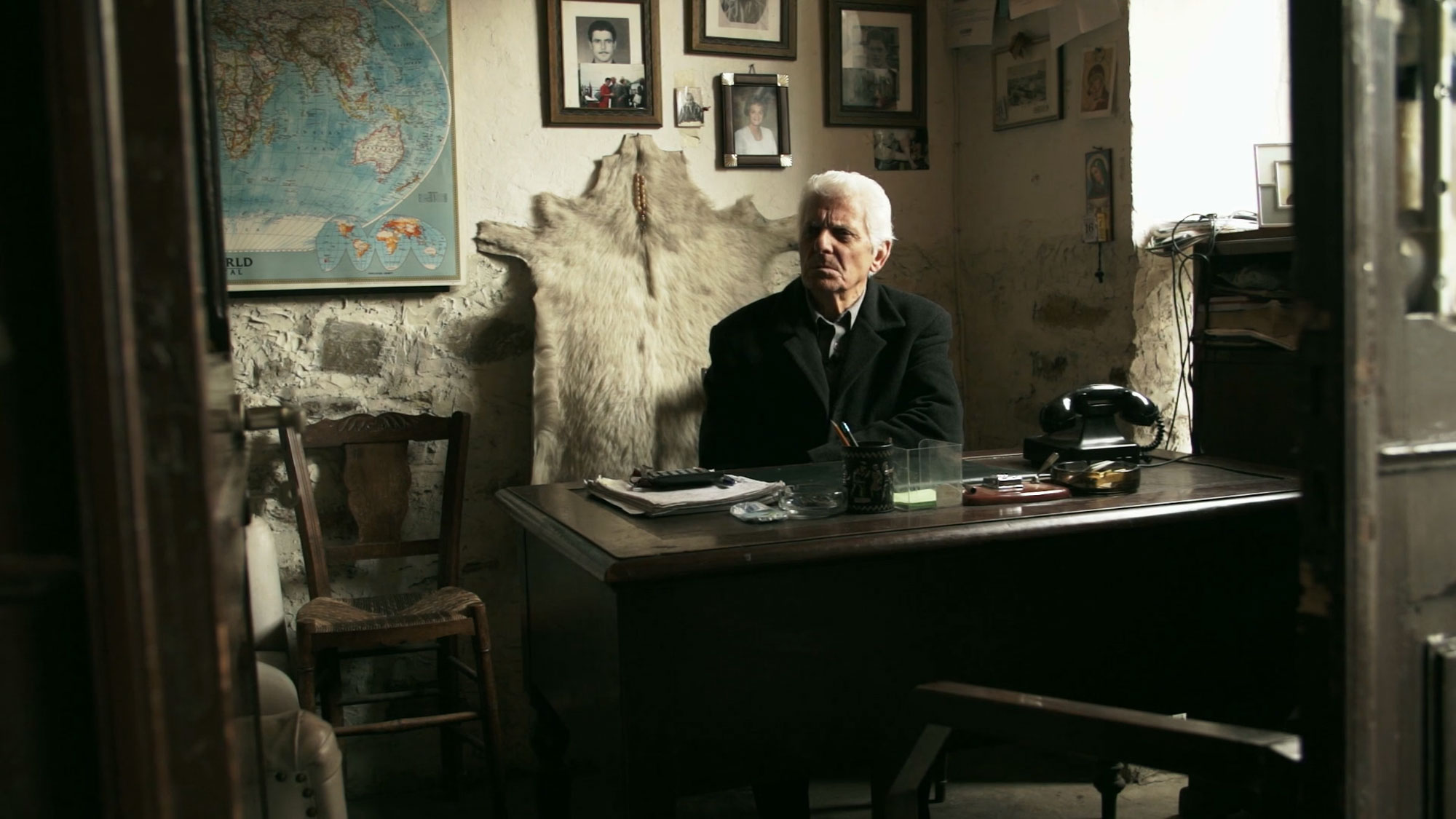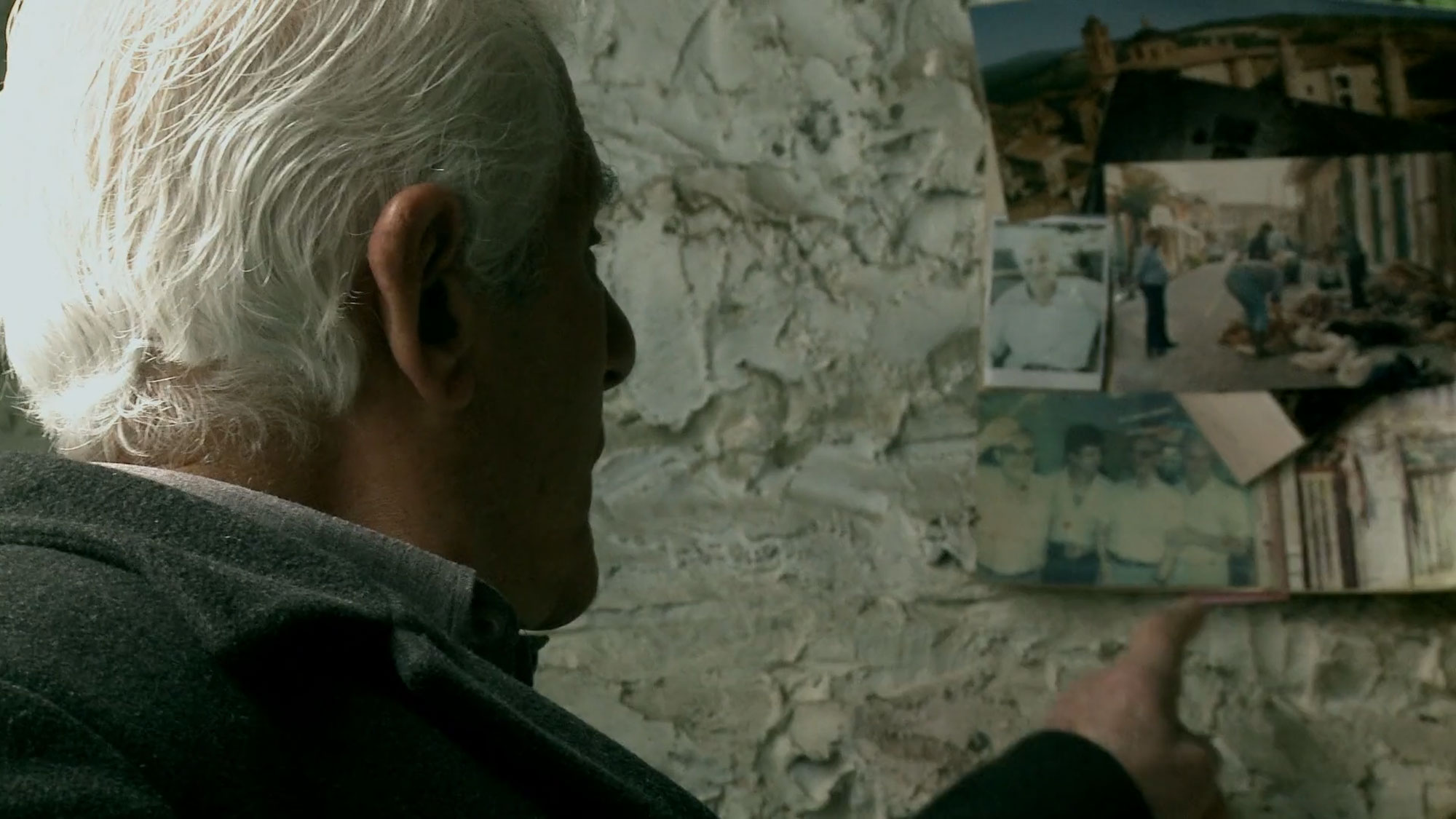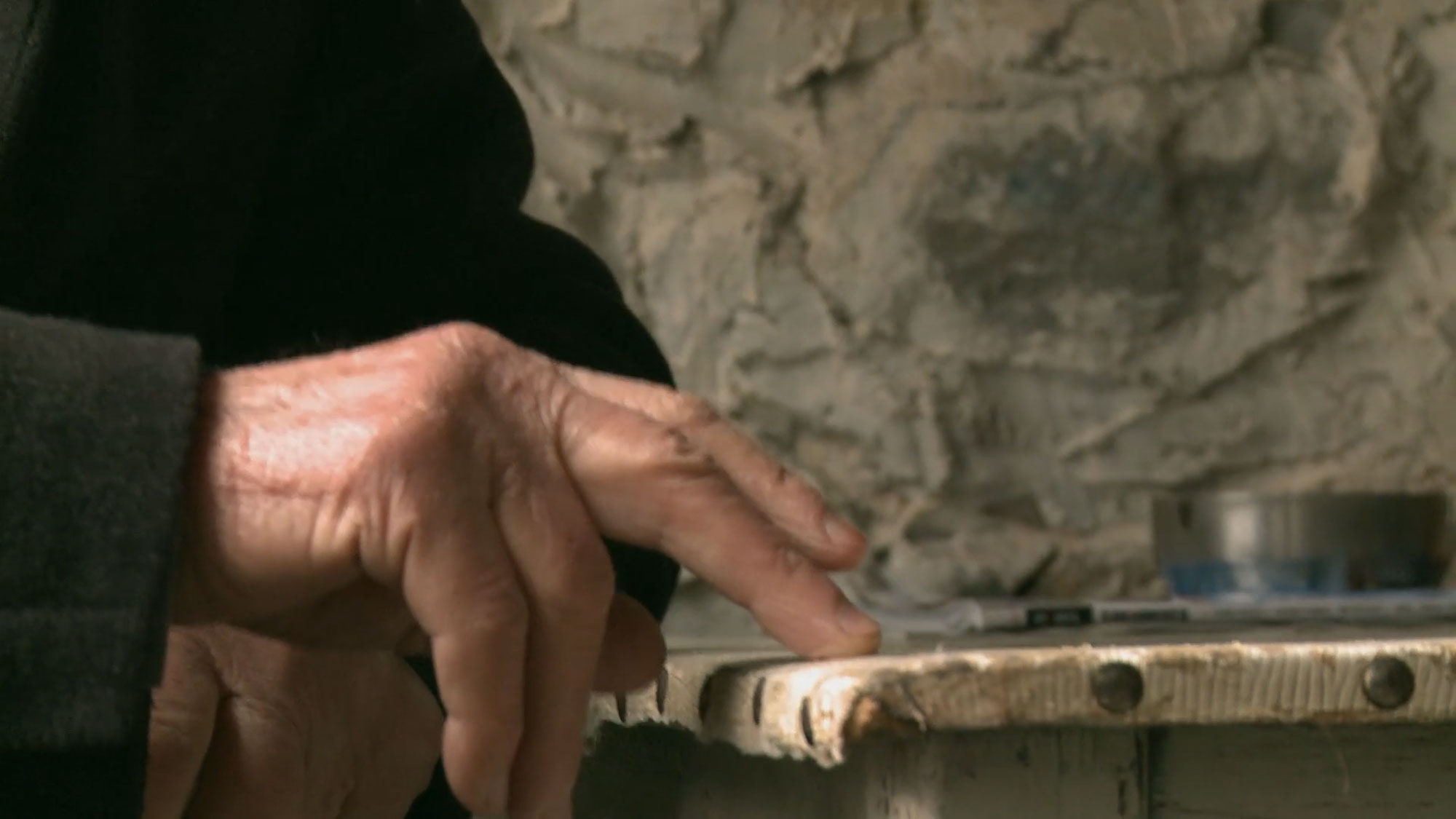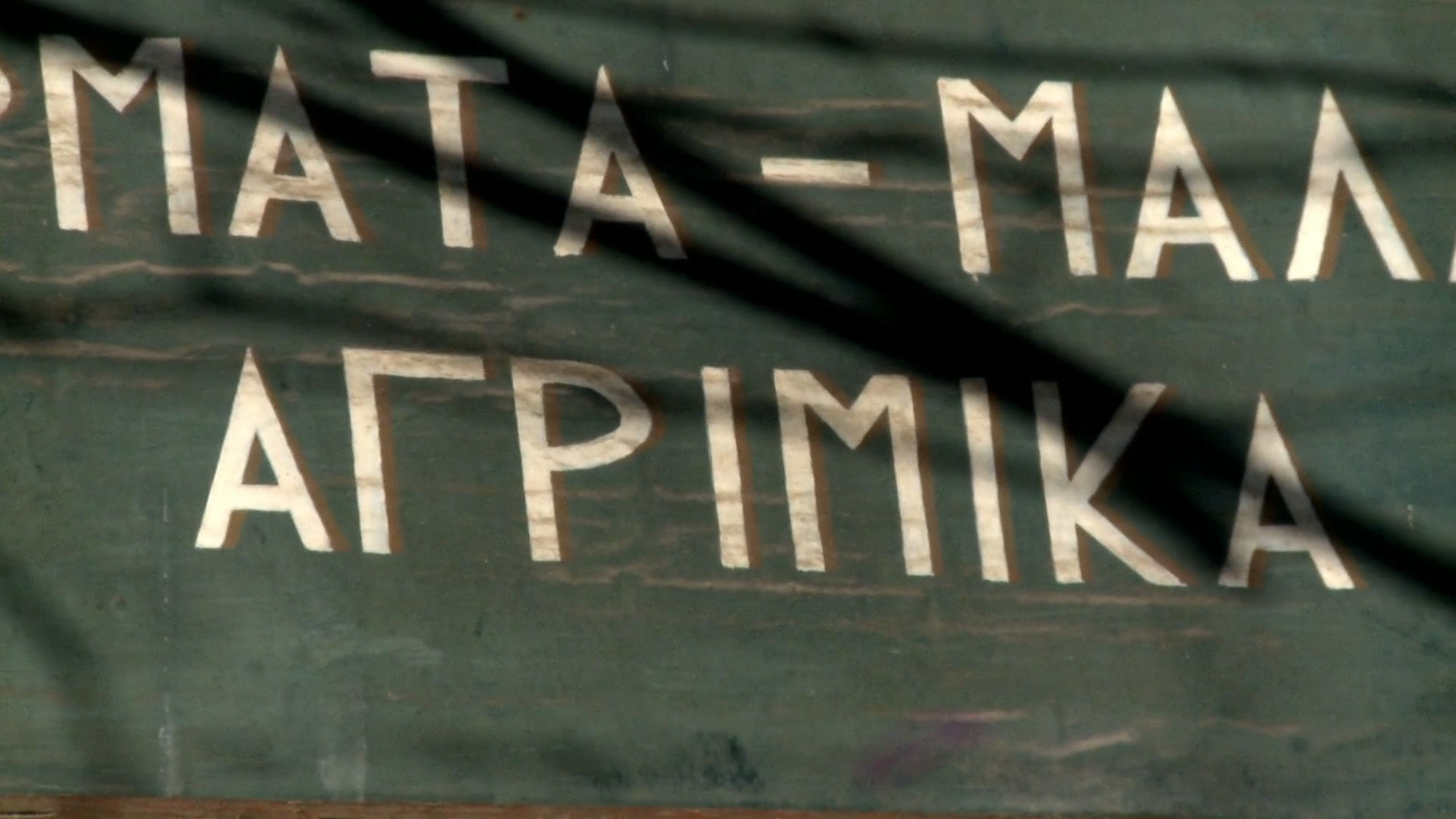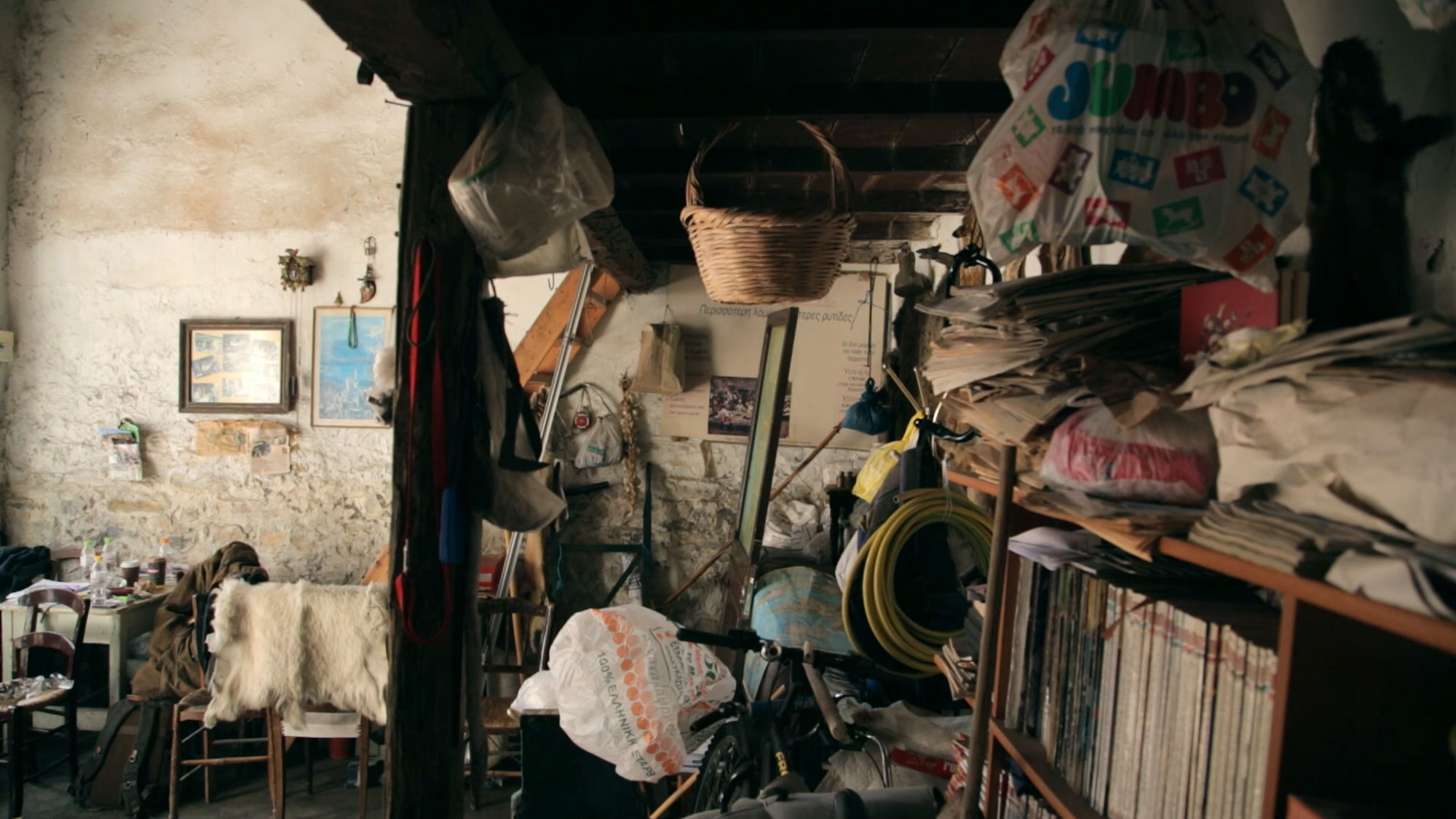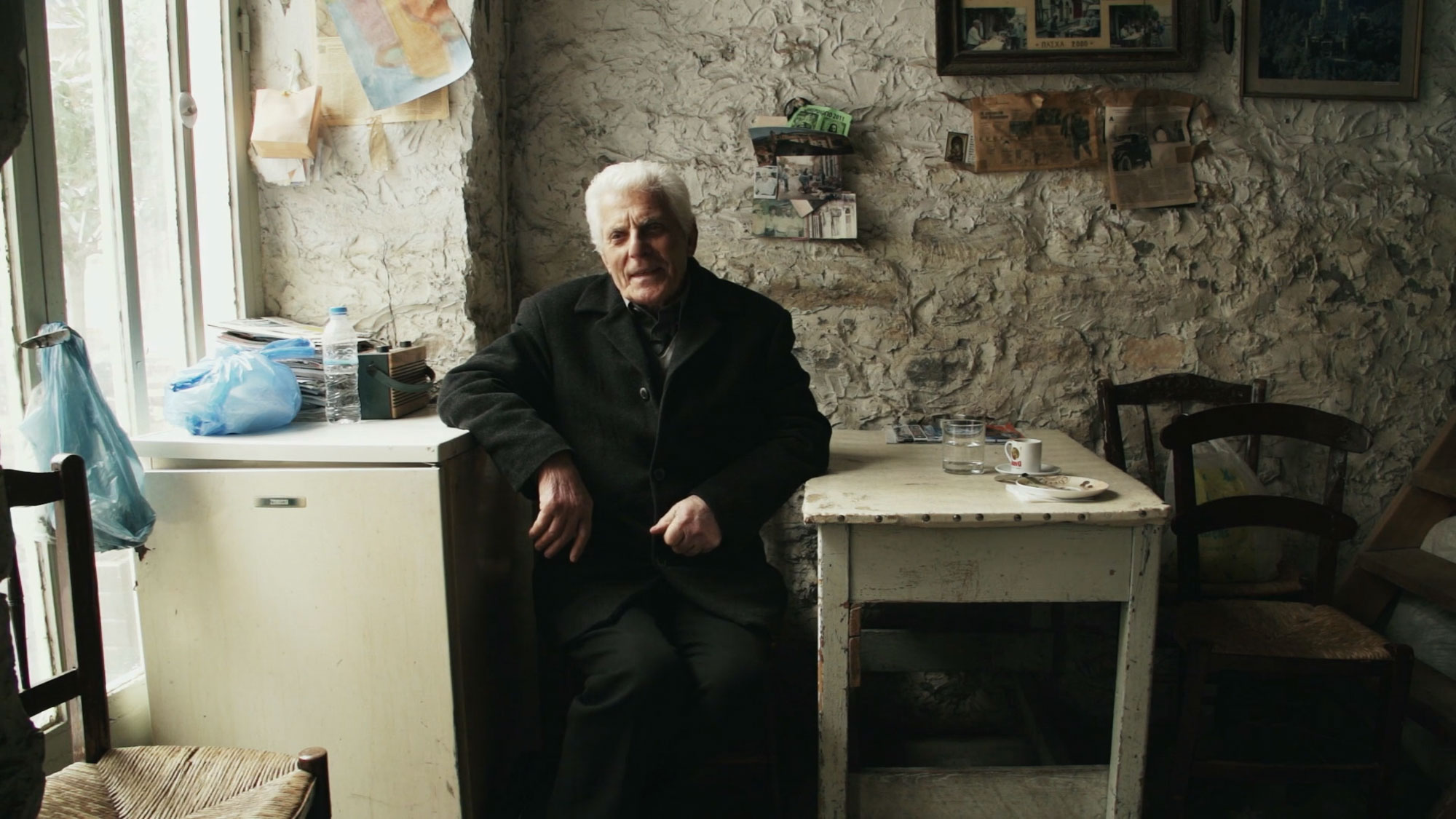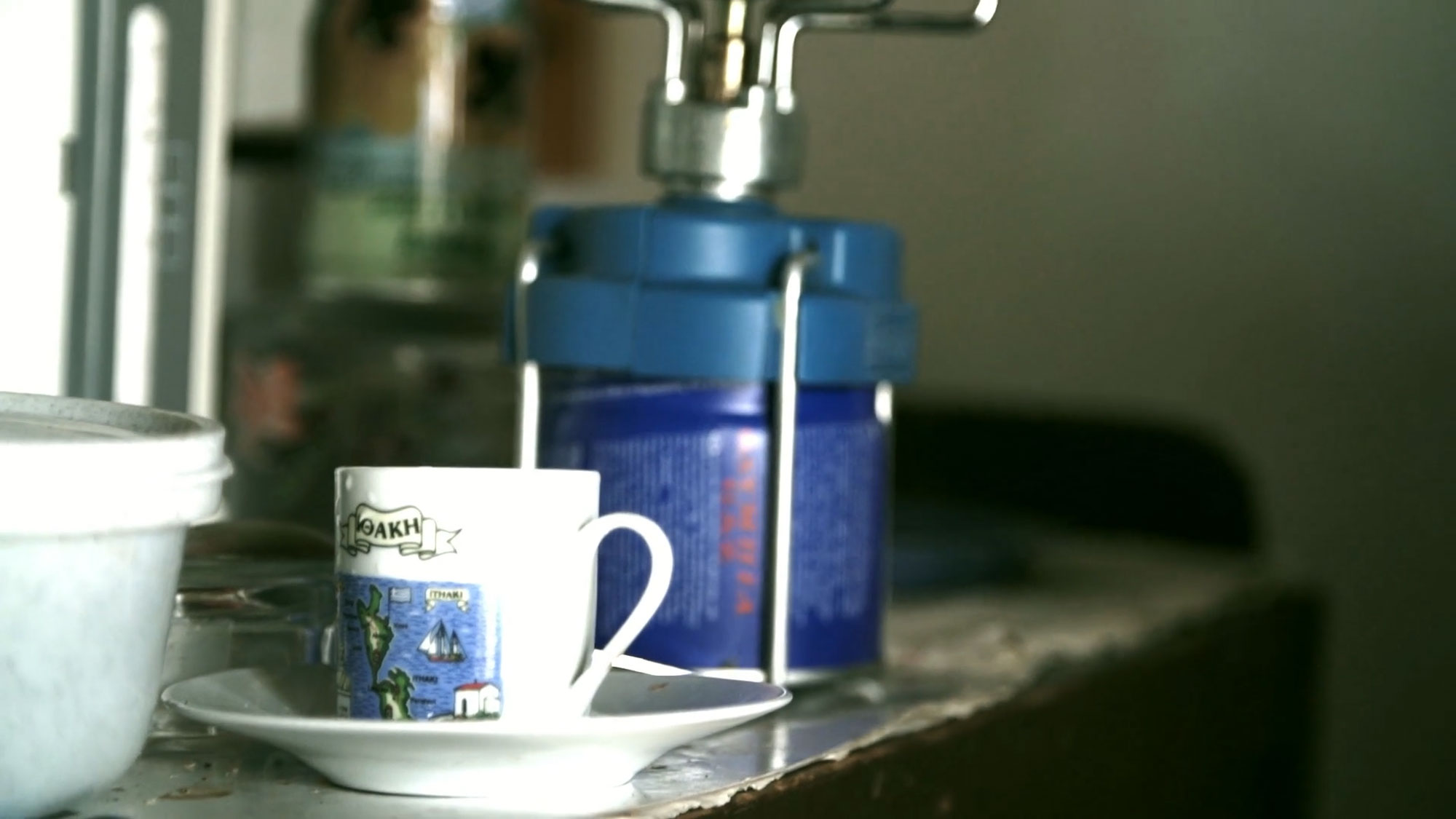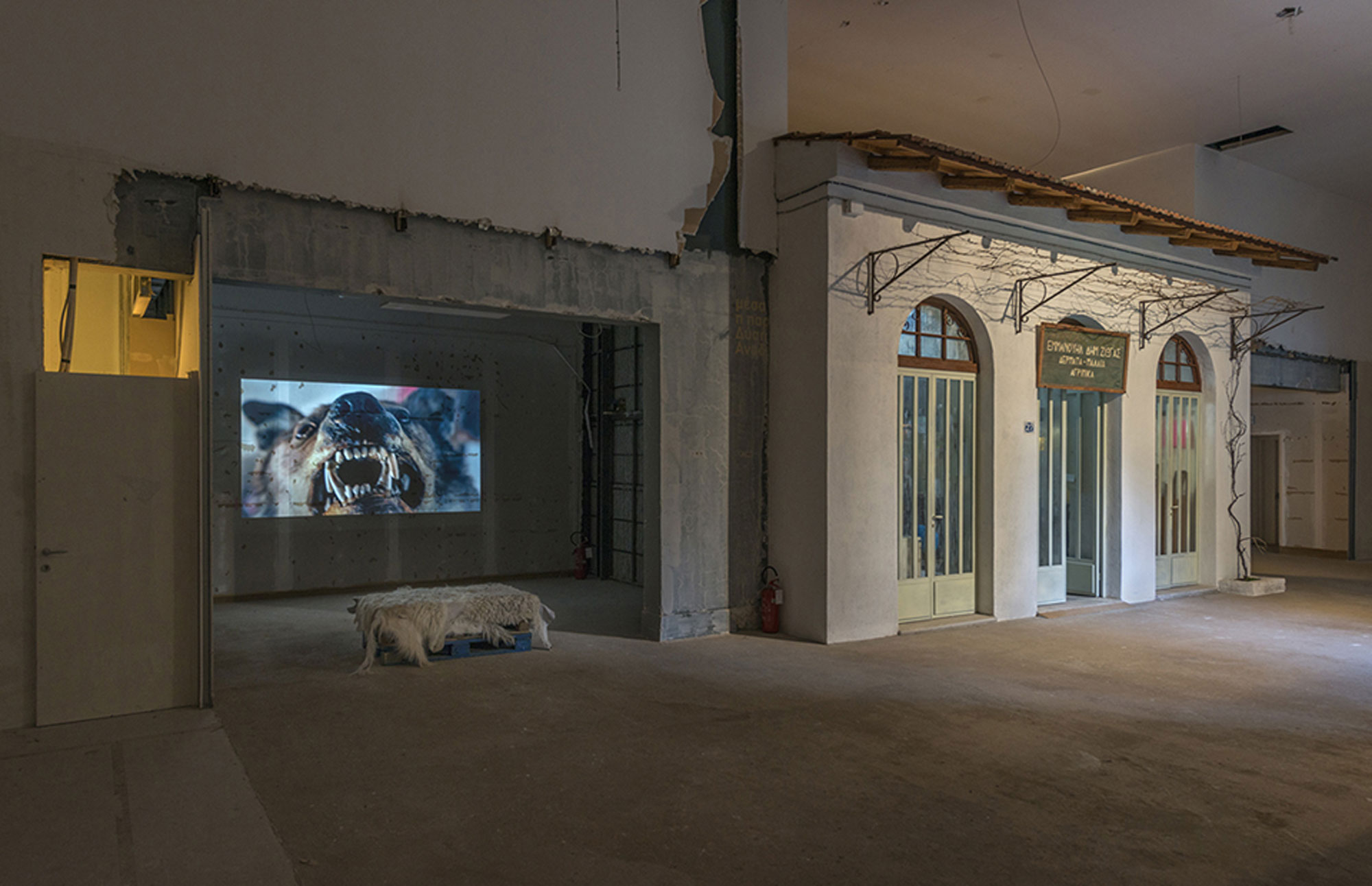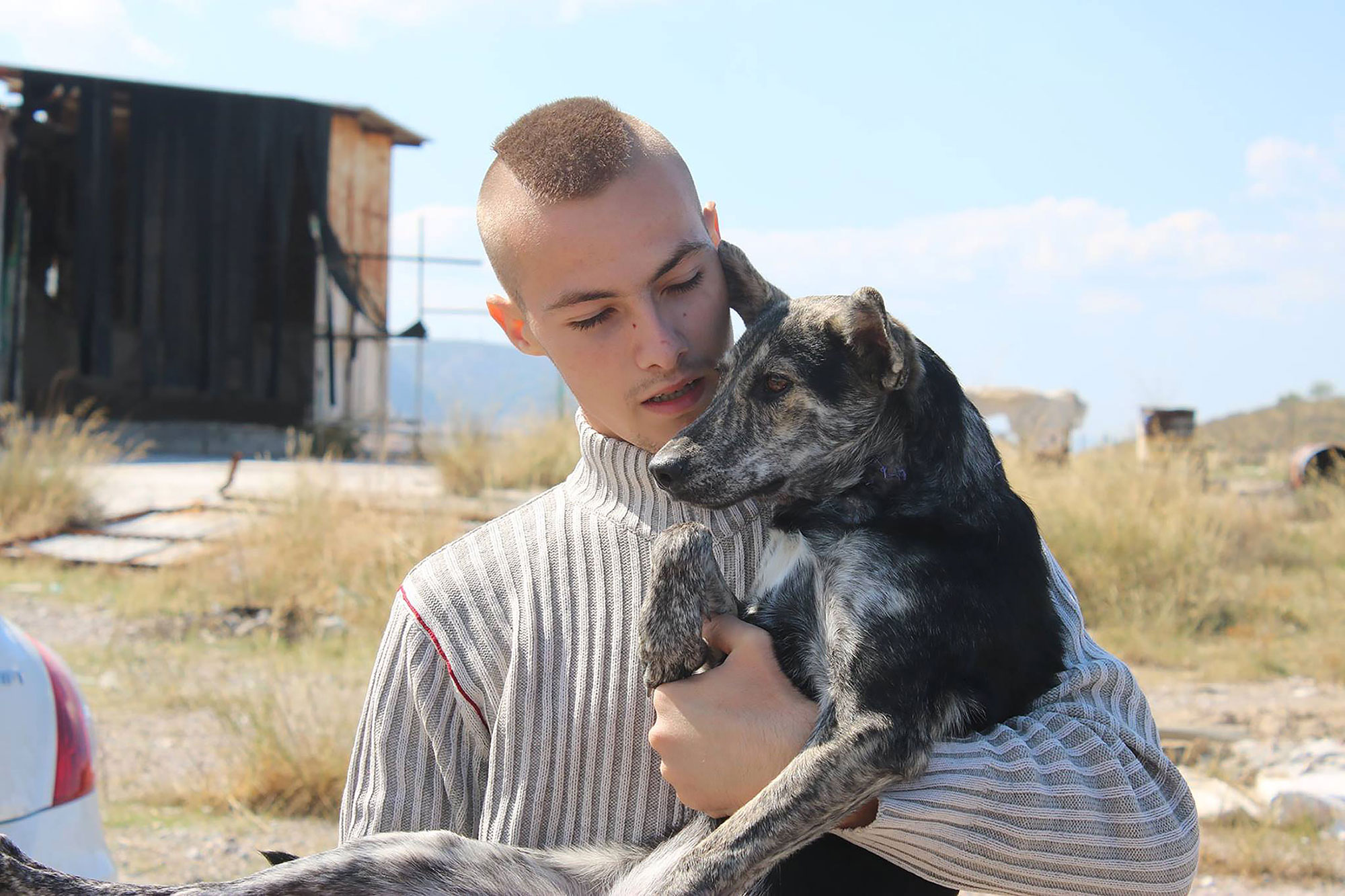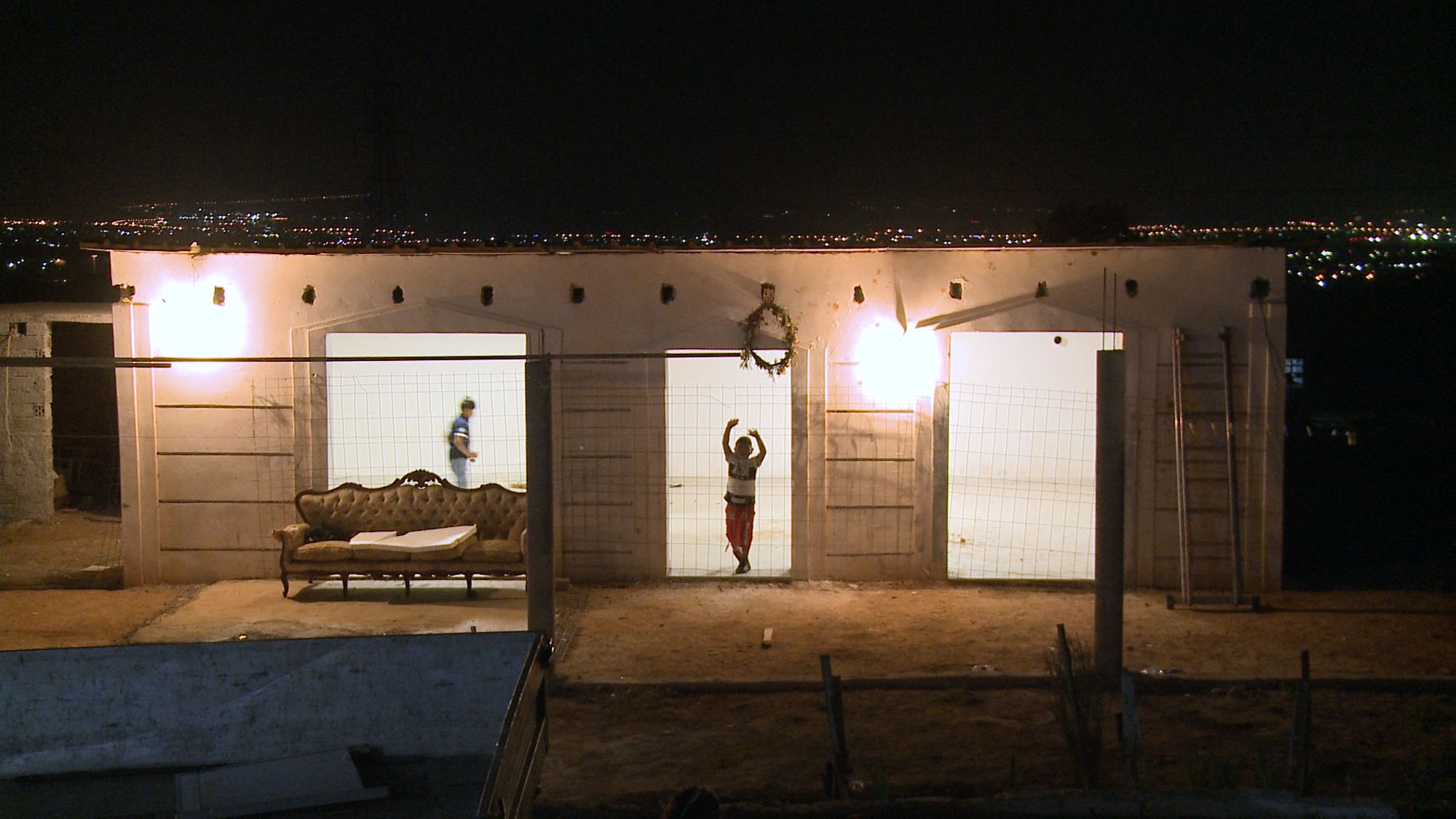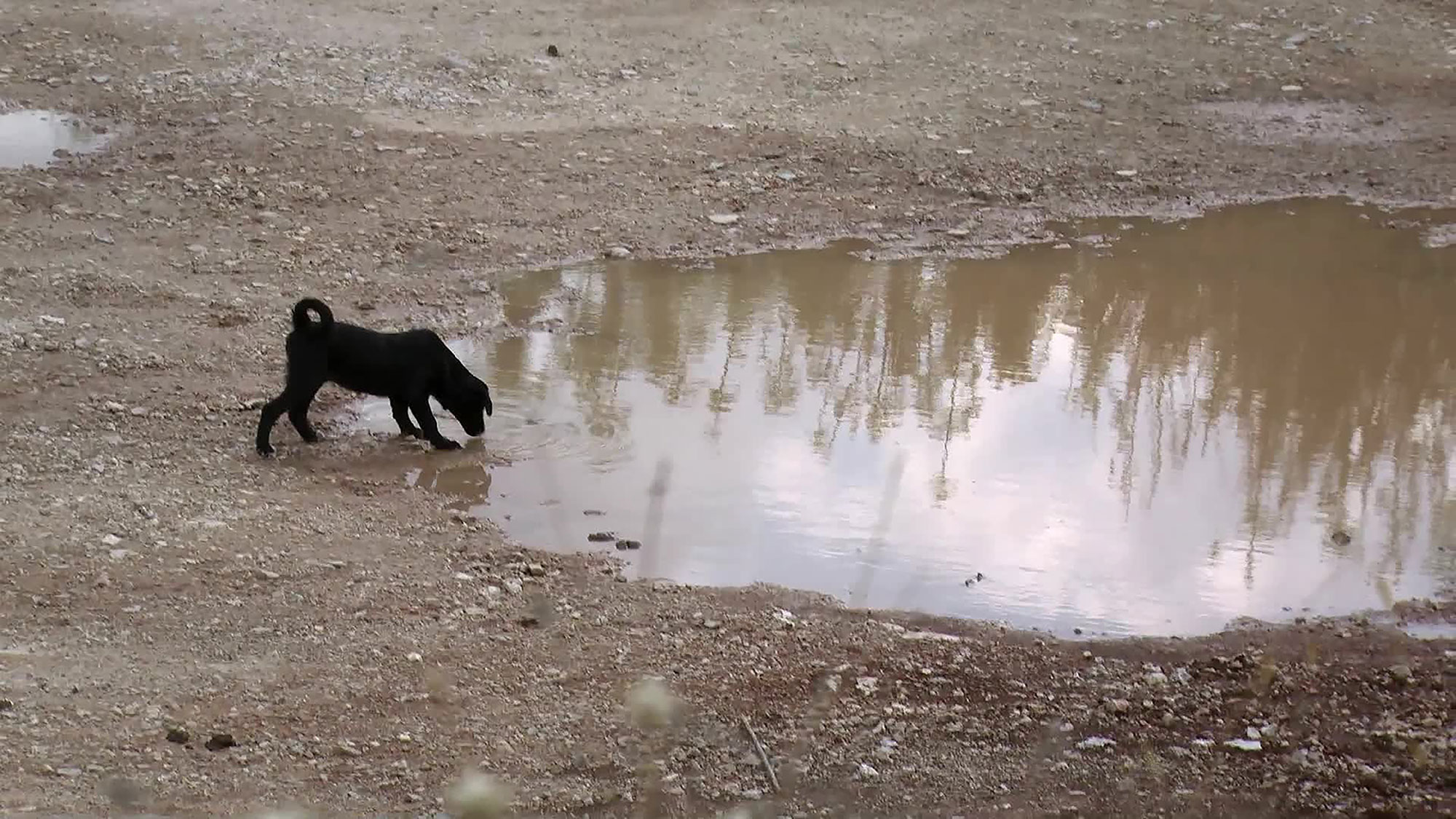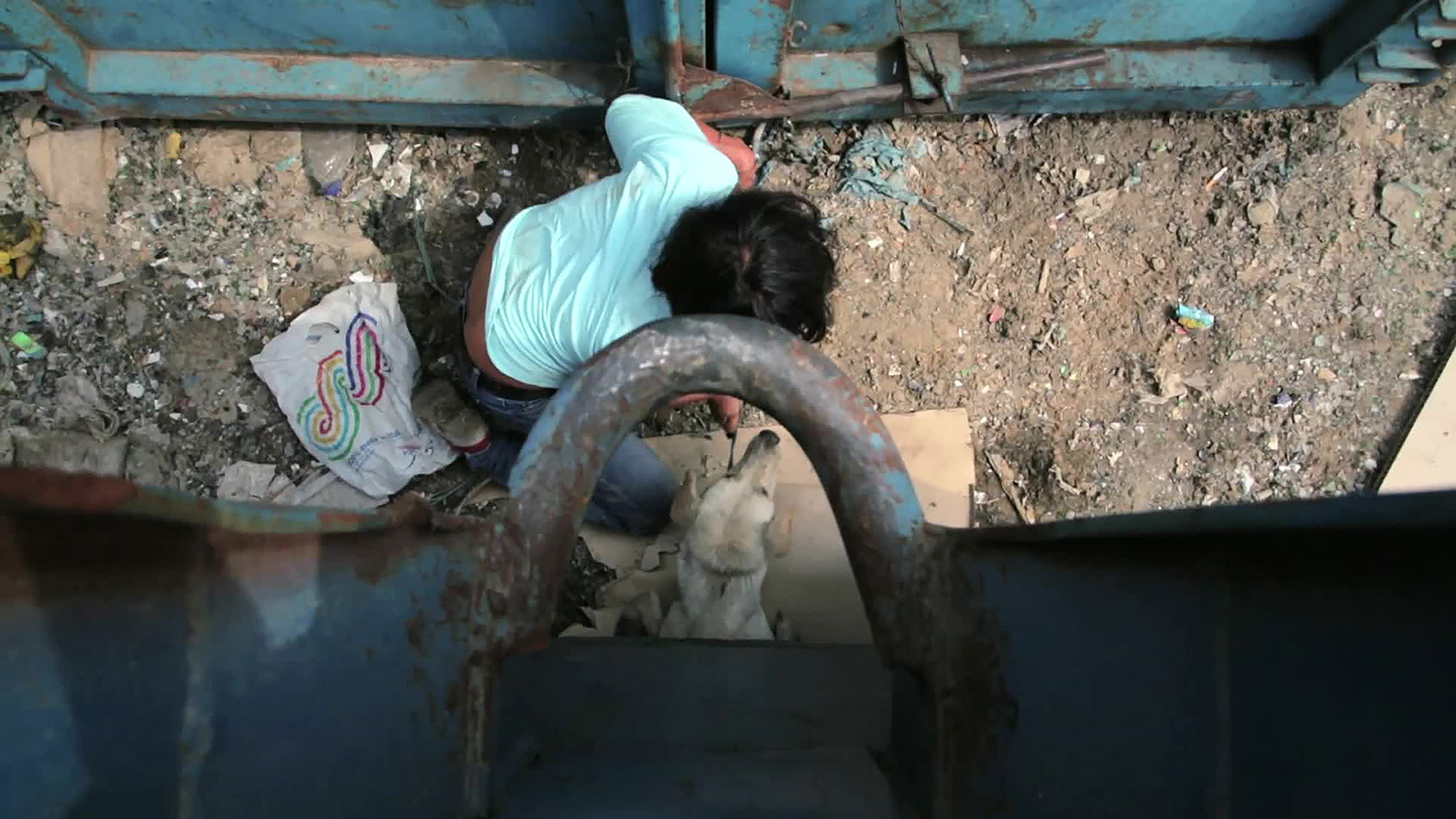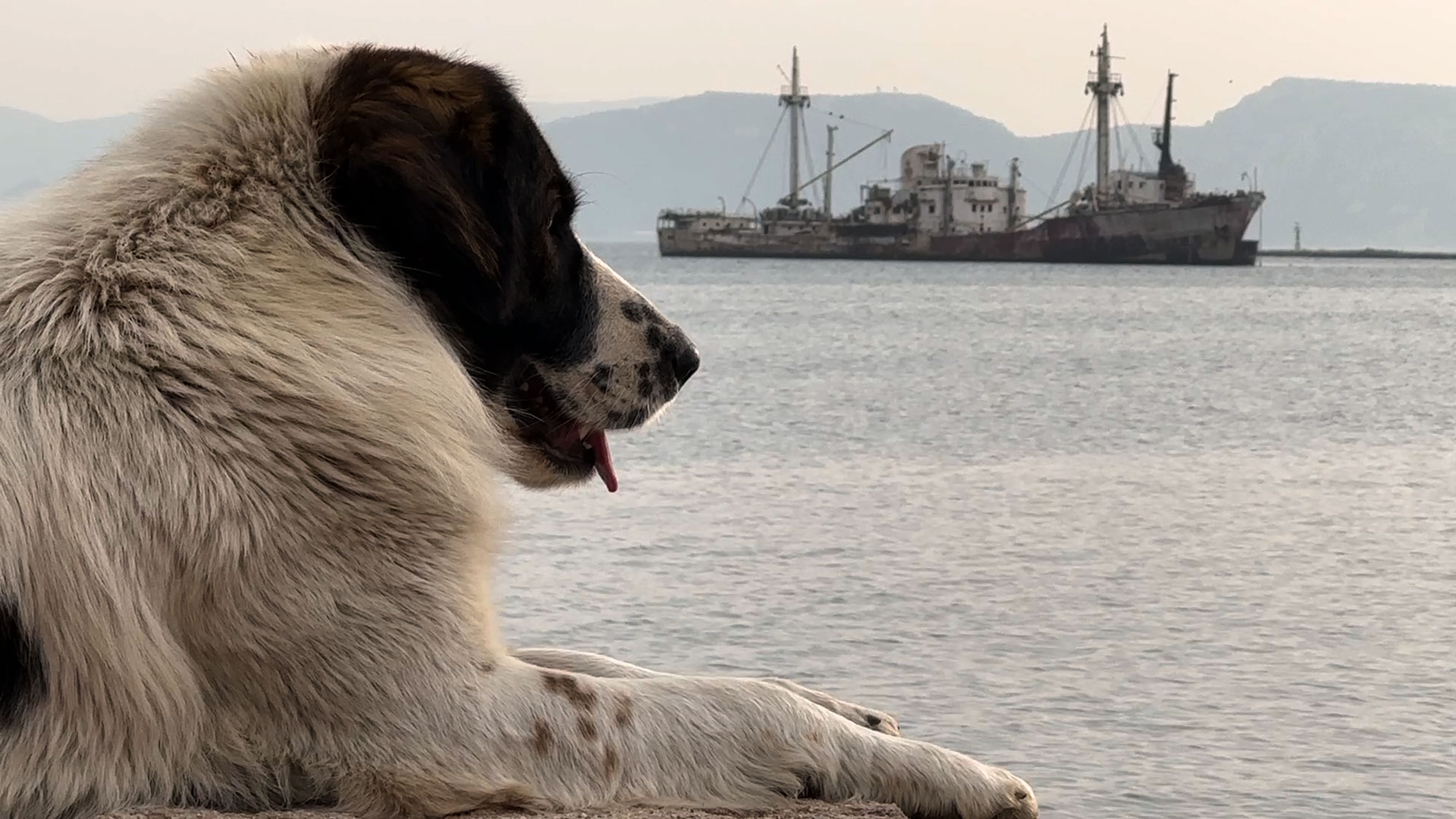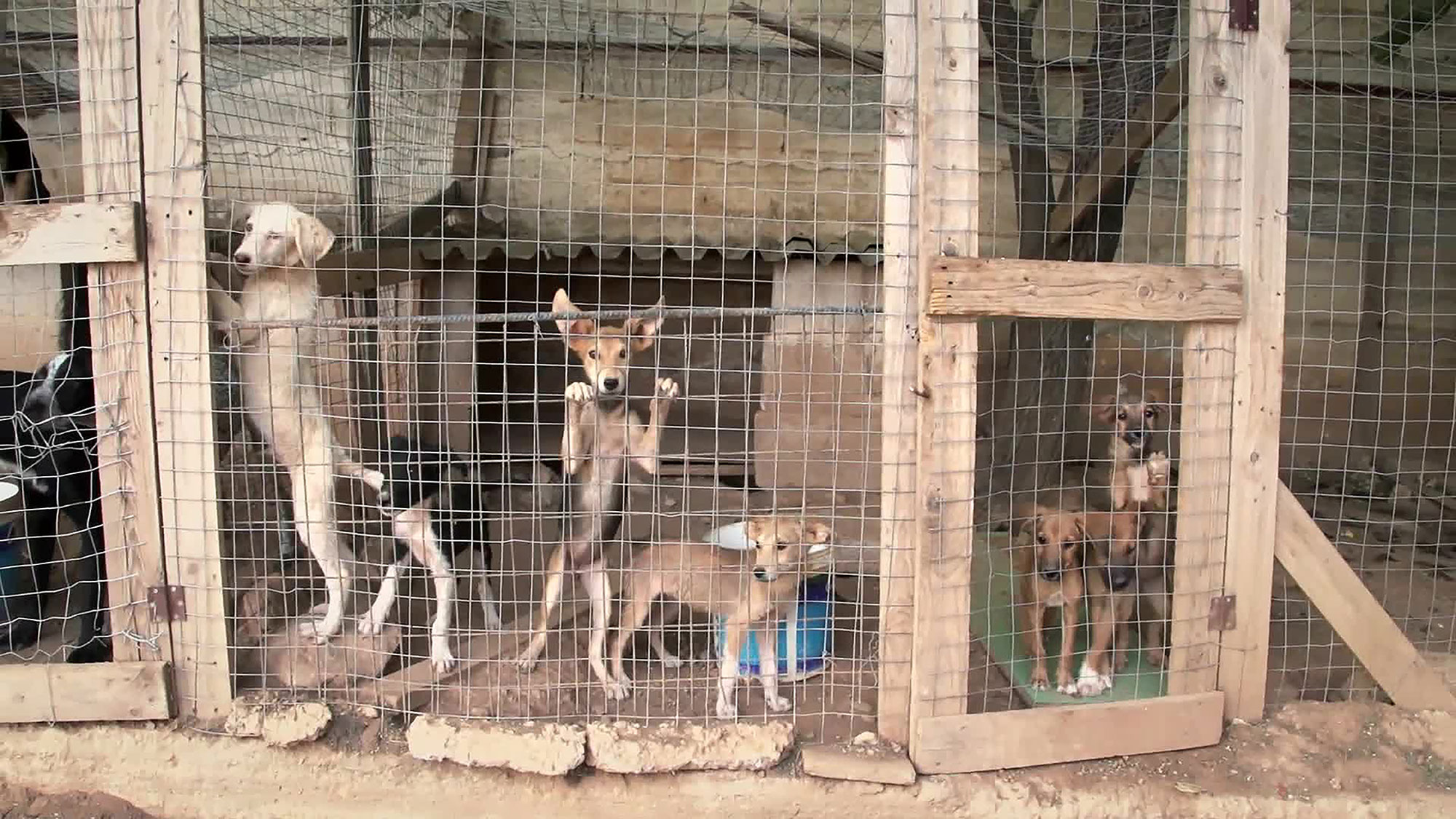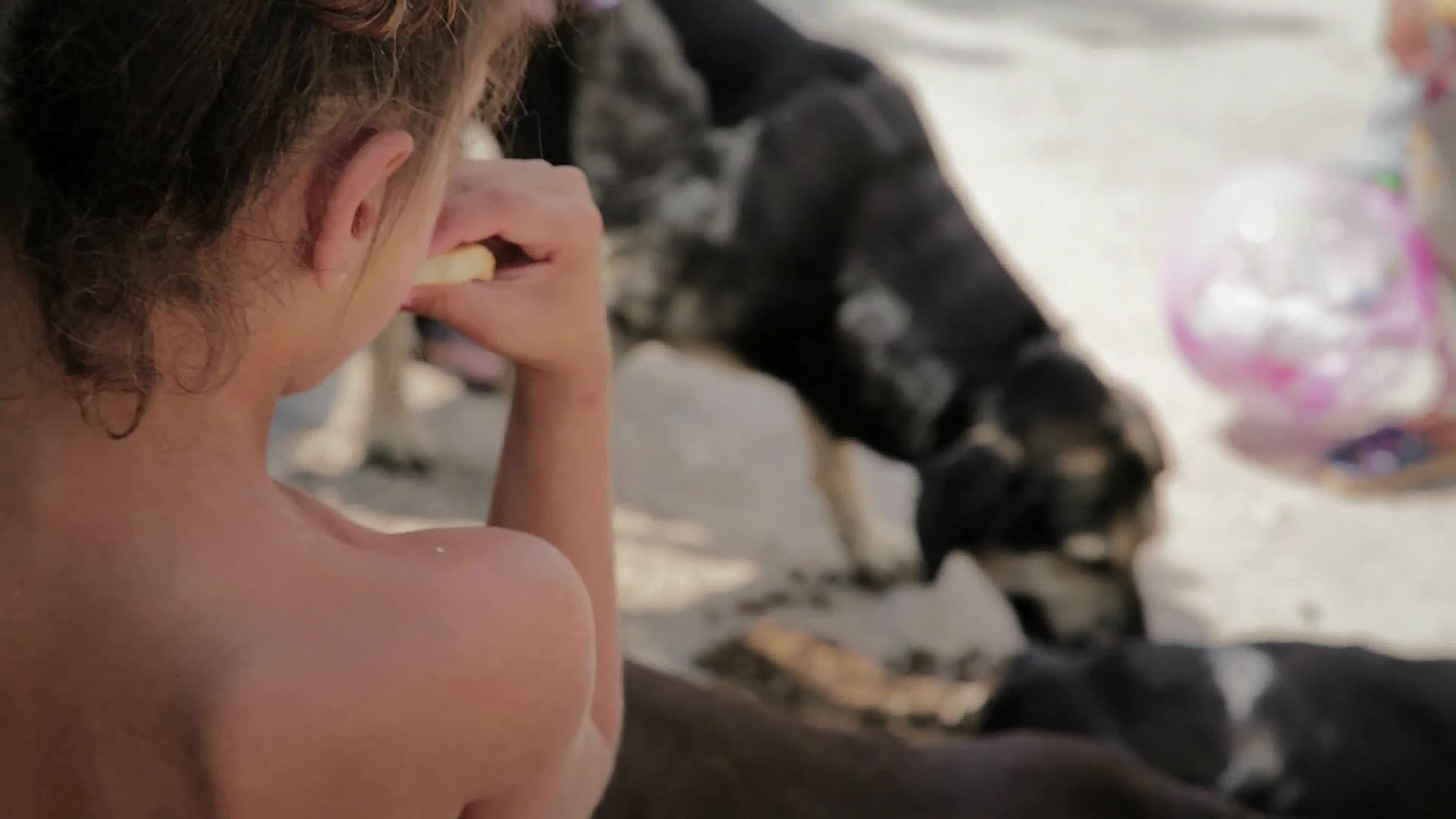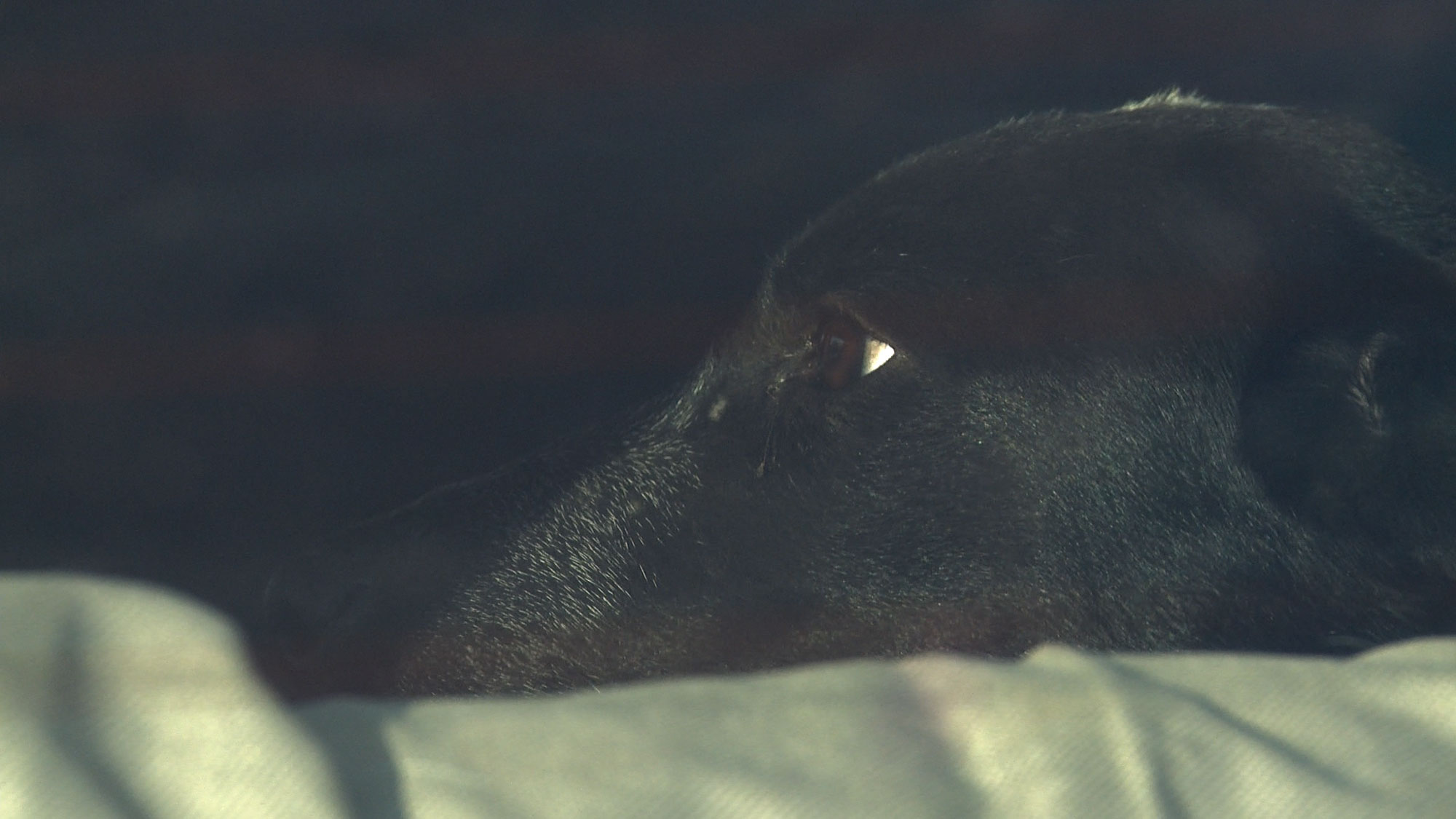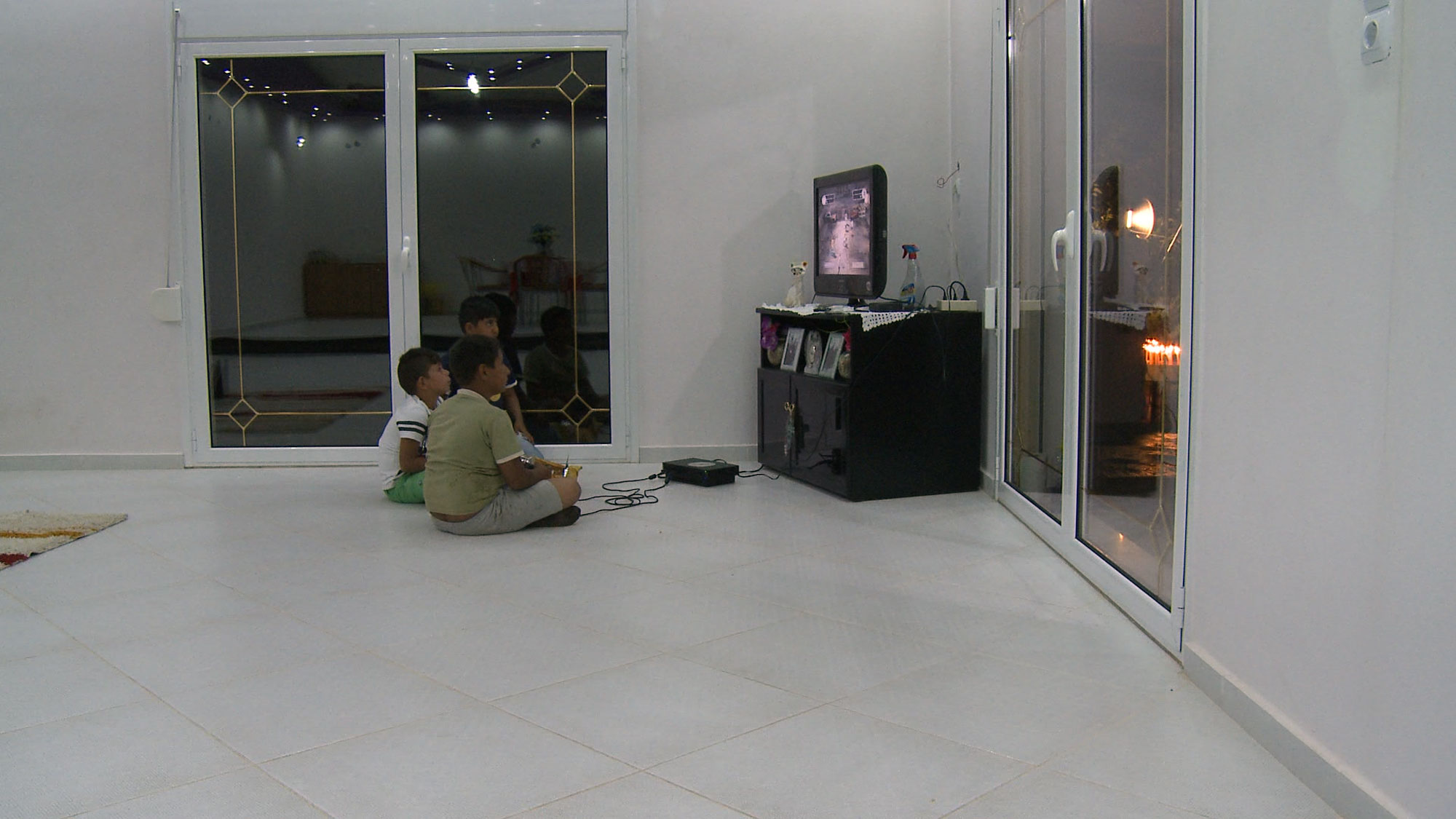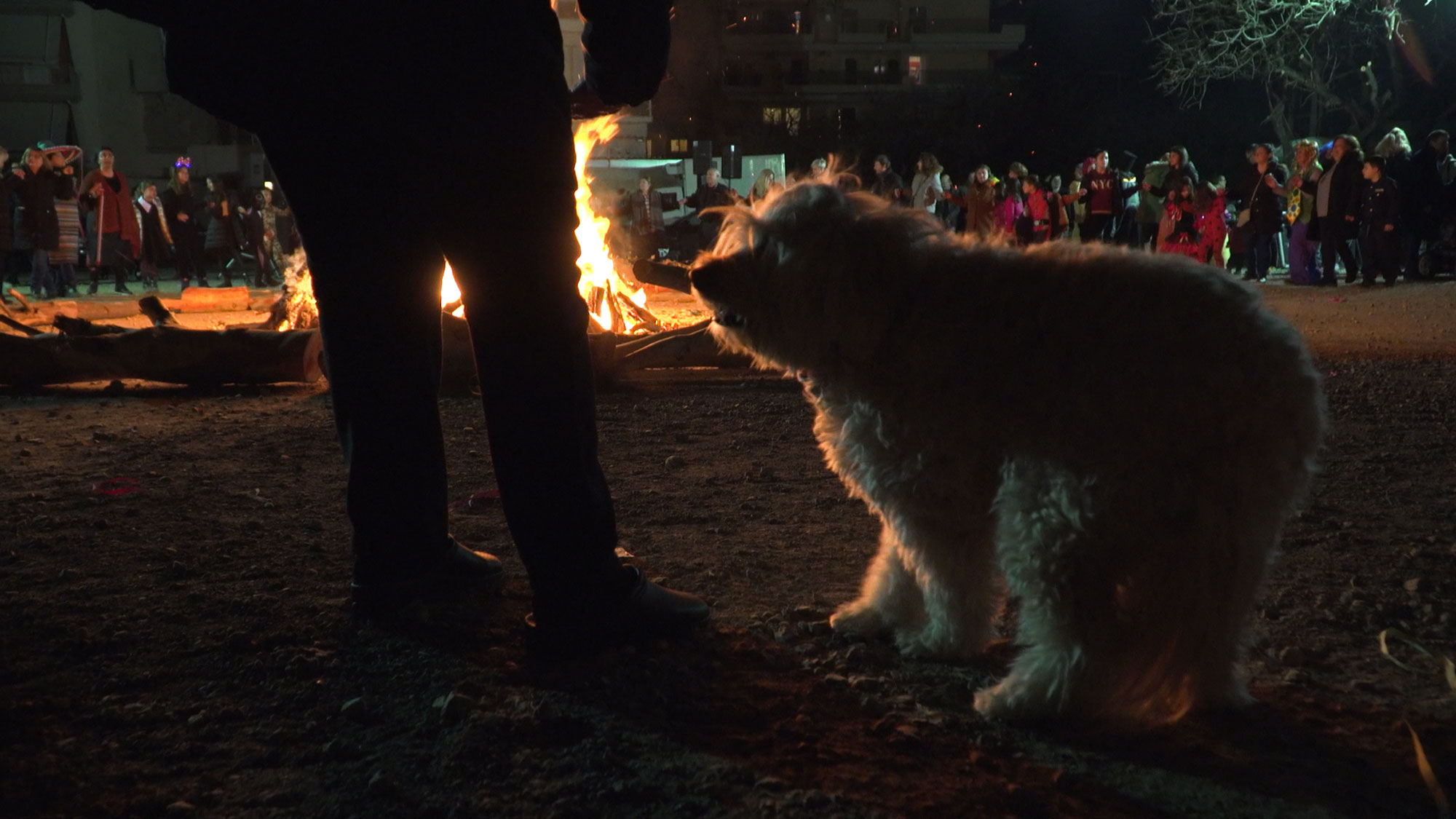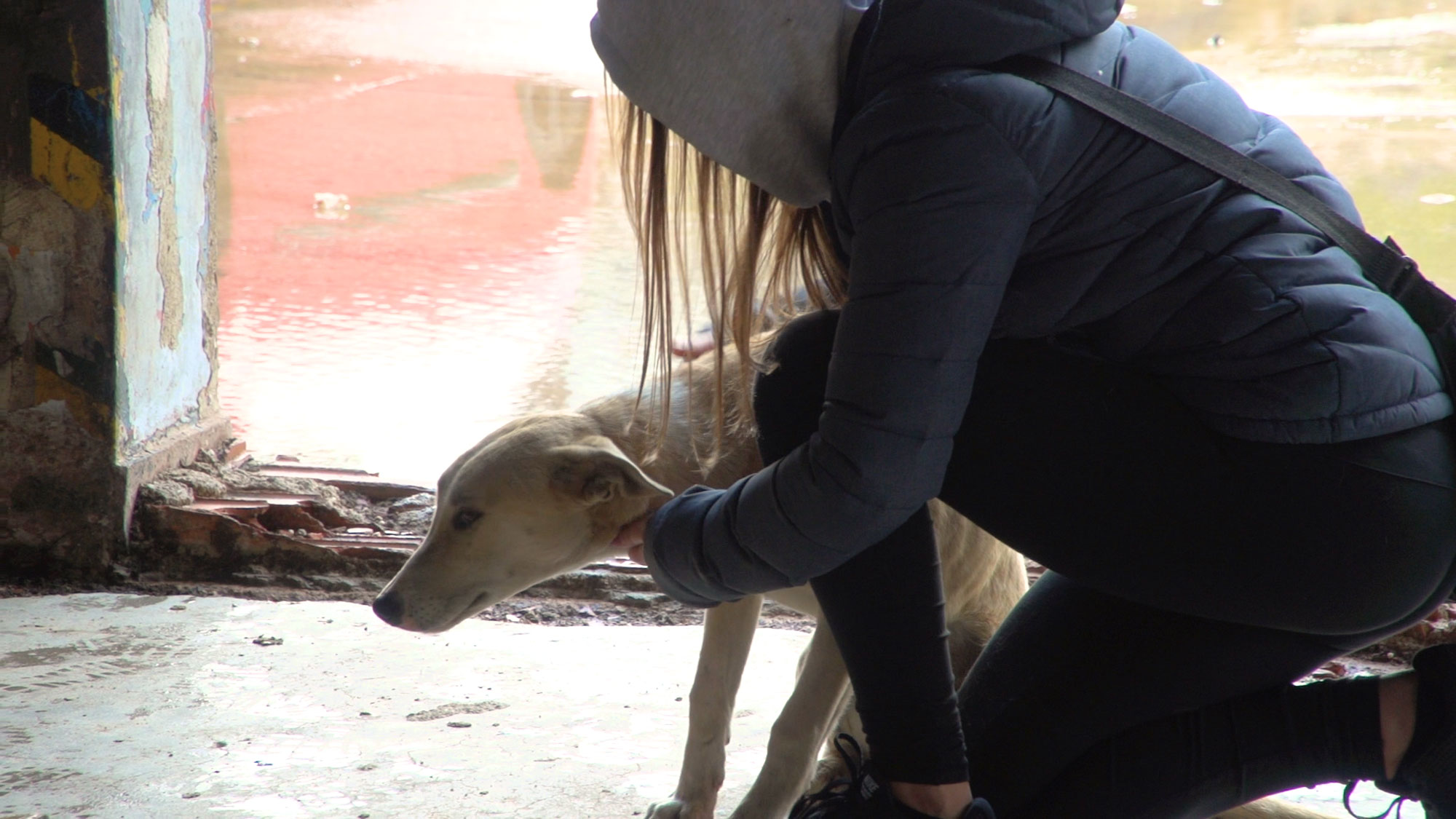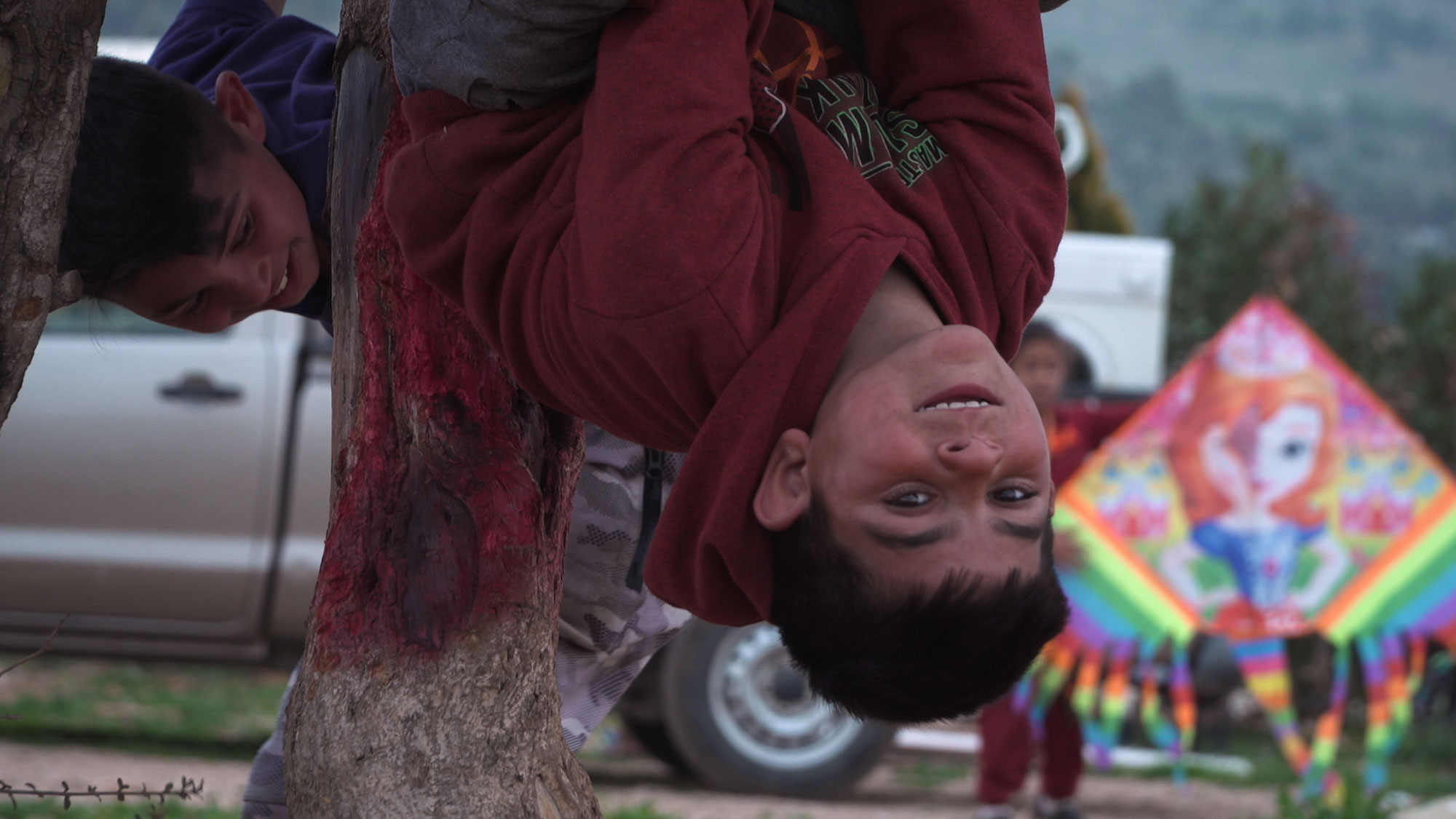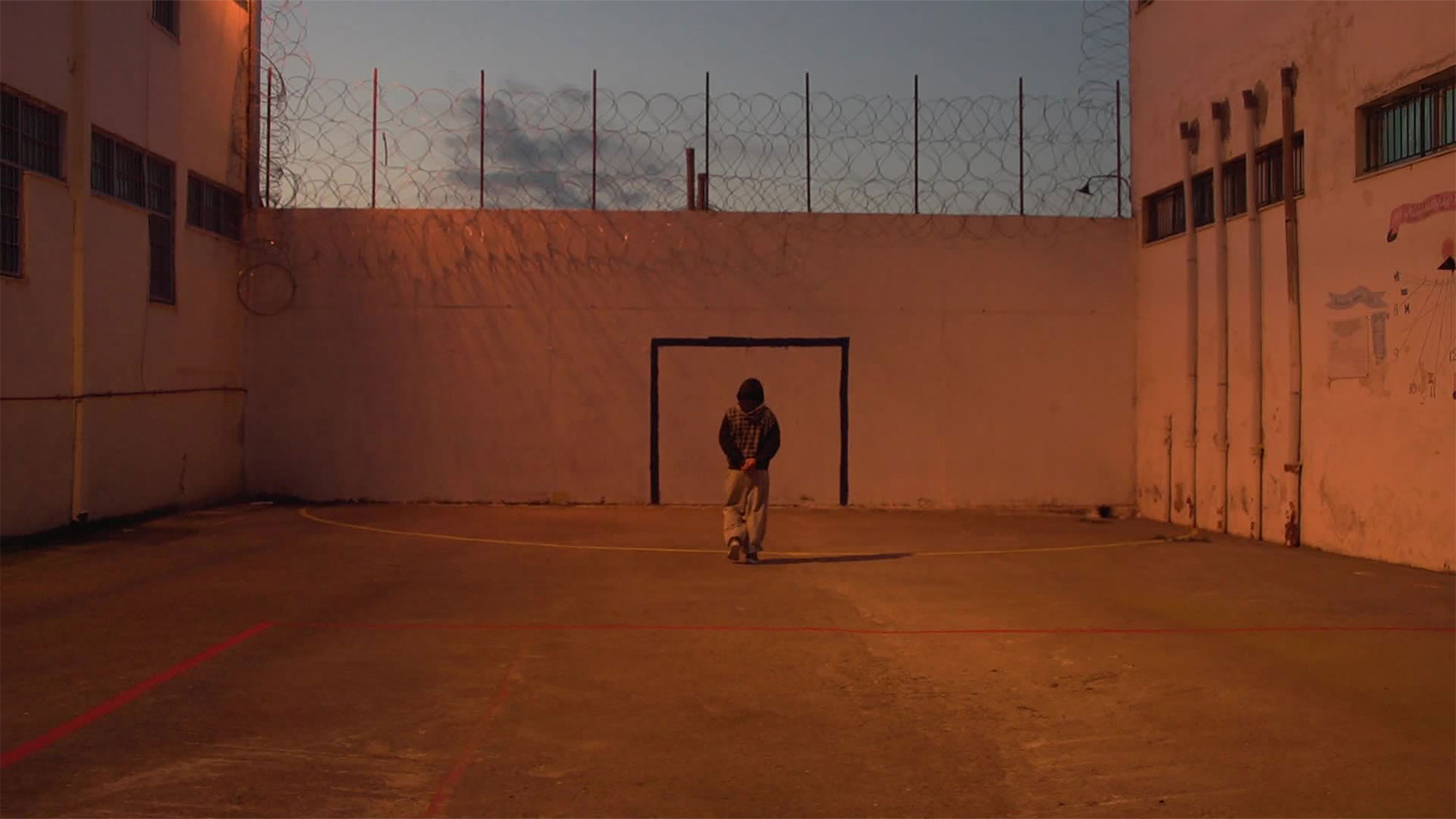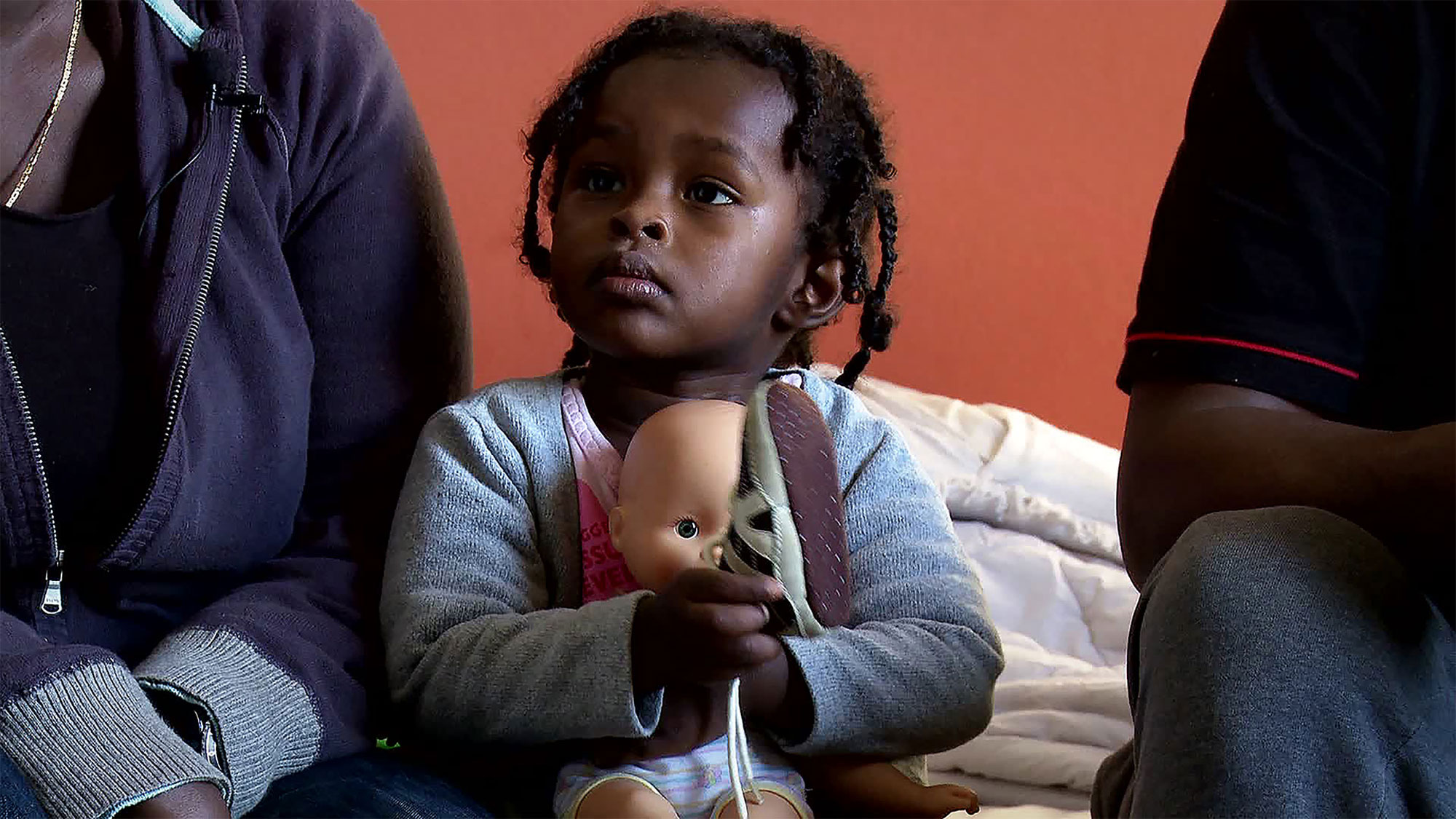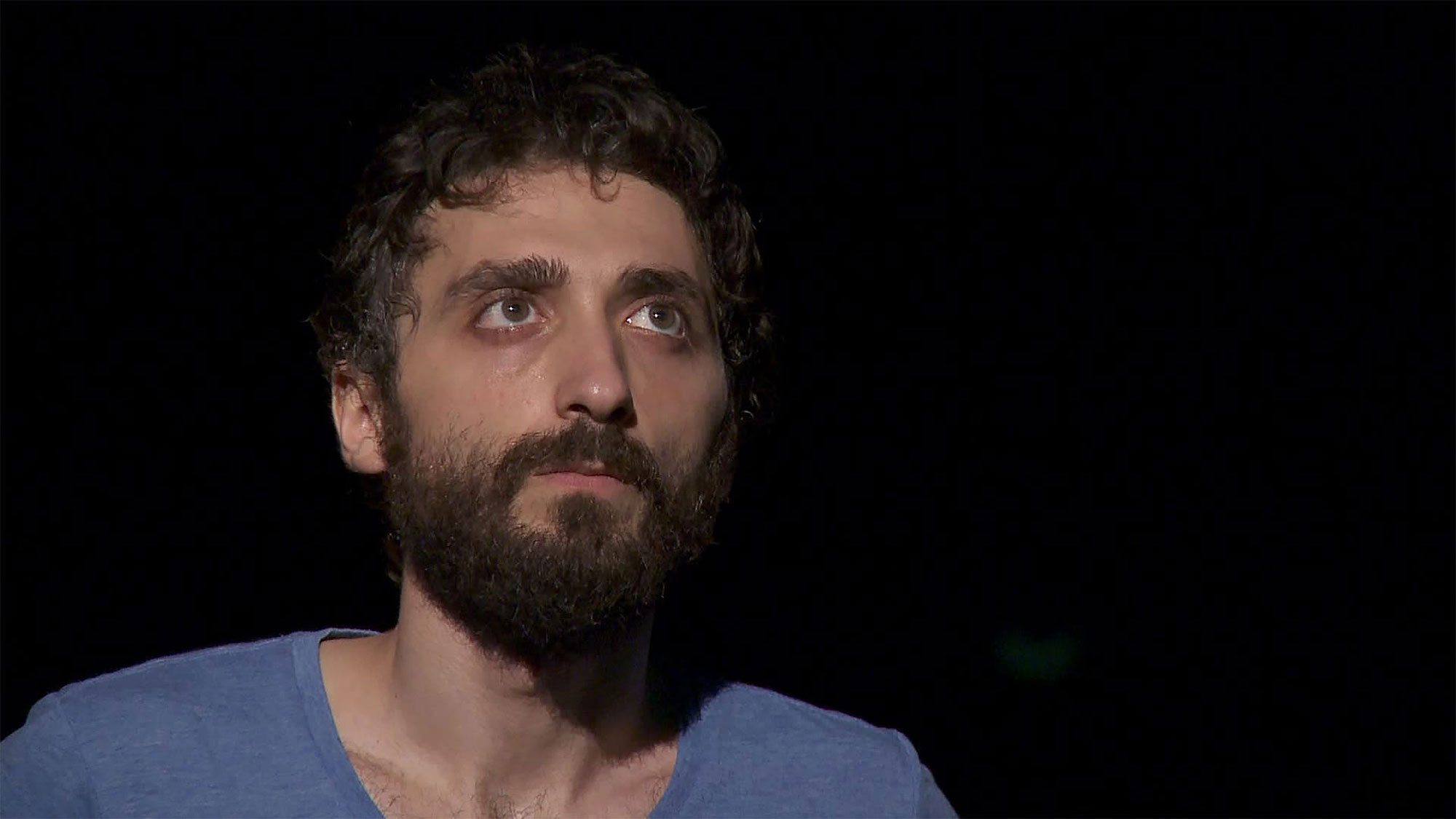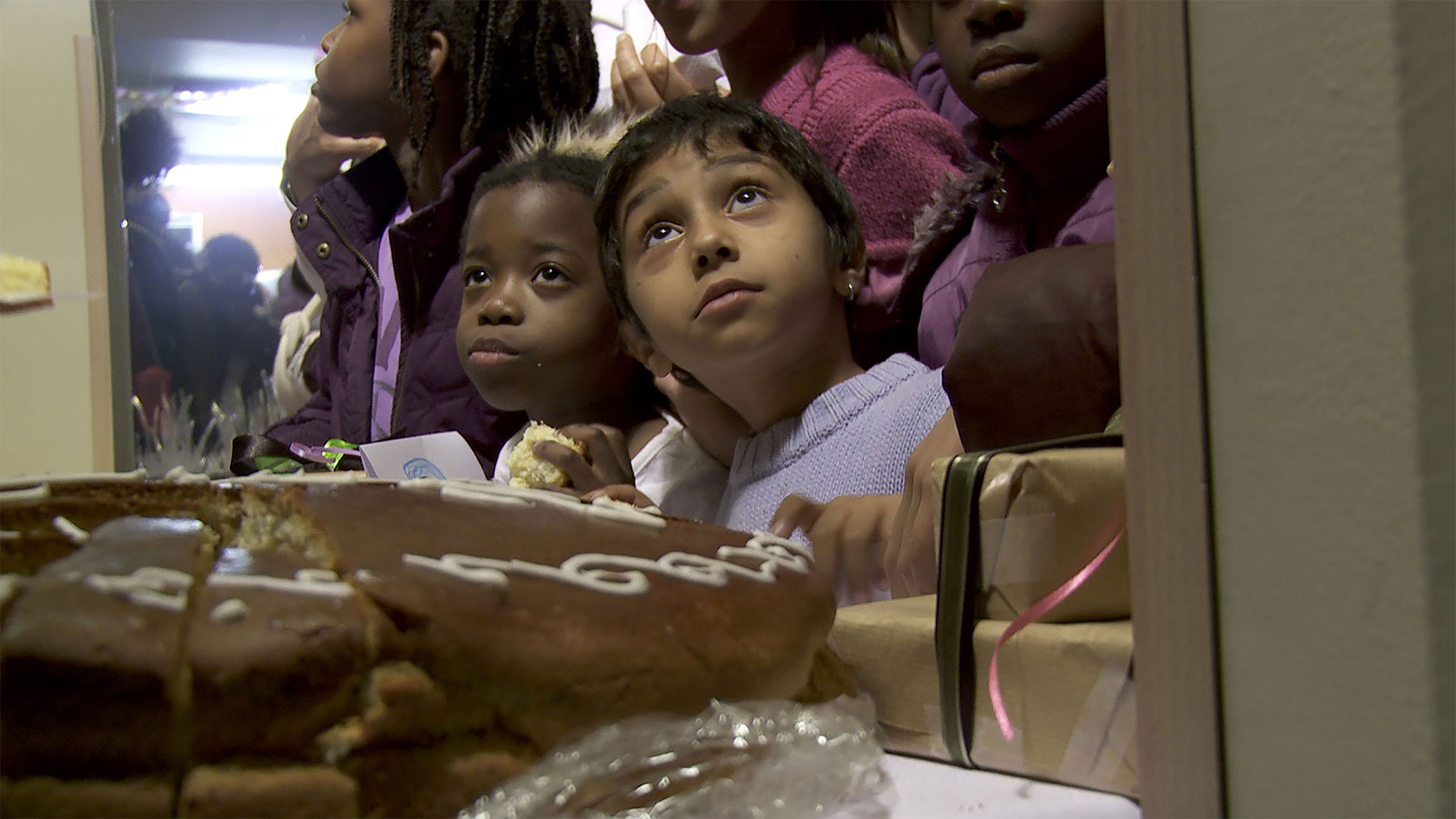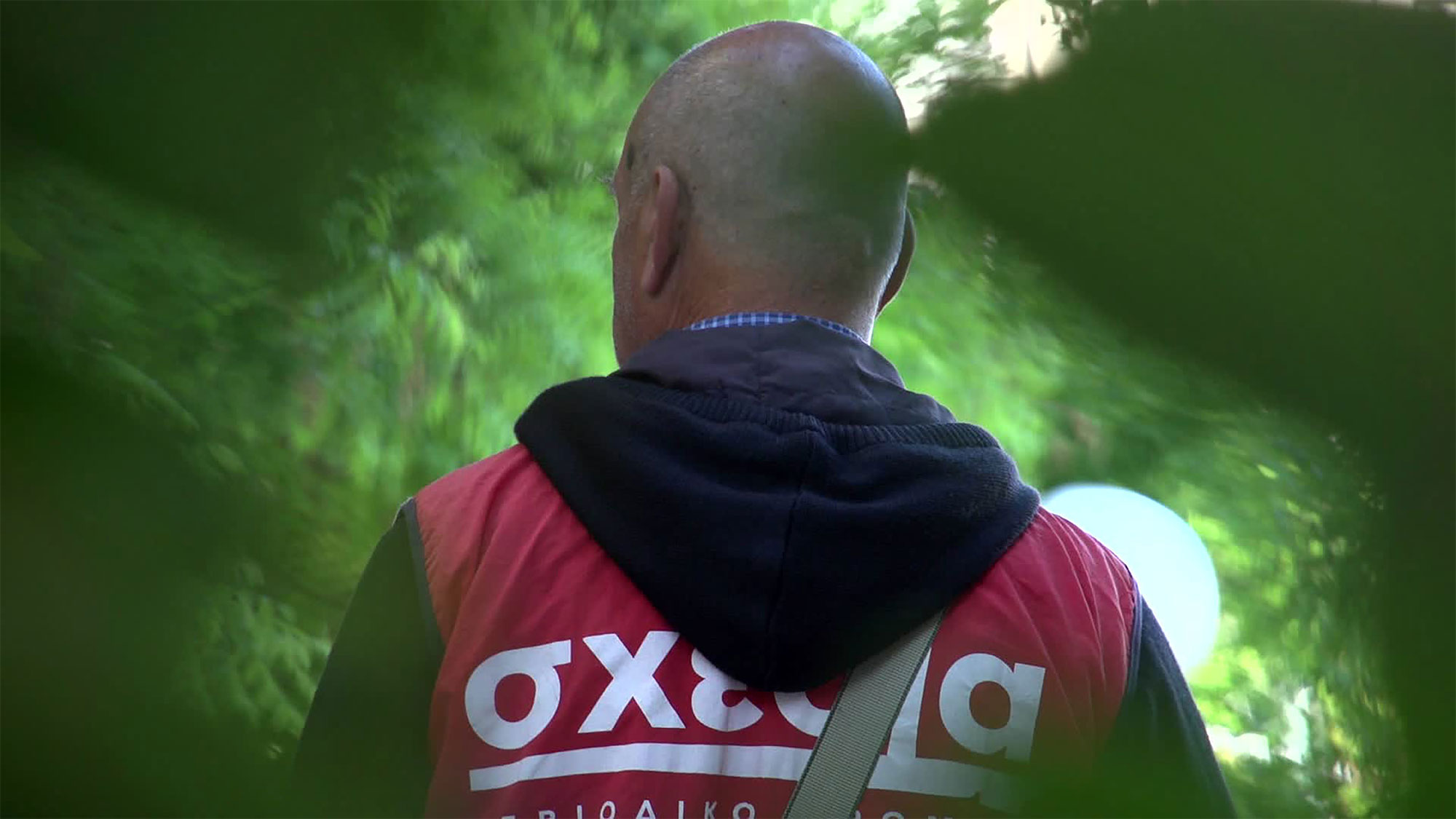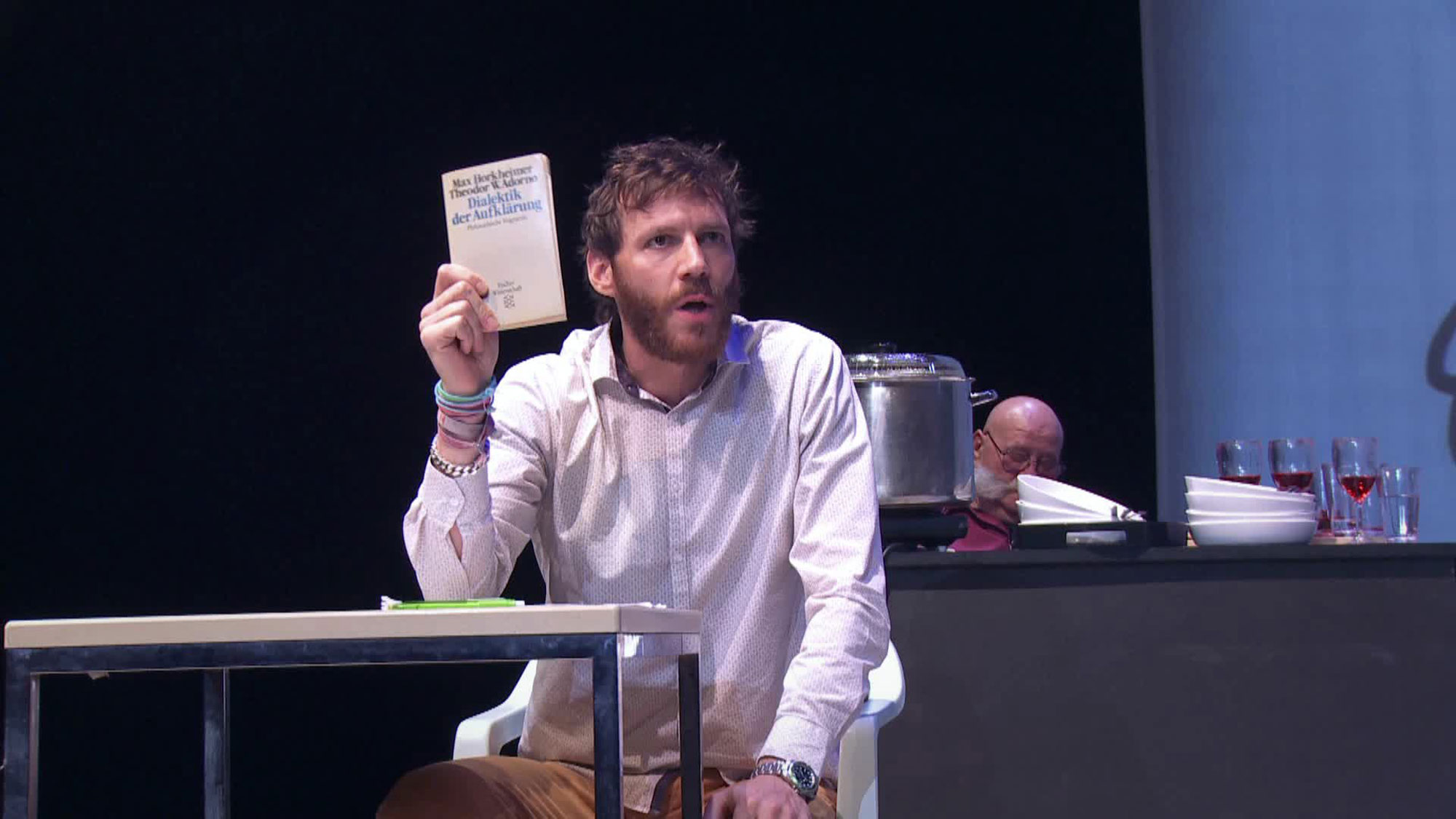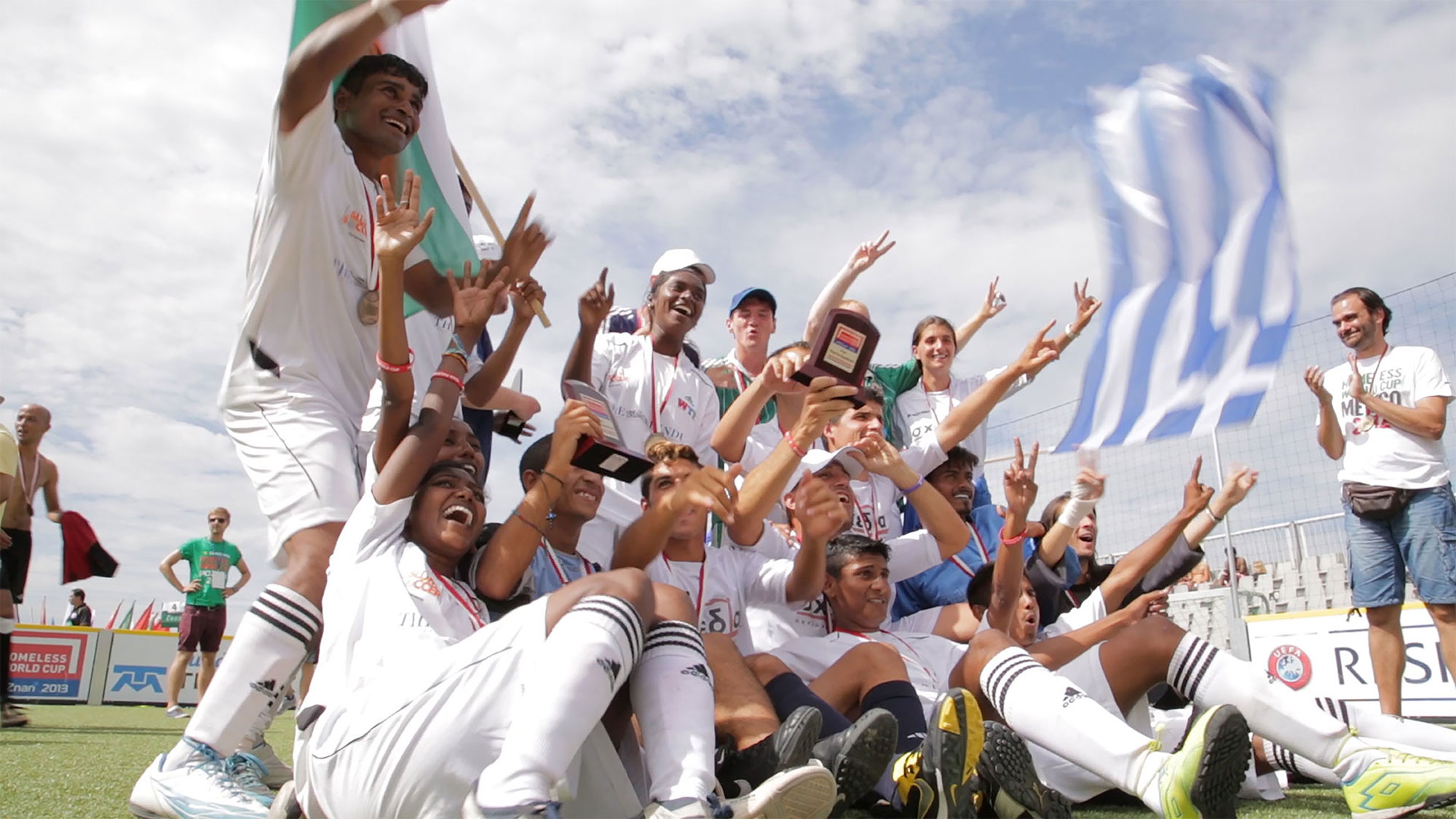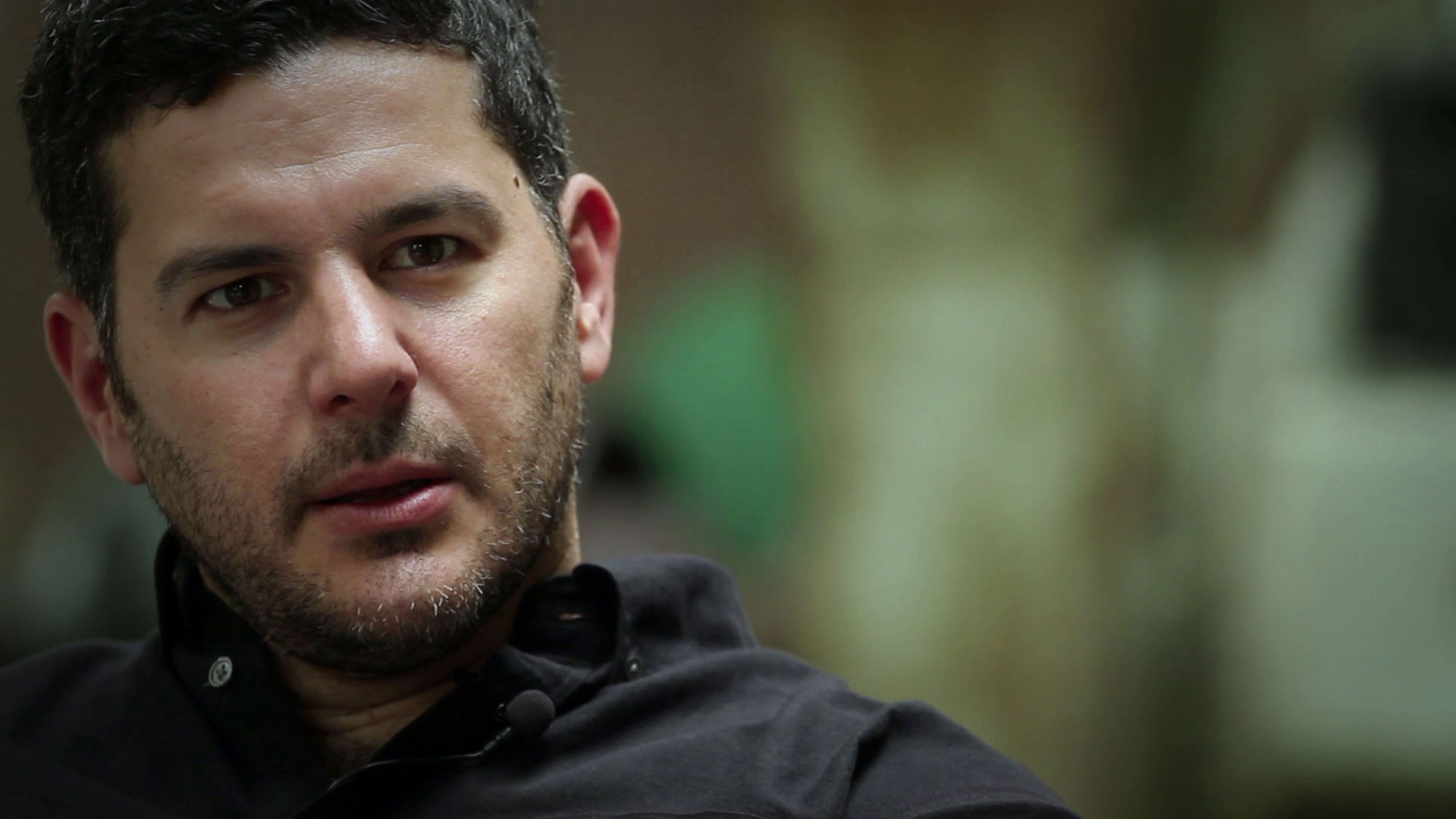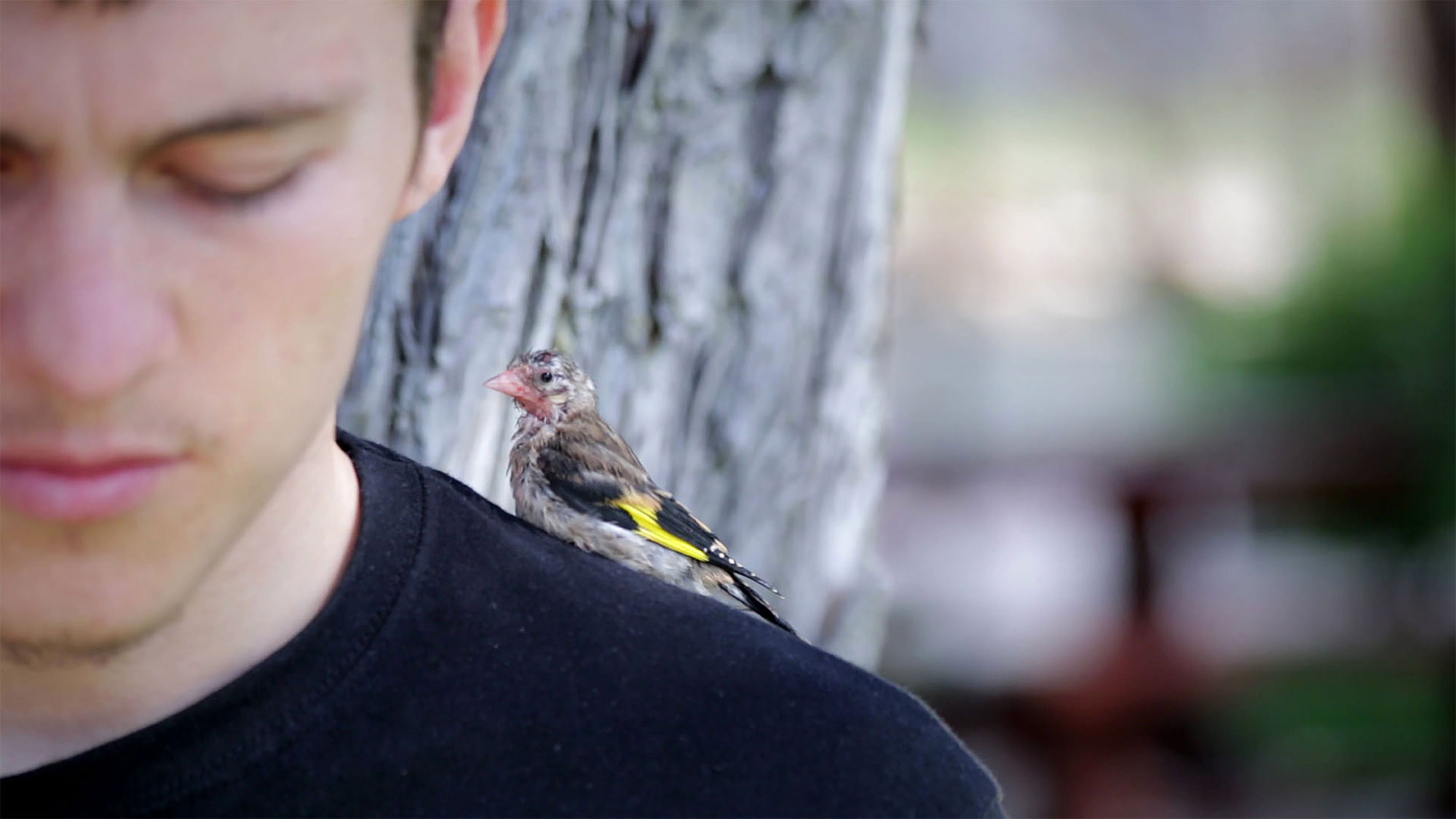The engagement as well as the entanglement with humans and institutions that lie within the outskirts of the society – what some still insist on addressing as “the other” – is not a formal decision; it is a political one, and definitely a need that comes from within.
The practice of Menelaos Karamaghiolis derives from a moral, a bold aesthetic spine that whatever is being generated, produced and one can even say edited, takes its final form through its subject matter. Simultaneously liberating and restrictive, allowing this is a challenging endeavour for any author. The in-between distance is very short, and at times non-existent. With most of the works that are not made for the big screen, it feels that the stories are told by the subjects themselves. Deliriously he claims that the final goal is the moving image’s self-telling.
As it happens sometimes when telling people’s stories, the driving force is the remarkable or the amazing and love so the outcome at most times is a seemingly raw, unaltered person that speaks while describing or simply doing their doings. It is this immediacy that places this practice in the sphere of Realism. While what is not seen or apparent is an endless network of relationships – at most times codependent and at times problem-solving – that provides people with solutions to their everyday struggles and answers to questions unanswerable, when political systems have failed to do so.
His first solo exhibition with the gallery showcases historical, singular, and group social portraits, and the installations in Piraeus and London contain works that include four decades of researching, filming, and editing footage of heroes (humans, animals or animated objects), characters, events, and situations.
In Piraeus, both works exhibited tell women’s tales and are related. What society still expects from women, some sort of purity, childbearing while still untouched, is very present and strong in more traditional and patriarchal societies.
When entering the first space, we hit a wall that blocks our access and simultaneously engulfs the celebration we then unavoidably become witnesses to and participants of.
A wedding ceremony – like the ones only Roma families know how to plan – took place in the late 80s, next to Athens, and is made of previously censored footage, partly shown here for the first time.
Time here is key, as the dissection, the footage has undergone (the artist has created a specific system based on an algorithm that breaks down the cinematic frame by frame according to its content and the duration of each shot, bearing the name Kinesia Paradoxa), creates a different point of view and perception. This process turns fleeting moments hidden in cinematic frames, minor details, into hypnotizing monuments, transforms humans into immortals, sculpts their clothes into tunics, and themselves into moving sculptures while they reach for ecstasy through dancing.
Like the heroes portrayed, who have a very different and personal understanding and handling of time, one that grants them eternal.
The swirling glimmering bodies linger to the singing of the pan-Roma-GR superstar Makis Christodoulopoulos, whose lyrics are the only language that appears in the film, then returning to the dark murmur that has overtaken the space, to this perpetual ritual.
Rituals and stories of power and its structures are omnipresent in Menelaos’ oeuvre, as well as the presence of the divine in the miraculous of the every day.
For the artist, who has been mingling with Roma people since his childhood, this ethnic group is the only one he associates as identifying with anything close to what he perceives as Greek: a nation made of mixed races, nomadic while their language and peculiar relationship with religion are their only traits of unifying identity.
Like Wedding Crowns, A Prayer is a lament to the commercialization of faith.
A juxtaposition of two videos running in parallel: the making of the icon, its mass production, and all the religious shops in the centre of Athens, alongside scenes of the pilgrimage to the holy icon of Tinos, where Mary is patroness Saint, a different paradise in the eyes of the tourist and that of the faithful, let alone the local.
This piece is the result of a series of films the artist shot in the 80s, marking a society in transit, while capitalism was taking over not only the spiritual but all forms of indigenous culture, and the tourist industry was booming; all the above are still everlastingly urgent.
Unlike the first room, where some celebration is taking place and time is warped, this piece takes the everyday and creates a celebration from it.
The two works in Piraeus, both social portraits, question the institutions of marriage and that of the church; symbols of values signifying union, faith, submission, and ecstasy while creating two monumental works, each turning into an icon. And both a different Madonna singing religious songs that talk about eros, pathos, and lust, and the girls that are to be married outside their choice, find solace in dancing.
Where, though, does the miraculous take place?
And what is, in the end, a miracle?
Rodeo Piraeus, March 2023
